




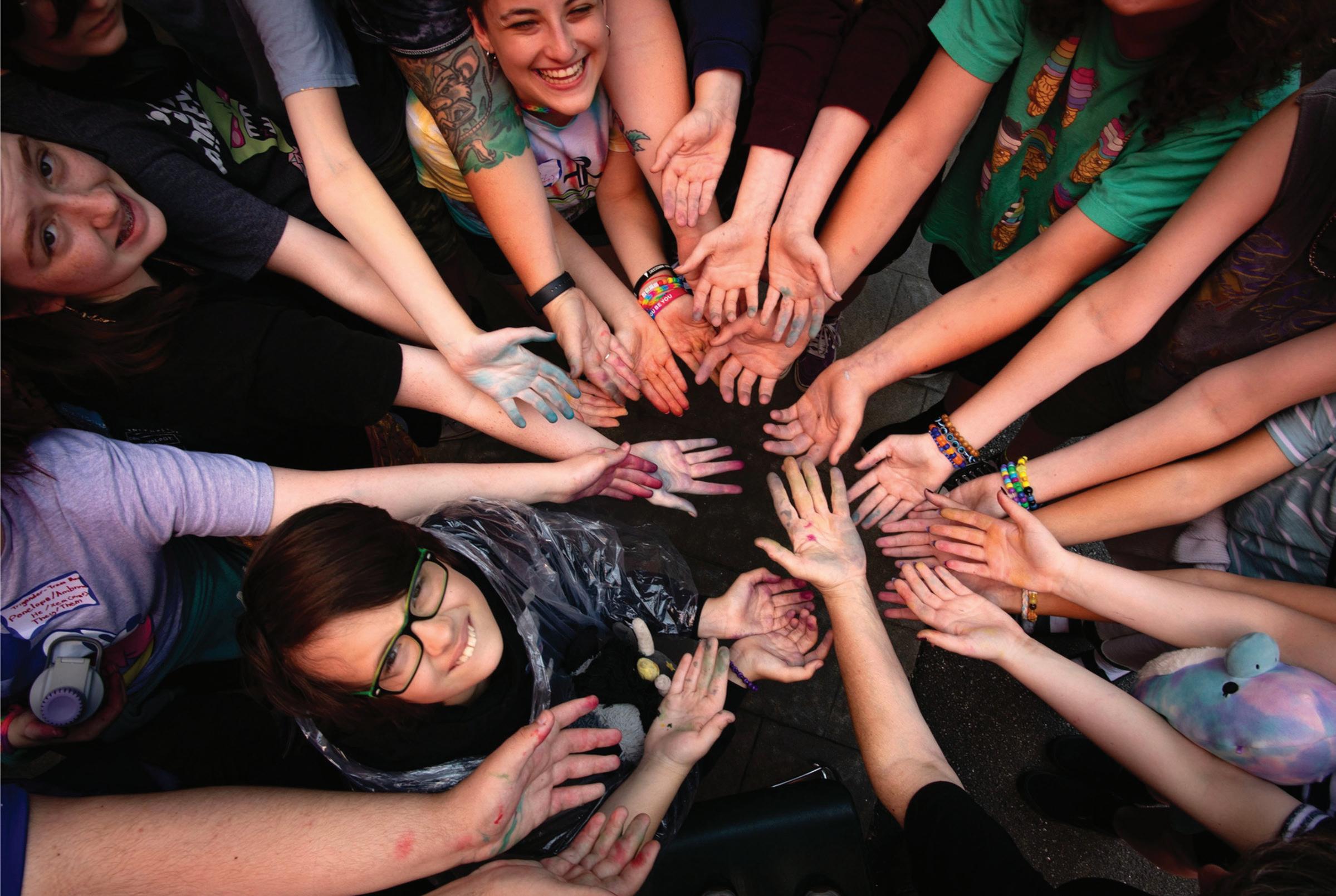

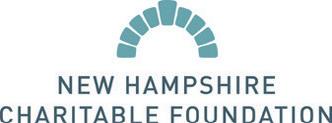

Last fall I was invited to a production of Yasmina Reza’s play “Art.” It’s a multi-award-winning comedy that features fast, funny, smart dialogue between three friends, one of whom has purchased a nearly blank white canvas for an exorbitant sum. The friends debate what makes art — an argument familiar to anyone who’s ever stood before a piece of modern art and wondered if they just don’t get it or if there’s nothing there to get. In the end though, the story is as much about friendship, relationships, and the need to be seen and understood as it is about art. I hadn’t seen it before, and as I watched it became one of my favorite plays ... ever.
This outcome is neither because of nor despite the fact I saw the play performed at the New Hampshire State Prison for Men. It was a great play, well performed. The actors were participants in the Open Sky theater program, conceived of and taught by actor and director Derek Lucci. Our story on the program appears on page 14 of this issue of 603 Diversity.
I was part of a group of interested community members and supporters invited to see the show. For some, it was their first step inside a prison. The gravity of the security, the weight of the sound of heavy bars clanking shut behind you as you pass through the various security points and the long walk across the yard to the prison gymnasium were revelatory. It’s not a space most people on the outside spend much, if any, time thinking about.
But maybe they should.
Because, in our criminal justice system, rehabilitation is part of the plan, and we expect that most people who are incarcerated will rejoin society at some
point and lead decent, productive lives. Their lives will intersect with ours, and we hope they will be good neighbors as we hope we are good neighbors. Our approach to rehabilitation has a lot to do with whether this will be possible.
Once in the gym, the audience was provided popcorn and drinks by prison residents and perused playbills created by other Open Sky participants. As familiar as that all felt, it was also impossible to ignore the guards patrolling the gym or the stern admonition we received to follow instructions throughout the proceedings. We weren’t to forget the gravity of the place.
And yet, on some level, we did. Because the neophyte actors, trained by Lucci, so powerfully inhabited their roles, knew the text so well, saw each other so deeply as they played their parts, that for many of us, the minimalist set, the gymnasium, the guards, the prison uniforms, all fell away and we were in the story with the characters. It would have rated a powerful, sensitive performance even by experienced performers.
In the talkback we did with the cast by Zoom after the show, the actors described their profound experiences. By learning to inhabit these characters, they had to learn to know themselves in new ways. And they had to learn to authentically listen to and experience the world through the eyes of another person.
One of the most crucial elements in the development of our humanity is that moment, or really a lifelong series of moments, where we become truly aware, perhaps walking along a big city sidewalk or stuck in an infinite-feeling traffic jam, that every one of these other people has
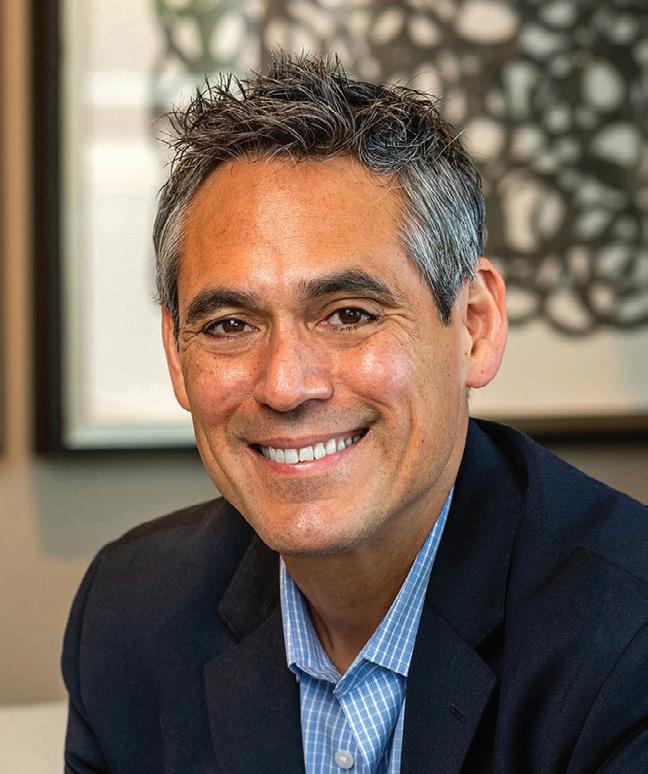

the same complex inner life we do, the same hopes, fears and loves. To feel that can be mind-blowing. It’s the heart of empathy.
Watching this program, for those of us invited in from outside the prison, was also an invitation to empathy — for people who have done terrible things but who nevertheless remain people. People who may forever be defined by, as one participant put it in the talkback, the “worst 30 seconds of my life,” and yet must strive toward a reconciliation with society beyond the prison walls.
All of this underscores the power of art to teach us about ourselves, to create genuine empathy for others, reveal our common humanity, and makes a powerful case for including it in rehabilitation, education and, really, every facet of our lives. 603
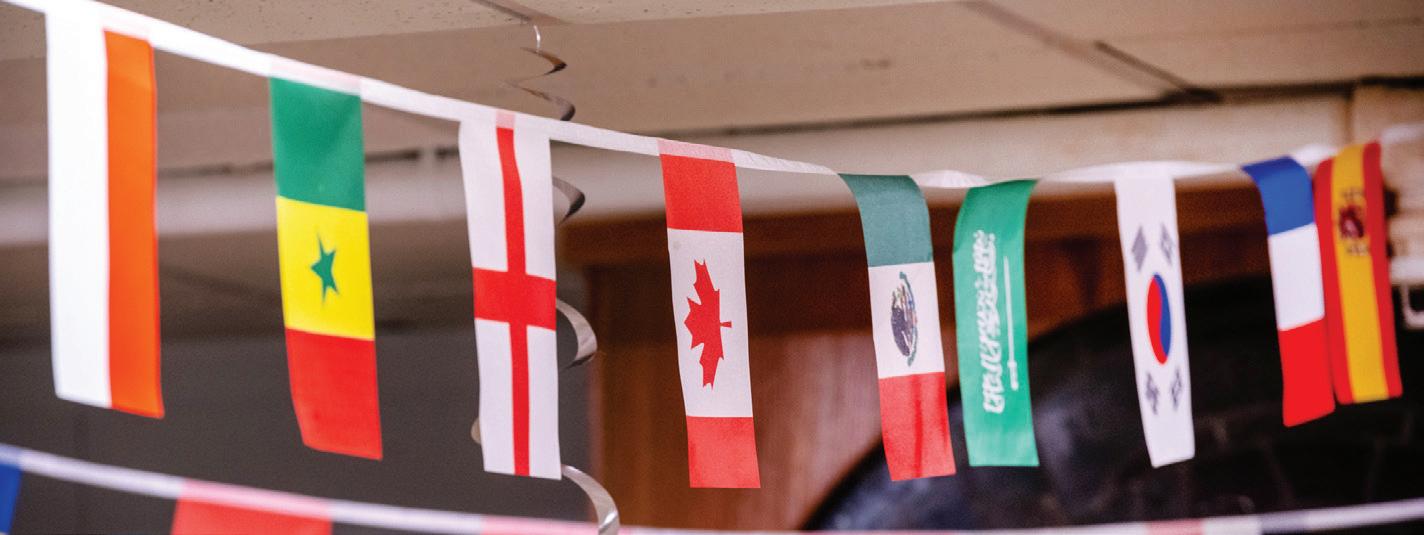
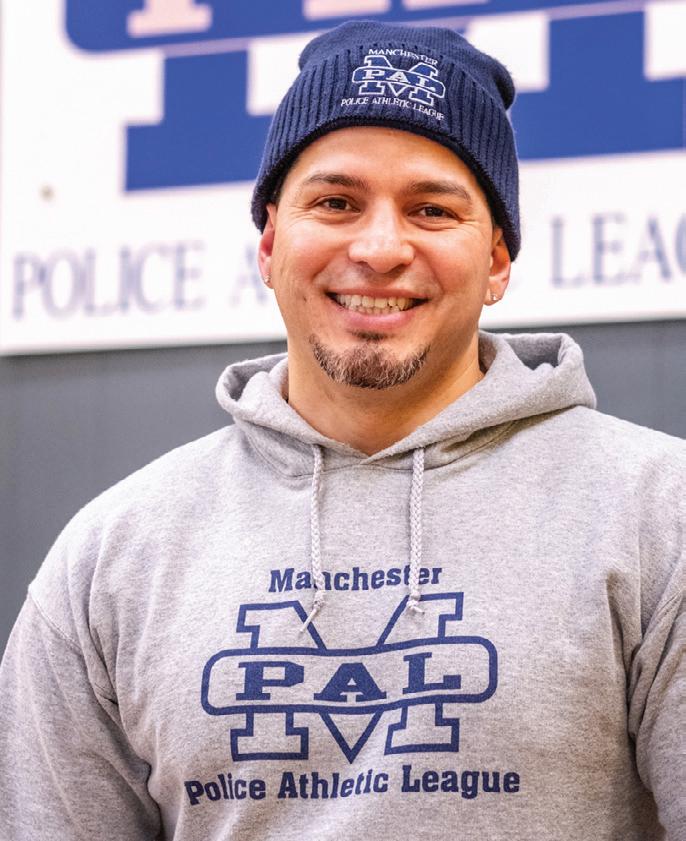
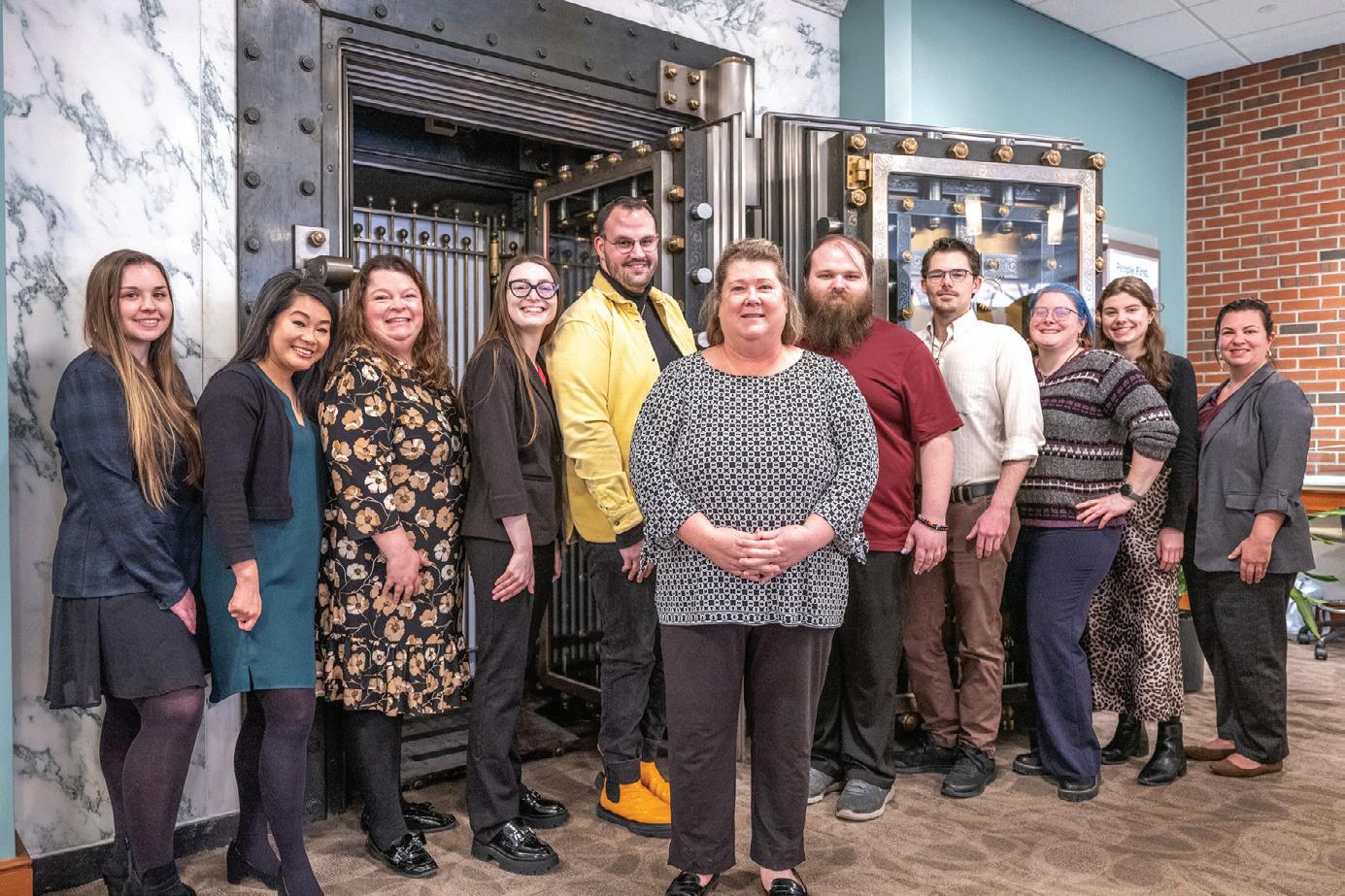

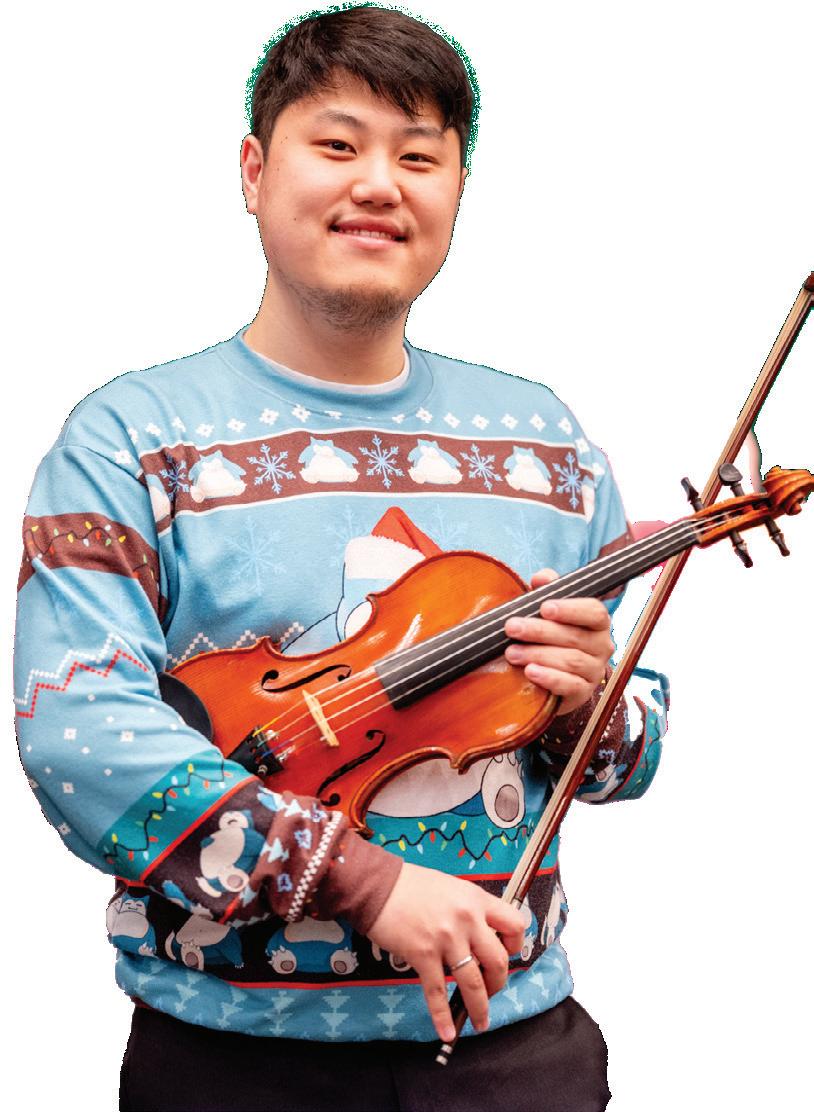
603DIVERSITY.COM
Contributing Writers
Caitlin Andrews
Wildolfo Arvelo
Ernesto Burden
Suzanne Laurent
James McKim
Sarah Pearson
Amara Phelps
Alberto Ramos
Yasamin Sarfarzedah
Contributing Photographers
Robert Ortiz
Contributing Artist
Richard Haynes
Editor/Publisher
Ernesto Burden x5117 ernestob@yankeepub.com
Managing Editor Mike Cote x5141 editors@603diversity.com
Managing Editor, Custom Publishing Sarah Pearson x5128 sarahekp@yankeepub.com
Creative Services Director Jodie Hall x5122 jodieh@yankeepub.com
Graphic Designer Christian Seyster x5126 christians@yankeepub.com
Senior Production Artist Nicole Huot x5116 nicoleh@yankeepub.com
Sales Executive John Ryan x5120 johnr@yankeepub.com
Operations Manager Ren Chase x5114 renc@yankeepub.com
Digital Operations and Marketing Manager Morgen Connor x5149 morgenc@yankeepub.com
Information Manager Gail Bleakley x113 gailb@yankeepub.com

To illustrate the mission of 603 Diversity, Seacoast artist Richard Haynes has provided one of his recent designs to accompany our motto “Live Free and Rise.” We are selling T-shirts and other merchandise featuring Haynes’ design, or a design created by art student Chloe Paradis, to benefit the Manchester Chapter of the NAACP
Visit 603Diversity.com to buy one today.


250 Commercial Street, Suite 4014 Manchester, NH 03101 (603) 624-1442
Email: editors@603diversity.com
Advertising: sales@603diversity.com
© 2025 Yankee Publishing, Inc.
The 603 Diversity underwriters provide a significant financial foundation for our mission, enabling us to provide representation to diverse communities and for diverse writers and photographers, ensuring the quality of journalistic storytelling and underwriting BIPOC-owned and other diverse business advertising in the publication at a fraction of the typical cost. We’re grateful for our underwriters’ commitment to diversity, equity and inclusion in this magazine, their businesses and their communities.
THANKS TO THE UNDERWRITER OF THIS ISSUE FOR THEIR SUPPORT:
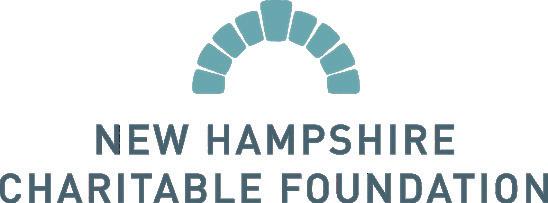
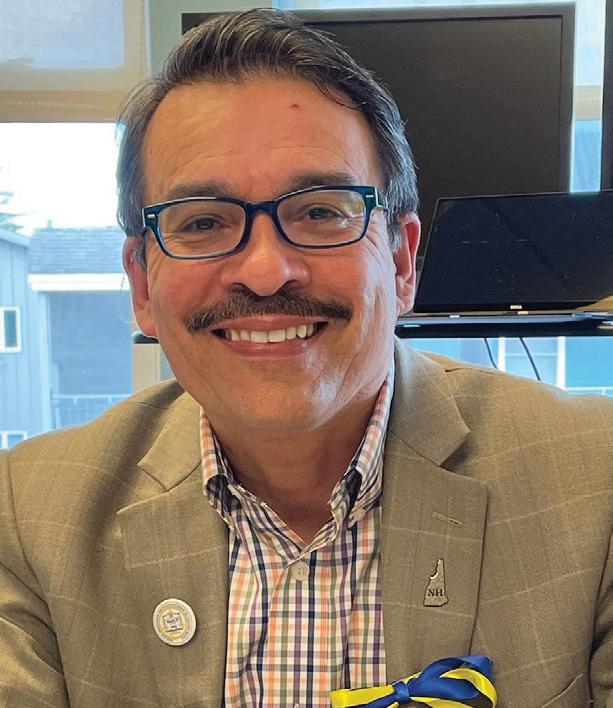
As publisher of New Hampshire Magazine, the New Hampshire Business Review, Ernesto oversees their publication and that of 603 Diversity, NH Bride, Run NH and many more. He’s also a writer who’s published a couple of novels, a bunch of short stories and a livelihood of non-fiction pieces. Outside the office, you might spot him running around Manchester and at the 2025 Boston Marathon this April or playing guitar and singing at one of southern New Hampshire’s bars and restaurants.
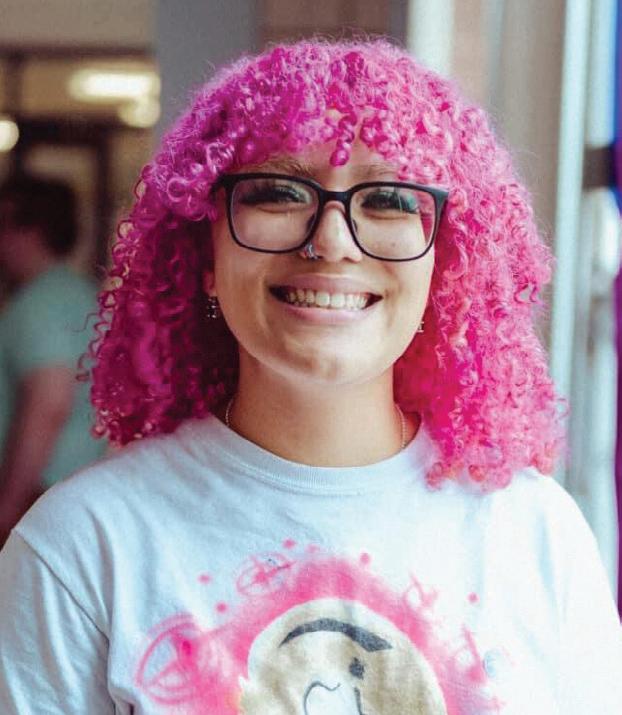
Dr. Wildolfo Arvelo is executive director of Cross Roads House, the second largest homeless shelter in New Hampshire. Prior to Cross Roads House, Arvelo served as director of the Division of Economic Development for New Hampshire. From 2007-2017, he served as president of Great Bay Community College in Portsmouth. Arvelo has a doctorate in educational leadership from the University of Massachusetts/Boston.
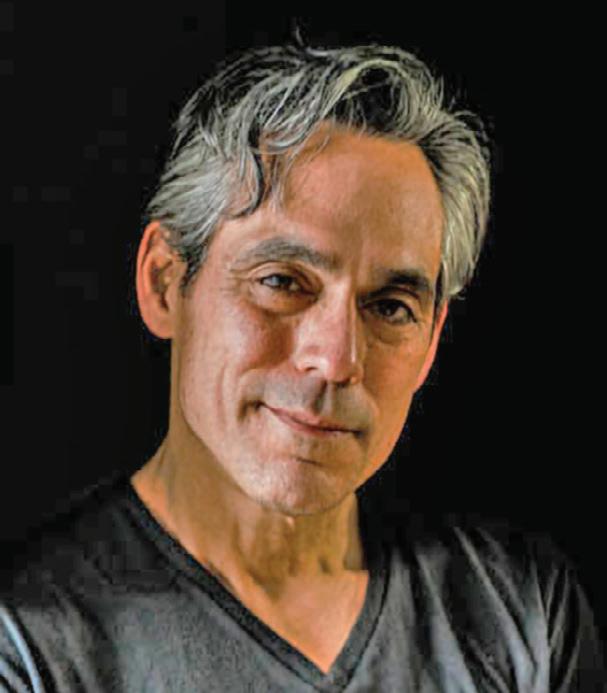
Musician and community organizer Amara Phelps loves to engage with her city of Manchester in more ways than one: fronting her popular local rock band Cozy Throne, teaching and sharing art in southern New Hampshire, and promoting community events and efforts for local publications, including Manchester Ink Link.
Caitlin Andrews has been a reporter and writer for nearly 10 years and has covered everything from politics to restaurant openings. She lives in Maine.
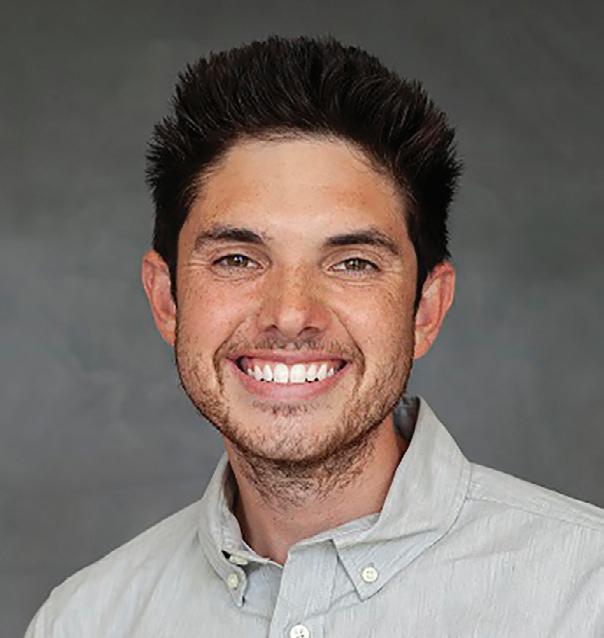
Alberto Ramos heads the recently formed Center for Inclusion, Diversity, Equity and Access at Plymouth State University. He serves as the chief diversity officer and affirmative action officer. He has partnered with PSU Black and Latinx student unions, PSU Pride, the Multicultural Club, faculty and staff to form a council of principal advisors and launched a Student Leadership Program. Ramos holds an M.A. in teaching English as a second language, and a B.A. in communication studies and travel and tourism.
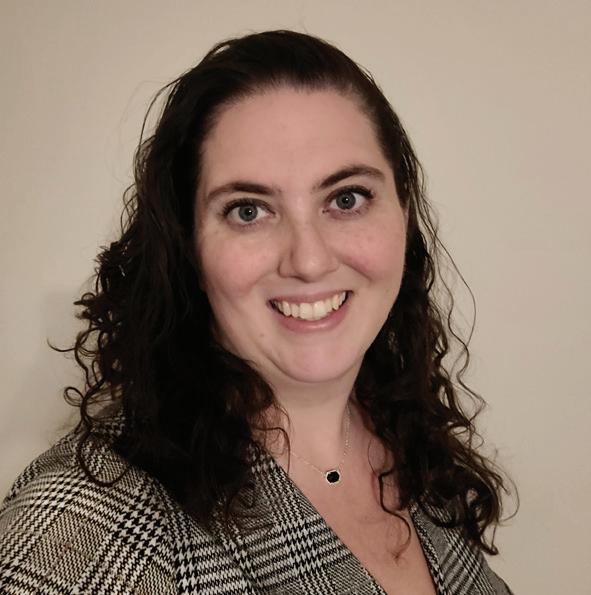
Sarah Pearson is managing editor of custom publications for Yankee Publishing, which produces 603 Diversity and many other titles. She is an awardwinning editor and journalist who previously worked for a newspaper. She is a lifelong New Hampshire resident and mother of two.
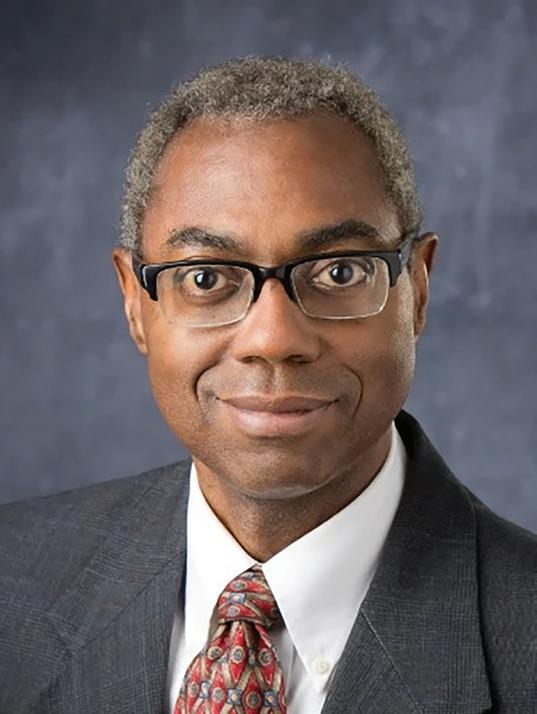
Raised in a diverse community in Boston, Massachusetts, Suzanne Laurent worked as a registered nurse for the Boston Head Start Program. She moved to Toronto, Ontario, in 1982, and unable to work as a nurse, Laurent pursued a career in photojournalism. She has been a resident of New Hampshire since 1987. She has an extensive award-winning background in journalism. She is also a juried photography member of the New Hampshire Art Association and a published poet.
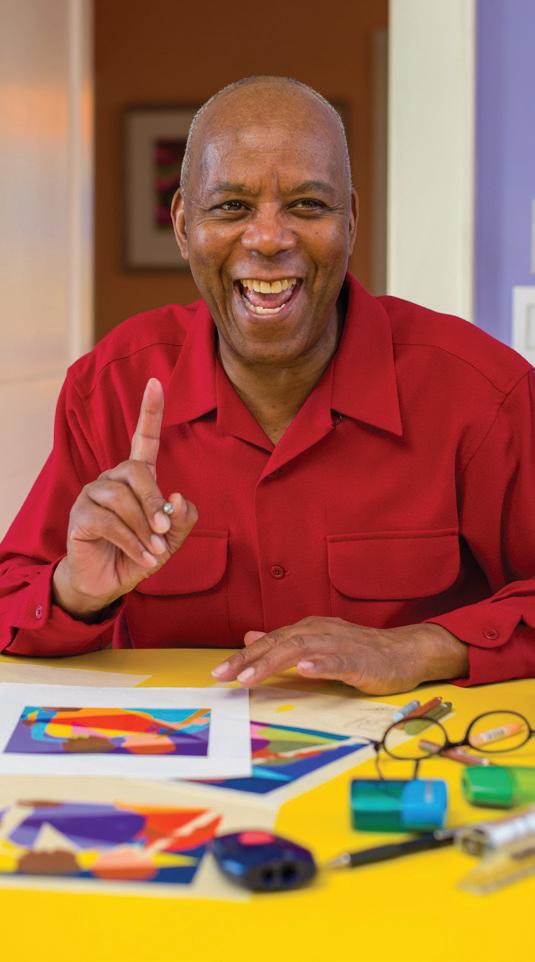
James McKim, who was involved in the original plannng of 603 Diversity and has written essays for past issues, serves as managing partner of Organizational Ignition. He is driven by an intense need to help organizations achieve their peak performance through the alignment of people, business processes and technology. He is recognized as a thought leader in organizational performance, the uses of neuroscience and program management.
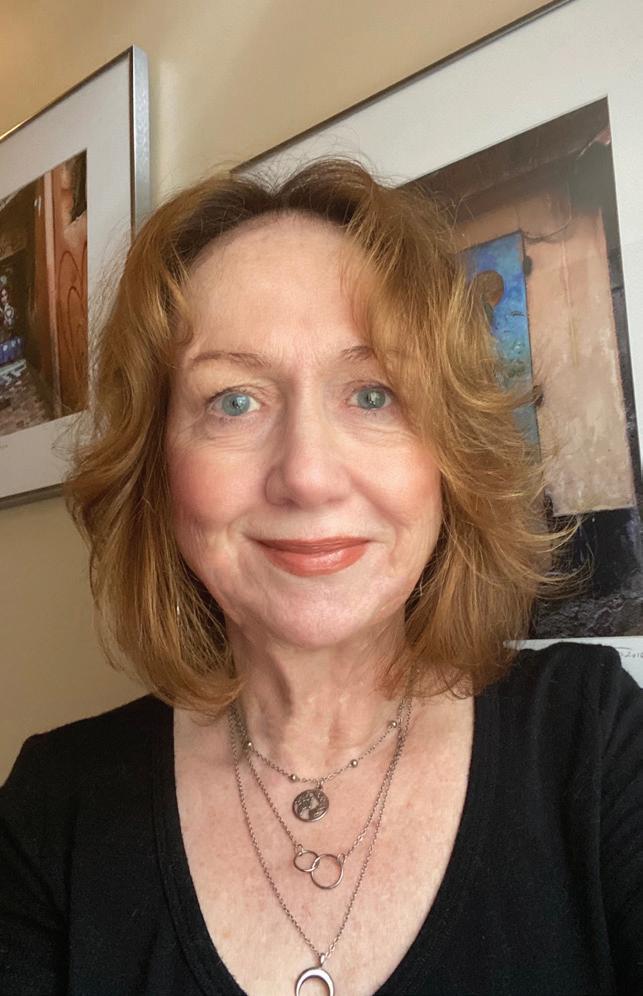
603 Diversity stories emphasize not only how things are but how they might or even “ought” to be as we seek out and reveal our state’s diverse communities. When we needed a single image to summarize the mission of this magazine, we went to a man who has long been telling complex stories with bold strokes of color and universal symbols. Artist Richard Haynes provided a selection from his recent work for this purpose. See page 4 for how you can fashionably spread the good word.
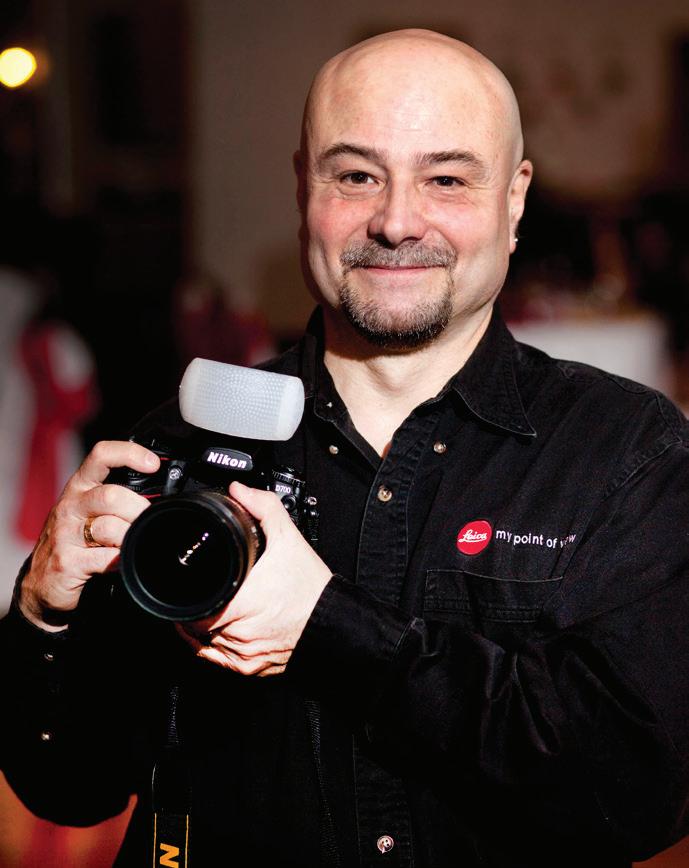
Primary photographer for 603 Diversity is Robert Ortiz of Robert Ortiz Photography. Ortiz began his photographic career at 15, and has chronicled everything from local weddings and events to the lives of the native peoples of the Peruvian Amazon. He lives in Rochester with his wife and son and 15-year-old daughter, Isabella, who is currently in training as his photo assistant.
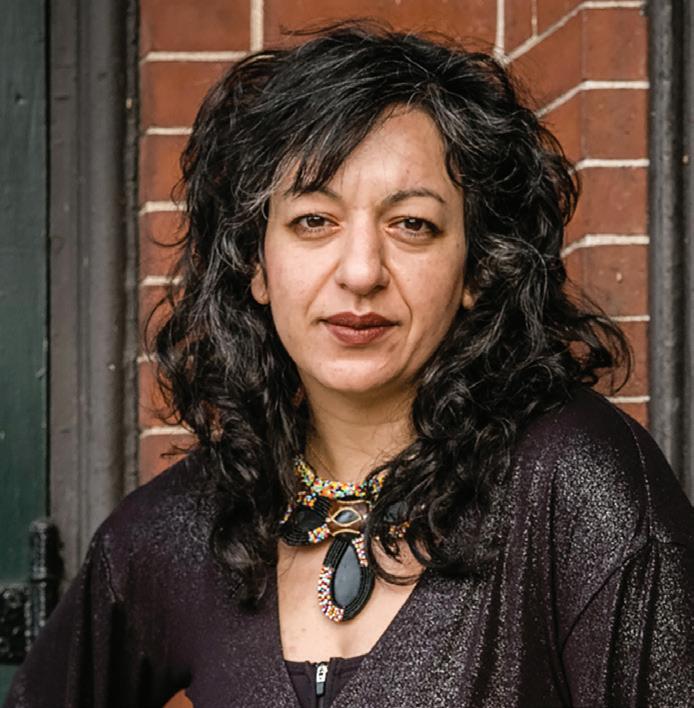
Advocate, coordinator and educator Yasamin Safarzadeh, a native Angelino and current resident of Manchester, compiled our calendar and wrote the feature on “Echoes and Shifts.” Safarzadeh hopes to secure a future for a more diverse young adult population in New Hampshire to ensure a more prosperous and effective future for all. DM her at phat_riot on Instagram.
BY SARAH PEARSON / PHOTO BY ROBERT ORTIZ
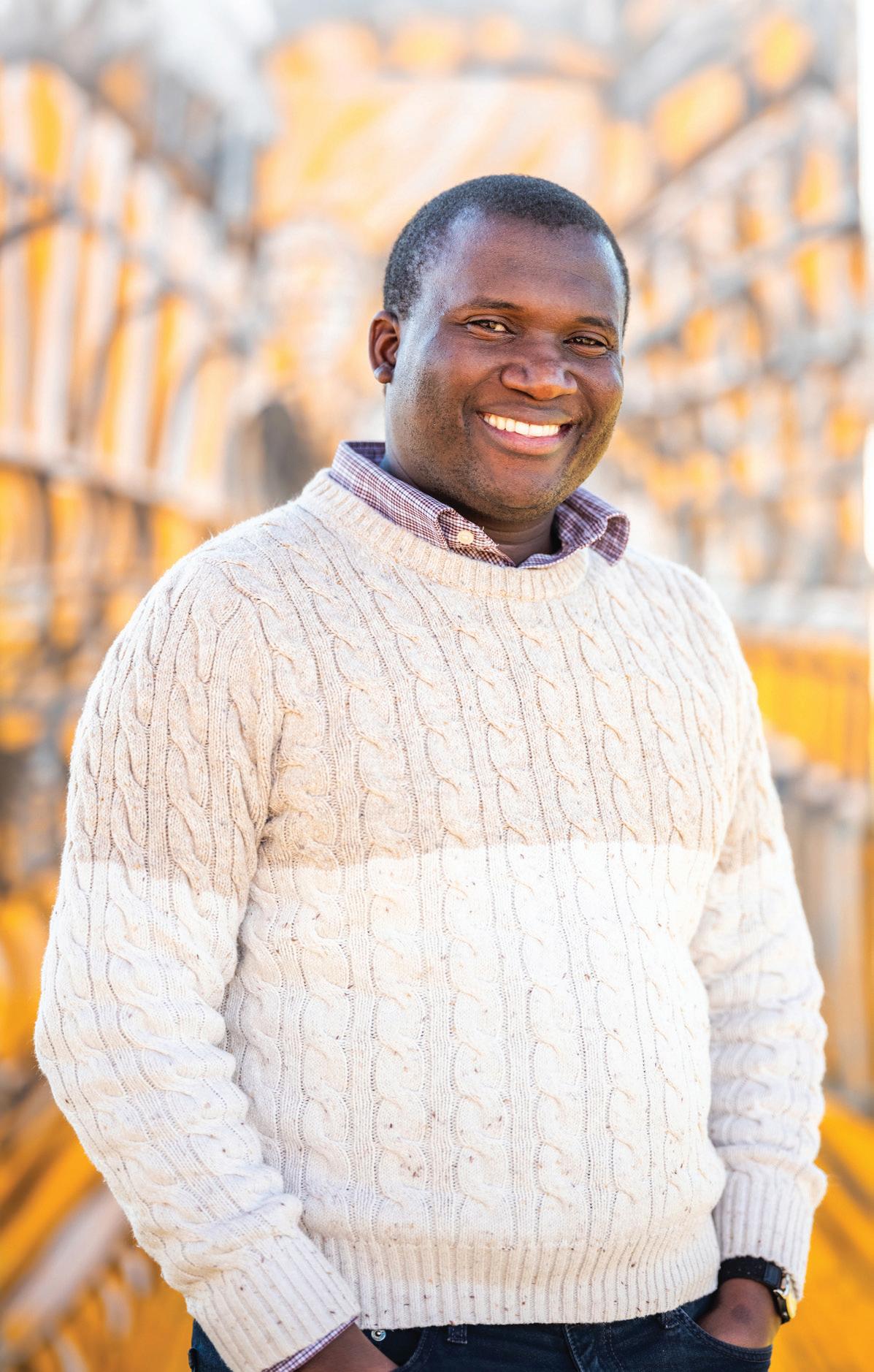

NH Songa highlighted the important role that immigrants play in New Hampshire’s economy at its November conference.
The state is seeing a natural decrease, where more residents die than are born each year. What keeps New Hampshire’s population growing is about half fueled by migration from other states and half from foreign-born people.
Foreign-born people make up about 6% of the New Hampshire overall population and about 7% of its workforce, said Brian
Gottlob, director of the Economic & Labor Market Information Bureau for the NH Department of Employment Security.
Of those, about 60% are naturalized and are current U.S. citizens and 40% are non-citizen workers, like temporary visa workers, refugees and asylum seekers. Gottlob noted that his data comes from reports and voluntary surveys that likely do not include undocumented immigrants.
New Hampshire foreign-born workers tend to be more highly educated than the average, with 45% holding a postsecondary degree. They also tend to have higher average and median household incomes compared to native-born residents, due in part because they may have more workers per household or higher educational attainment.
Collectively, foreign-born workers contribute $4.6 billion to the New Hampshire economy.
The primary industries in New Hampshire where foreign-born workers are employed are manufacturing (9.7%
of the workforce), professional services (9.2%), wholesale (8.7%), food service (8.5%), waste management (8.4%) and health care (7.3%), according to the data compiled by Gottlob.
This impact is part of why NH Songa founder Jean Hakuzimana launched the inaugural conference last year and made it an annual event. He hoped the conference would be a starting point for conversations about the value immigrants bring to the community, particularly when there is so much negative rhetoric nationally. He encouraged attendees to keep building community.
“Help a friend. Find humanity in your next-door neighbor, your work colleague,” Hakuzimana said in his opening welcome.
Ascentria Care Alliance, which provides an array of social and medical services to vulnerable communities, relies on immigrants to fill staffing roles. Among their services are in-home care for seniors or disabled people. Amy Moore, Ascentria’s vice president of home services, said that despite the low pay for caregivers, its direct care providers are keeping people alive. Many of these caregivers are immigrants. Ascentria created a mentorship program for first-year
caregivers, which is improving retention. That retention is critical when there is more demand for home care services than they can fill roles for.
Nancy Skar of Easterseals echoed similar hiring struggles, but they’ve seen success in hiring immigrant workers, many of whom are highly educated. They found that, by expanding their onboarding training for all employees, they have improved the overall infrastructure for new staff.
Language barriers were a frequent concern about workforce participation. Some companies, like Easterseals, have brought in English language instructors.
The NH DMV has staff that speak 16 languages and is investing in a device that allows translation into 85 languages. It is releasing driver’s education study guides in the five most common languages spoken in New Hampshire, too.
Claudine Gasana, who arrived in Concord as a teen after being a refugee from the Congo, said she struggled with
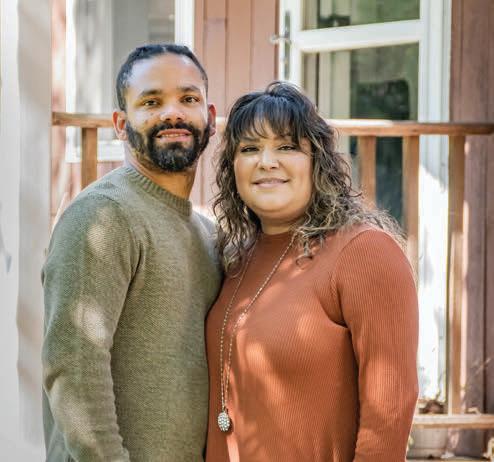

communication and finding the right words

NH Songa founder Jean Hakuzimana speaks to the participants at the NH Songa Conference s at the Grappone Conference Center on Nov. 20, 2024. (Photo by Geoff Forester, Concord Monitor)
to convey her meaning when she first arrived. She told the conference she had a hard time connecting with her peers because jokes and expressions didn’t translate in a way that was funny to her.
Despite those challenges, she graduated from Concord High School and then from Keene State College.
So she can relate to her students at Second Start, where she teaches English to
speakers of other languages, and Concord High, where she’s the family center coordinator.
Loick Muyuka of the Small Business Development Center shared that there are barriers to New Hampshire getting the full benefit of its immigrant population. His father had worked as an engineer for more than 20 years in Congo before he came to the United States. When he arrived in 1999, his credentials, despite decades of experience, were not recognized, so he worked at McDonald’s to support his family. Then, he was taking classes at Manchester Community College when a teacher recognized his qualifications and helped him make connections that led to a career that better utilized his skills. He now leads a whole department for Easterseals and oversees employees, many of whom are immigrants, too.
Muyuka said that employers don’t have to lower standards to hire immigrants.
“We are competent,” he said. “We just need a chance to prove ourselves.” 603
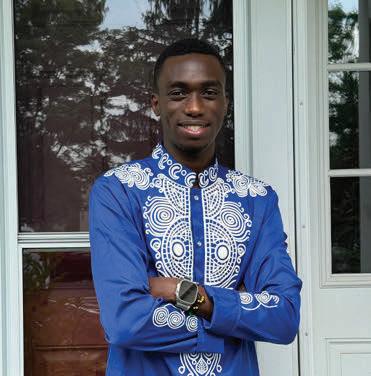

We’ve helped 55,000 families purchase a home and financed 16,000+ multifamily housing units. And, we support 4,300 residents with rental assistance annually.
Get to know New Hampshire Housing— your source for research and data for the state with programs and services to ensure everyone can afford a place to call home.
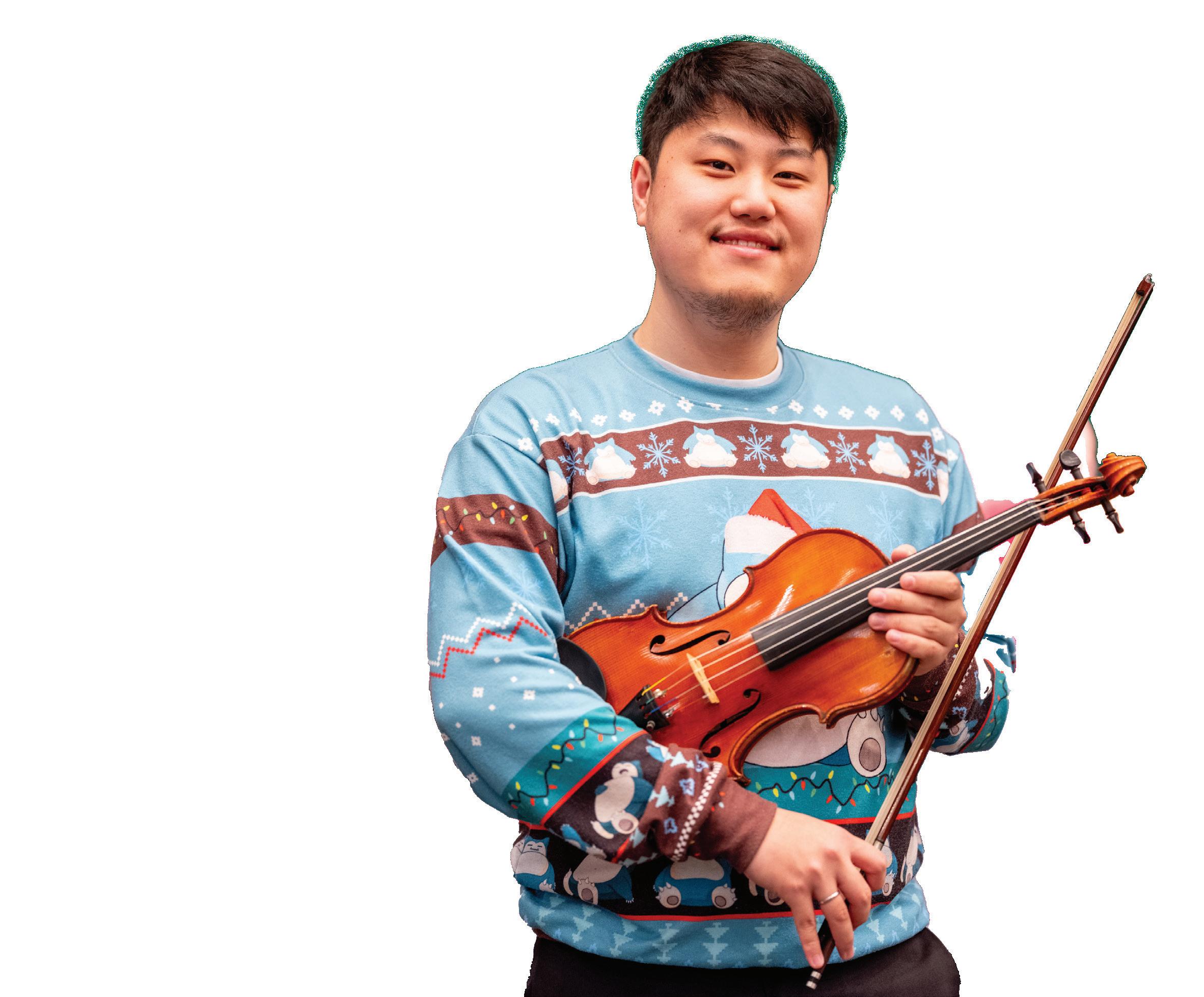
The New Hampshire Philharmonic was founded in the late 1800s, not only as an artistic venture, but a civically minded one as well. Its mission was to bring fine orchestral music to New Hampshire’s communities. Though the organization has evolved over its 130-year history, it maintains a commitment to musical education and experience.
The New Hampshire Philharmonic is a largely volunteer orchestra whose performers are a mix of students, amateurs and professionals. Nicholas So is the co-director of personnel management.
So was born and raised predominantly in New Hampshire, attending Manchester Public Schools and Keene State College. His parents were very dedicated to his aspirations of cultivating a rich and diligent life of classical music using the piano, violin and viola as the vessels to illustrate this dedication.
He invited me to “Rhapsody in Red, White and Blue,” a composition by Peter Boyer performed by pianist Jeffrey Biegel. This is the
celebration of the 100th anniversary of George Gershwin’s “Rhapsody in Blue,” which was performed alongside three other suites created by American composers Leonard Bernstein, Joan Tower and William Grant Still.
I was taken aback by the diversity not only of composers presented to the audience but also the diversity of the performers in the orchestra. The rendition of Gershwin’s piece brought tears to my eyes and reestablished an understanding of the incredible instrumental artists New Hampshire is privileged to house.
Later, I sat down with So to discuss his path in music and work with the New Hampshire Philharmonic. Here’s a recap of that conversation, edited lightly for clarity. I want to get a grasp of the environment in the creative economy that you work within; I was so taken aback by how diverse and talented the New Hampshire Philharmonic is, especially as this is one of the very few all-volunteer philharmonics in the country.
603 D: I want to get a grasp of the environment in the creative economy that you work within; I was so taken aback by how diverse and talented the New Hampshire Philharmonic is, especially as this is one of the very few all-volunteer philharmonics in the country.
SO: Let me clarify, 80% is volunteer, with some few members getting paid. It makes sense that, to have solid musicians, an entity would need to compensate players. Many of these programs have retired individuals or up-and-coming young adults in or just out of high school. This opportunity to play among the philharmonic is an excellent CV and resume builder. It is also an incredible opportunity to experience the realities of working musicians. Much of the success of this mostly volunteer philharmonic is actually due in large part to director Mark Latham’s innovative and nurturing leadership style.
603 D: I do really want to kick back to the overwhelming joy and ecstasy my group felt when experiencing the philharmonic’s rendition of “Rhapsody in Blue.” Each gesture and feeling Gershwin intended flowed through the performance. The experience truly went beyond merely experiencing sound.
SO: The New Hampshire Philharmonic is a very safe space. People are not punished for mistakes, but instead growth is fostered, and so people want to stick around and want to invest their time and efforts.
603 D: The other composers which were featured in this event surprised me because I was expecting Phillip Sousa or John Williams and instead was faced with two Jewish Americans: Leonard Bernstein and George Gershwin, as well as one of the most prolific contemporary American composers who spent a large portion of her youth in South America, Joan Tower. And William Grant Still, who was born in the late 1800s in the South and became the first Black American whose work was performed by professional orchestras and the first who conducted a professional orchestra in Los Angeles, where he later lived until his death in 1978. I believe
the intent of this event which y’all put on was to alleviate the stressors of a wildly polarized political atmosphere in exemplifying that music is the purest and unifying form of artistic expression.
SO: That is the beauty of New Hampshire Phil. We mean to cultivate a deep appreciation for musical expression, and especially to make ourselves accessible to the public; not only in supplying sliding scale tickets to events, but also by yielding these histories and anecdotes of the composers and the sociopolitical nuances encircling the composers to the viewers; enhancing appreciation and understanding of the “why” of the music.
603 D: Thinking of how full the sound of NH Phil’s performance was — what is the composition of performers?
SO: For string players, there is no limit. People audition, and if they meet the requirements, Mark (Latham) welcomes the performer. Even if an individual does not meet these requirements, they are still welcomed to sit in rehearsals. Woodwinds and brass — the orchestration usually only allows for two instruments per section depending on the piece.
603 D: As someone who’s played flute and tuba, I understand. To get back to the general
demographic of people in NH Phil, what’s up with so many young performers? That was so incredible to witness.
SO: The age range is to provide space which supports younger musicians. Today, for example, we had a performance with a 13-year-old trumpeter and a senior in Salem High School who is also the actor and narrator in our Christmas performances, which are very widely attended. This nurturing of young musicians is part of our mission in order to support the growth of younger performers in live arts, always thinking about “live art.”
Our performances are always a mixture. We like to nod to great histories while also celebrating the innovations of classical music; looking at intersections as well in order to highlight pairings people don’t normally think about. Again, referencing the Holiday Pops performance, we had a mix between pops: Handal,Tchaikovsky and then we had popular music from the radio era. Classical music is not for everyone but when approached in an innovative fashion, it can be fun.
603 D: Let’s talk about you, the artist and mentor of other musicians. When did you first touch a violin?
SO: Actually, I touched a viola in third grade. I had already started to play the
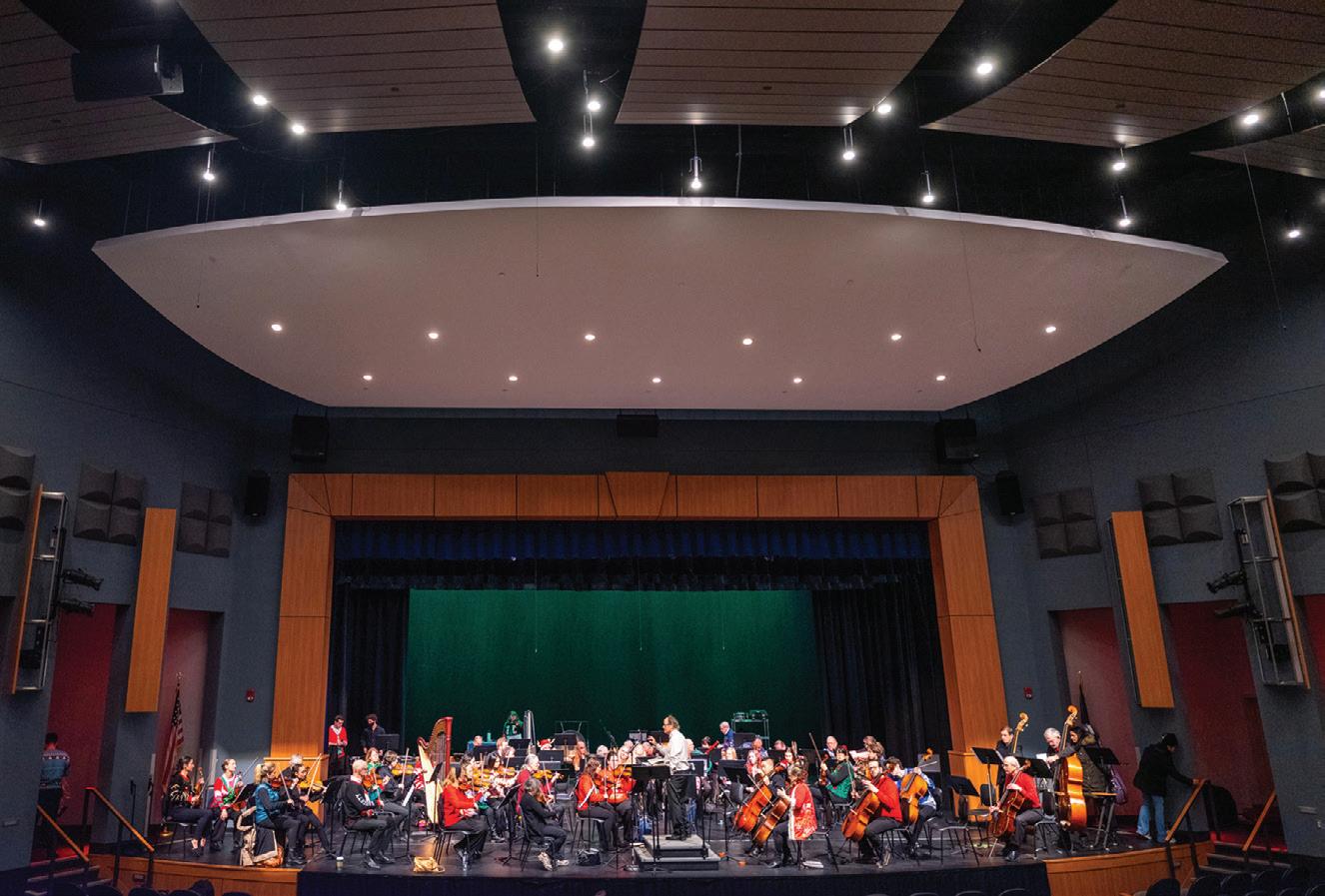
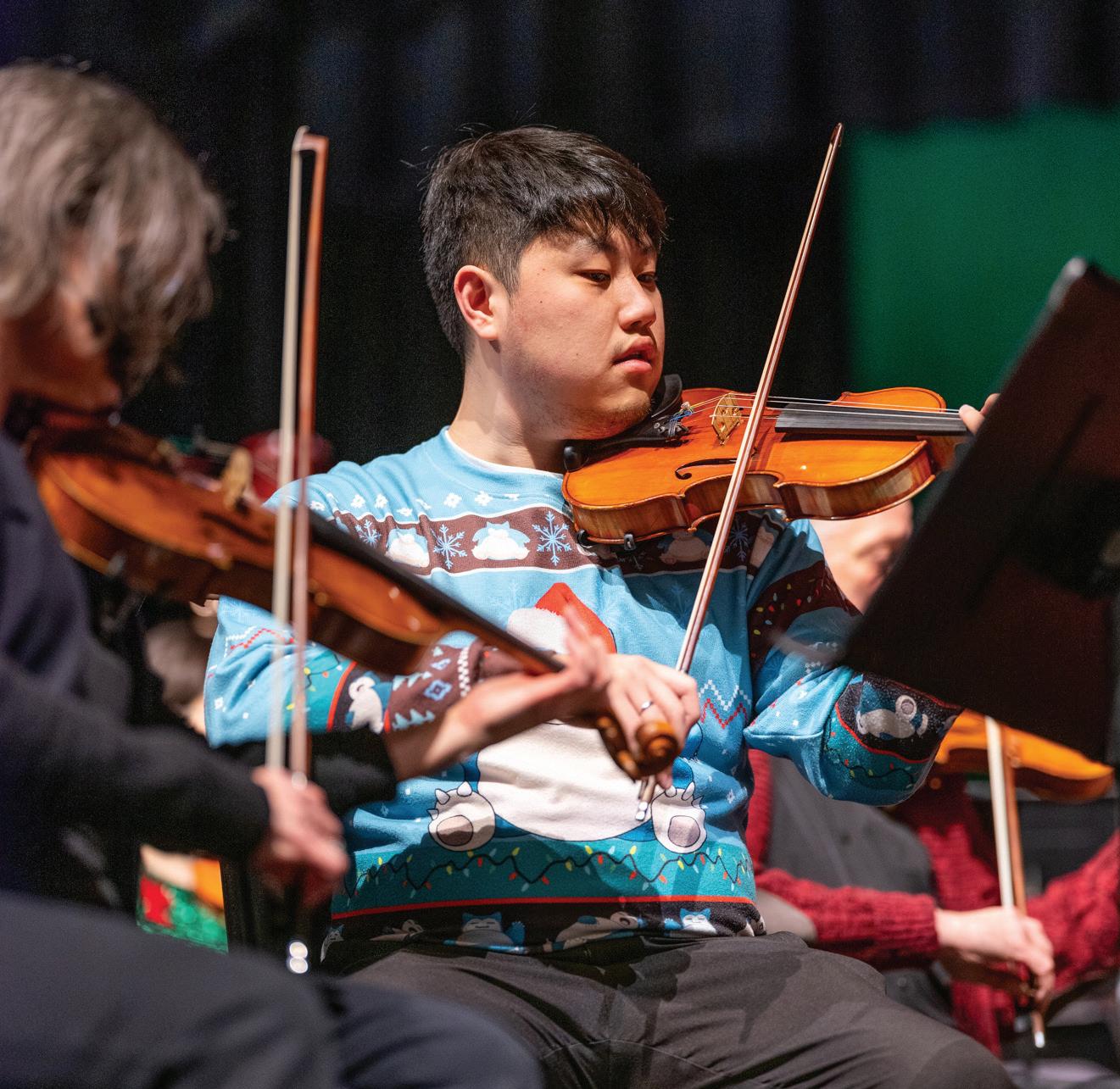
piano from 5 years of age. I thought, when I messed around on the viola, this is such a different and exciting experience. My father told me that the viola doesn’t get enough spotlight and that I should switch to violin. Indeed, I do receive more attention playing the violin, and I like that. However, I still actively play the viola. The issue is that the repertoire and writing for violin is so much more represented. The viola, historically, has been a supporting instrument like a bridge between the violin and the cello. The viola has projection issues compared to the violin but rectifies it with a wide range of sizes. Only in the late 1800s and early 1900s did more people start writing solo-works for the viola.
I really wanted to play the drums, actually, but that would never have been allowed.
603 D: You grew up in New Hampshire? Is there a big Korean population here?
SO: Well, it has migrated and changed. It wasn’t ever too big. The church I went to had 50 members. Church is definitely how people meet each other. My piano instructor was Korean. She was the church’s pianist.
My parents came here maybe looking for a different type of life. I think my father was born in the States. My mother came completely alone. I think she just wanted to see what the States were about and was led to understand that there was the promise of more job opportunities. There was a big Korean community in Maine, and that’s why I was born there.
603 D: You mentioned before this interview the experiences of implicit bias in being an Asian American in school; incidences where you were thought to be more intelligent than your peers.
SO: I didn’t really feel discomfort, but I was pointed out frequently for other students to come to me for tutoring or with questions. Now that I think about it, there were no Asian people in my grade at all. Anyway, I was always expected to perform very well. In the morning I had to wake up, shower, play piano and then while I ate breakfast, I had to do exercises from study workbooks. When I came home, I had to do homework and then practice violin. I could play for two hours before bedtime, which was at 9 p.m.
603 D: What about during your college education?
SO: I was the only Asian for miles at Keene State. In my junior year before COVID, I met a Korean professor, and we got along well. I then taught her son piano, violin and math. This is how I subsidize some of my income. The arts are a severely underfunded sector of the economy, and we all have to do gig work.
603 D: What would you change, if you could, about the landscape of live arts or musical arts in the state of New Hampshire?
SO: We don’t raise enough musicians. There are too many school districts like Merrimack, Londonderry and Derry, which do not have string programs, or one can only access music programs at a later age. Even I got a late start. The aforementioned districts are only a handful I mentioned out of so many which have underdeveloped or non-existent programs. There is hope, though. Windham actually developed programming, and they have already experienced a tripling of youth participation in orchestral programming by high school.
603 D: Thank you so much for talking with me. Before we close out, can you tell us a little more about other functions of the New Hampshire Philharmonic and where we can access its brilliant programming?
SO: Organizations and people can hire as many musicians from NH Phil as they like. A popular option is for the constituent to pay a set fee for the ensemble of choice and then has full control of marketing, ticket sales and so on.
If people want to catch our regularly scheduled programming, we have a residency at Salem High School. You can get reduced ticket prices through your local libraries, but tickets are only $35 and students are $12. We try to make our programming as accessible as possible. And people can link up with us on our socials, facebook.com/NHPhilharmonic and instagram.com/nhphilharmonic1895, or our website, nhphil.org 603






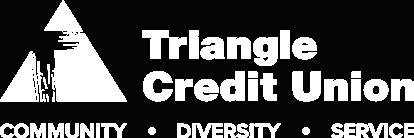

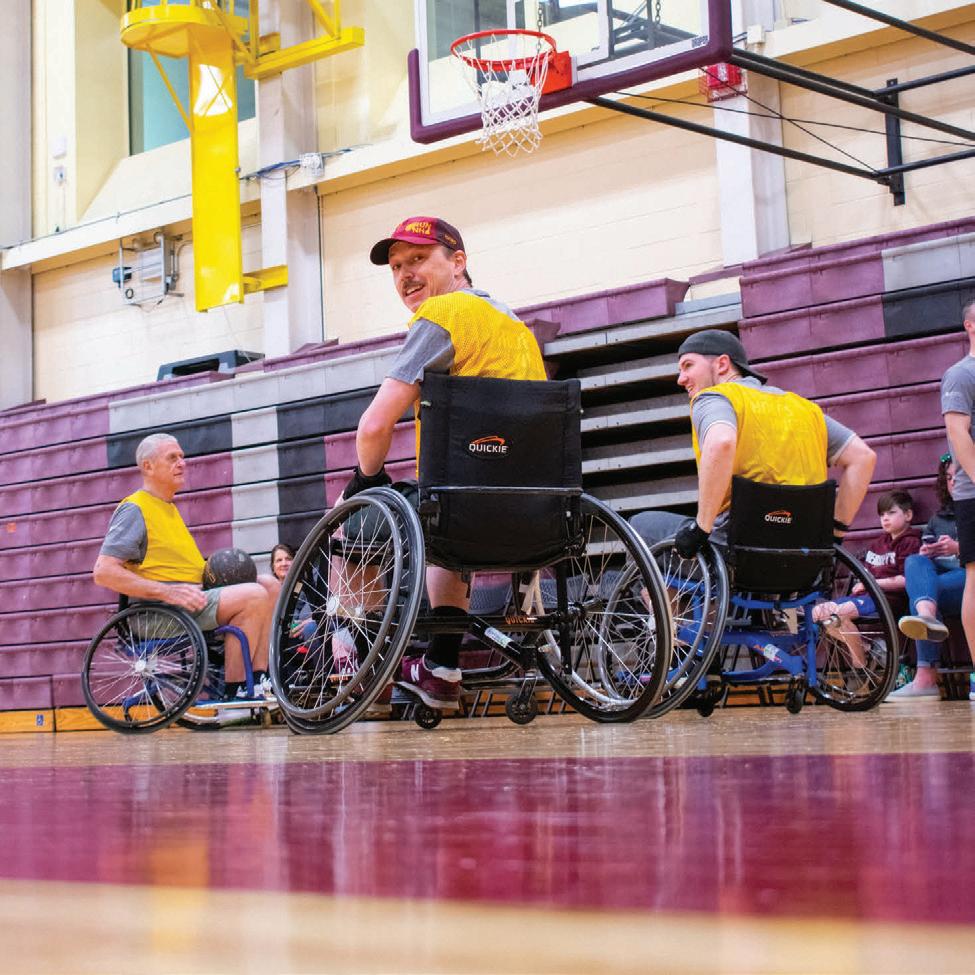



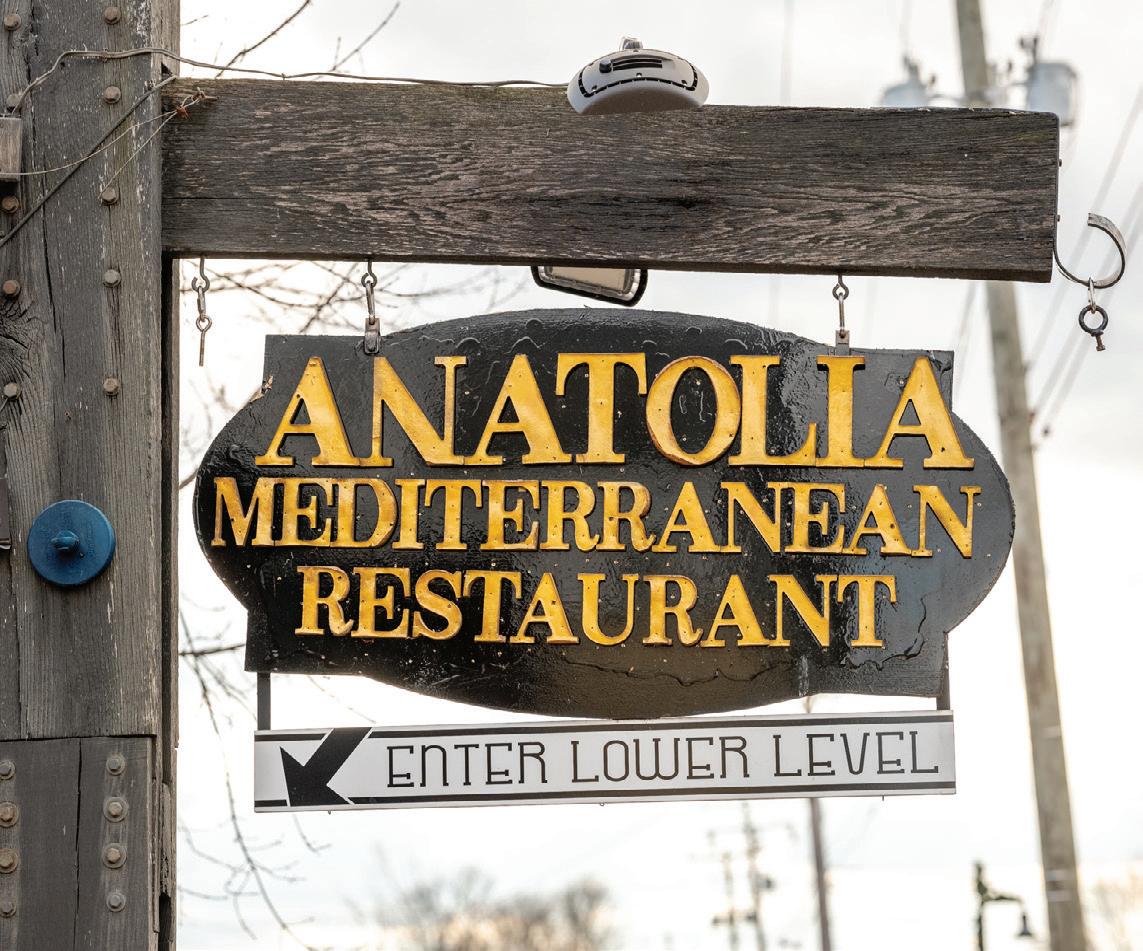

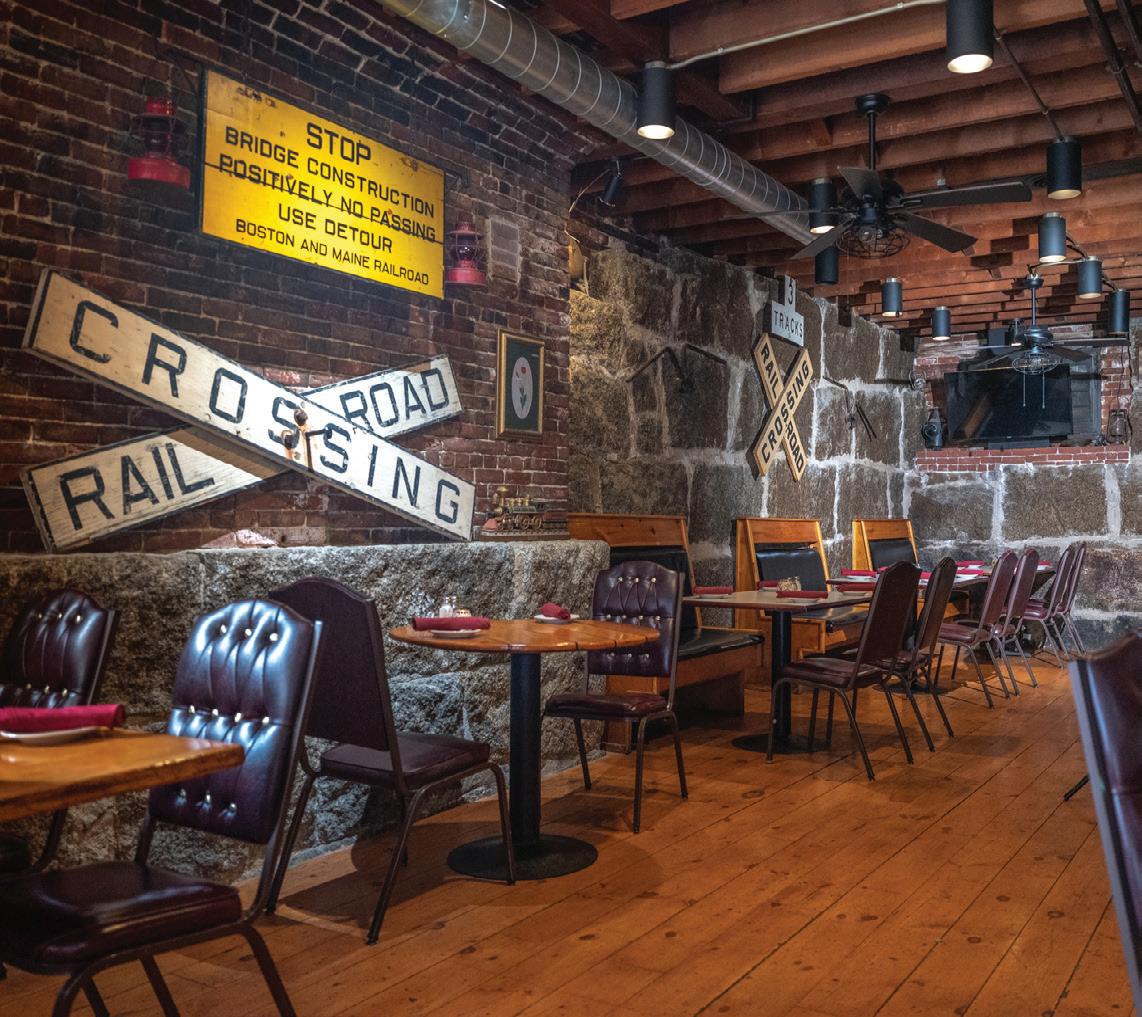
For the last three years, Anatolia Mediterranean Restaurant in Somersworth has been serving up Turkish and Mediterranean cuisine from the lower level of a former train station. The restaurant pays homage to its location’s railway past while celebrating the fusion of cultures contributing to Mediterranean food.
Owner and Chef Ali Kalem’s menu includes lavash bread, hummus, baba ganoush, falafel, kebabs, lamb and various flatbreads. He expertly uses spices from the Mediterranean region to enhance each dish. Rice pilaf and shepherd’s salad make complementary sides to the entrees. Kalem grew up in Turkey watching his mom cook, and he moved to the United States in 2005. It was his dream to open a restaurant in the Seacoast area.
The restaurant was recently recognized with Best of the Seacoast Choice Awards for fine dining and Greek food. Diners rave about the authentic, homestyle cuisine and the pleasant atmosphere. On Thursdays, Anatolia hosts a belly dancing show starting at 6:45 p.m. Reservations for dinner are recommended; you can call at 603-841-5372.

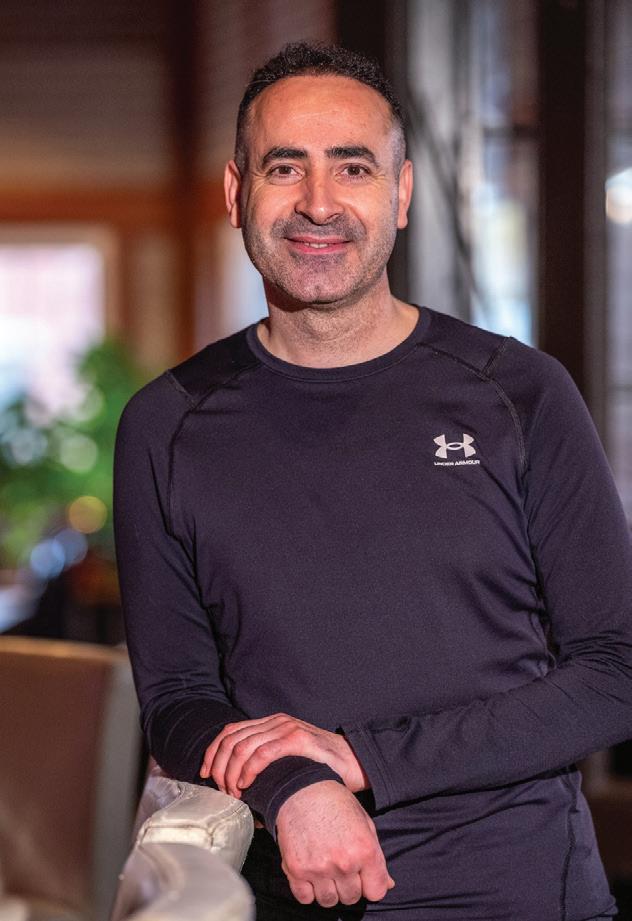
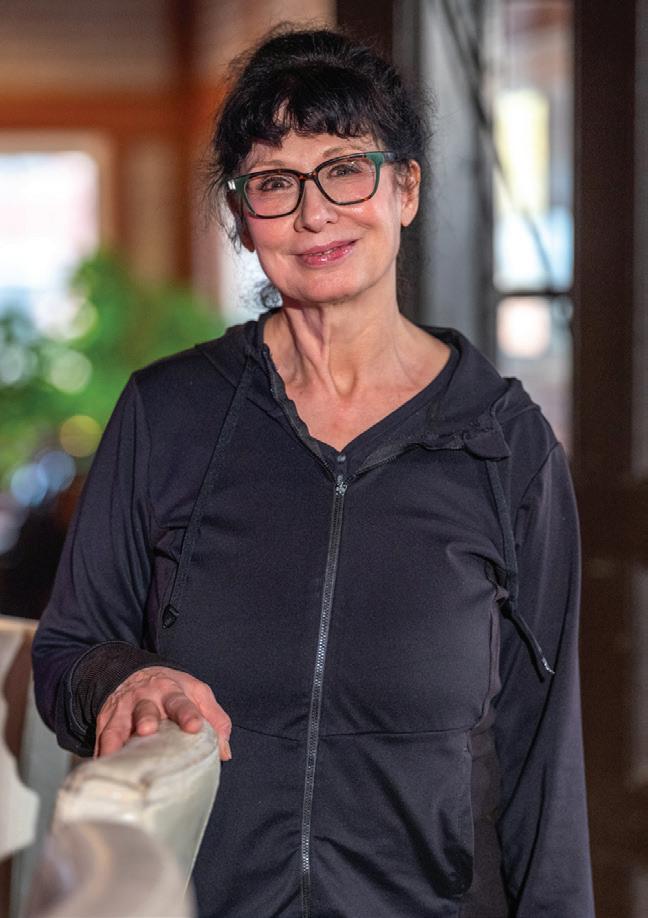

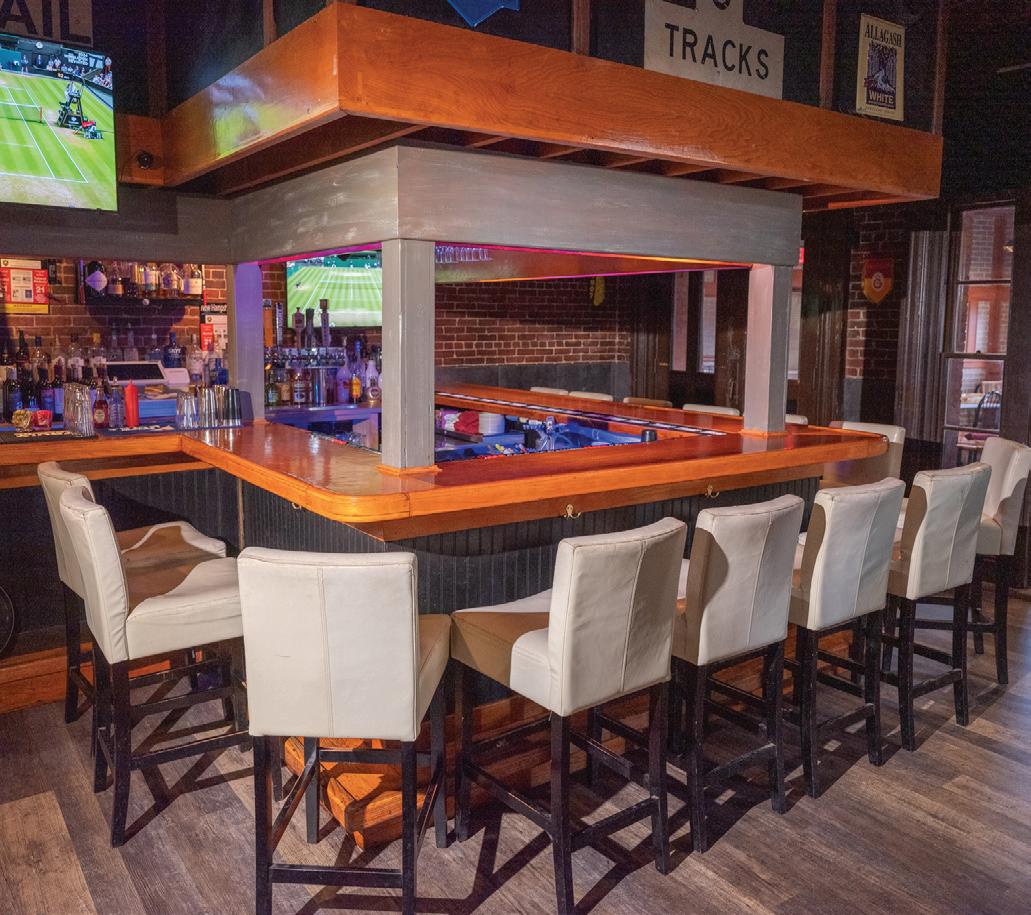
1. Anatolia is in the lower level of a former train station.
2. The mixed appetizer platter offers choices, including dolma (stuffed grape leaves), hummus, babagannush and haydari.
3. As an hommage to their location, Anatolia is decorated with railway ephemera and Mediterranean decor.
4. Manti is a traditional boiled beef dumpling dish served with yogurt and red pepper sauces.
5. Owner and chef Ali Kalem.
6. General Manager Cynthia White.
7. Anatolia Mediterranean Restaurant has a full bar with wine, beer and signature cocktails.
8. The Adana Kebab is ground lamb seasoned with red bell pepper and other spices. Here it’s served with shepherd’s salad, rice pilaf and Mediterranean mashed potato.
9. Anatolia also offers a catering menu.
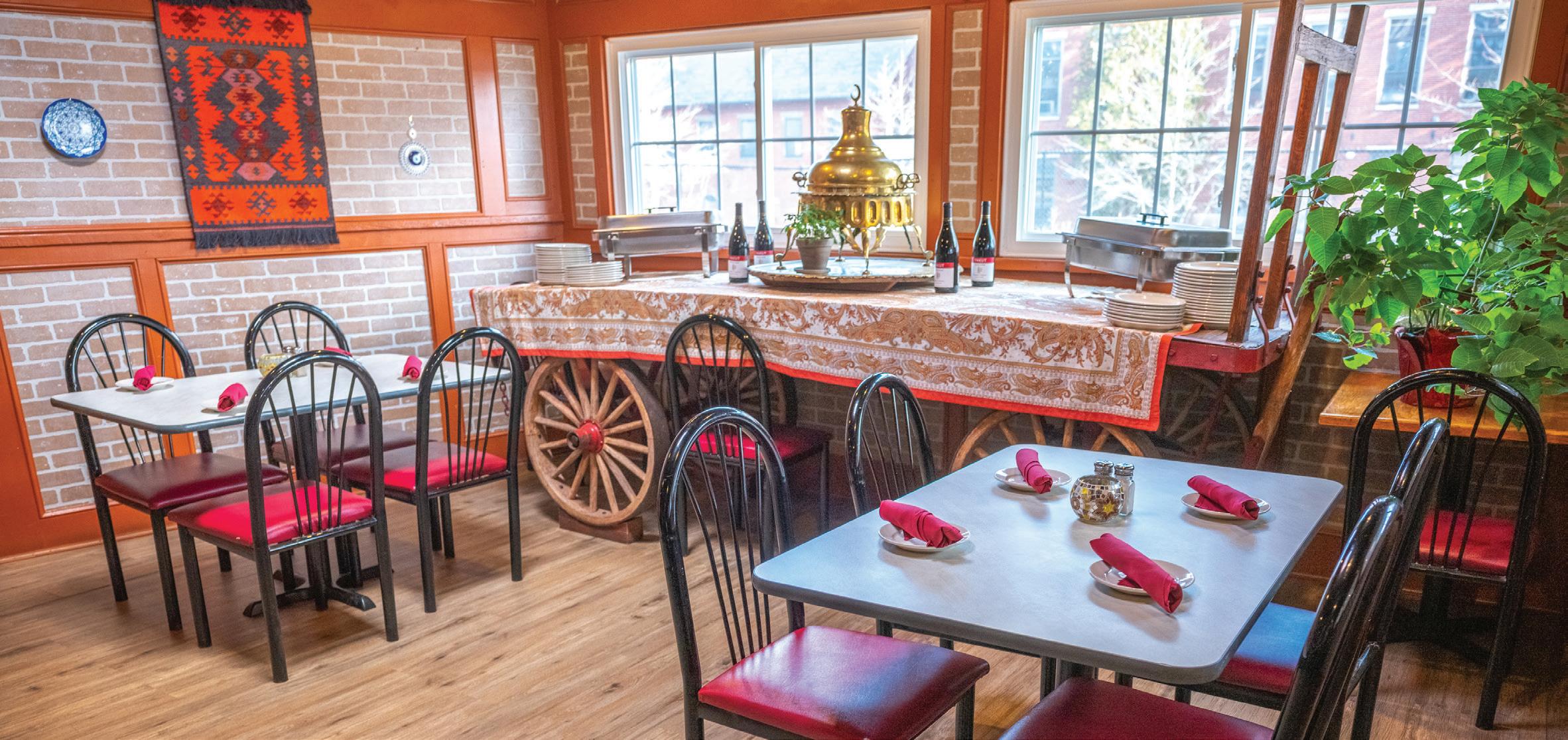
BY SUZANNE LAURENT

OPEN SKY THEATER PROGRAM AT NH PRISON FOR MEN OPENS DOORS TO A BETTER FUTURE
TThree men argue over a piece of art — a nearly blank white canvas. Their conversations range over days from one of their homes to another, and are at times funny, wheedling, angry, explosive, tender. An audience watches them, riveted.
The audience and the three men — actors exploring roles, intentions, relations; playing to get to something very serious at the heart of human relationships — are all for a few hours fully immersed in these characters’ lives and the spaces they inhabit.
The play ends. The audience returns to their seats, where they have been sitting all along. Bleachers and plastic chairs in a prison gymnasium. The space before them is nearly empty but for a spare set of props and flats, blocky shapes, just a suggestion of the homes the characters so tangibly inhabited moments before.
The three men, now actors, and now again also men who are incarcerated, bow and beam, in standard-issue prison uniforms. No costumes, no stage lights. Just the text and people exploring it, stripped down to its relational essence.
The audience, invited from the community beyond the prison walls, leap to their feet, clap thunderously and exchange awed comments. Something transformative has happened, and they work to describe it to each other as they are led out of the gym and across the prison yard by the guards.
This innovative theater program at the New Hampshire State Prison for Men in Concord offers residents the opportunity to develop personal and interpersonal skills, providing them tools and hope for a future beyond their sentence.
Conceived and created by actor and director Derek Lucci, the Open Sky program was launched in 2019. It recruited and developed a core group of volunteer student actors and a tech crew, all comprised of prison residents. Over the course of training and rehearsals, the actors say they gained powerful insights into themselves and the deep, complex nature of the other characters with whom they inhabit the stage, and the world.
In 2024, after months of intense training, Open Sky participants rehearsed and presented a full run of Yasmina Reza’s play “Art” in the prison’s gymnasium. About 650 prison residents and an invited audience of supporters and stakeholders saw it during its run. The group performed 16 shows over three weeks, two shows a day.
The actors received standing ovations.
“Derek allowed us to find for ourselves the meaning and relationships between the stage, the actor and audience,” said one Open Sky participant. “I cannot emphasize enough the profound relief, and a sort of giddy fear, I found in myself when I stepped onto the stage and felt permission and space to open myself up to an audience that I knew would listen and see me for as long as needed to explore those feelings.”
Lucci said there is a minimum of one year of commitment to Open Sky. While 28 men showed up to start the training at first, they self-selected as the commitment and investment grew, and the group winnowed to a dozen or so actors. Two months out from
production the group was joined by more than 30 other resident volunteers to help with the technical design and production work including set and prop building, tickets, posters and programs.
“It’s a slow, different process,” Lucci said. “Actors cultivate a rich facility with attention that is steeped in listening. Honing an ability to get on the same page with one another and to stay there guiding an audience through an experience. Not only are they here to advance themselves with their learning, but to assist the learning of others around them as well. The ensemble is a blend of very different people coming together toward common pro-social goals, and they learn and grow together.”
Statistics show that 95% of incarcerated people will be released from prison, and 45% to 65% will return to prison within the first three years of release.
“I believe there is nothing more essential to rehabilitation than this practice of truly seeing yourself and the people around us, to recognize our shared fears, longings and joys,” the Open Sky participant continued. “And thus, there is no better practice ground to explore our human connection, than on the stage.”
you can no longer see the walls, just the sky,” he said.
Born and raised in New Hampshire, Lucci brings more than two decades of experience as an actor, director, writer, visual artist and lead educator to his role as founder and director of Open Sky.
“This began with my own journey as a college student at UNH. I was fascinated by playwright Samuel Beckett’s writing. And while I was doing research on him, I found a footnote referencing a production of his play ‘Waiting for Godot’ that he attended in San Quentin prison where he’d been struck by a first-time actor with no prior experience finding their way into his play in a way he’d not experienced with professionals,” Lucci said. “That made a mark for me at the start of my own training to remember to return to the work as though I’d never done it before. There’s a humility there where the work gets made.”
“I believe there is nothing more essential to rehabilitation than this practice of truly seeing yourself and the people around us, to recognize our shared fears, longings, and joys,”
– OPEN SKY PARTICIPANT
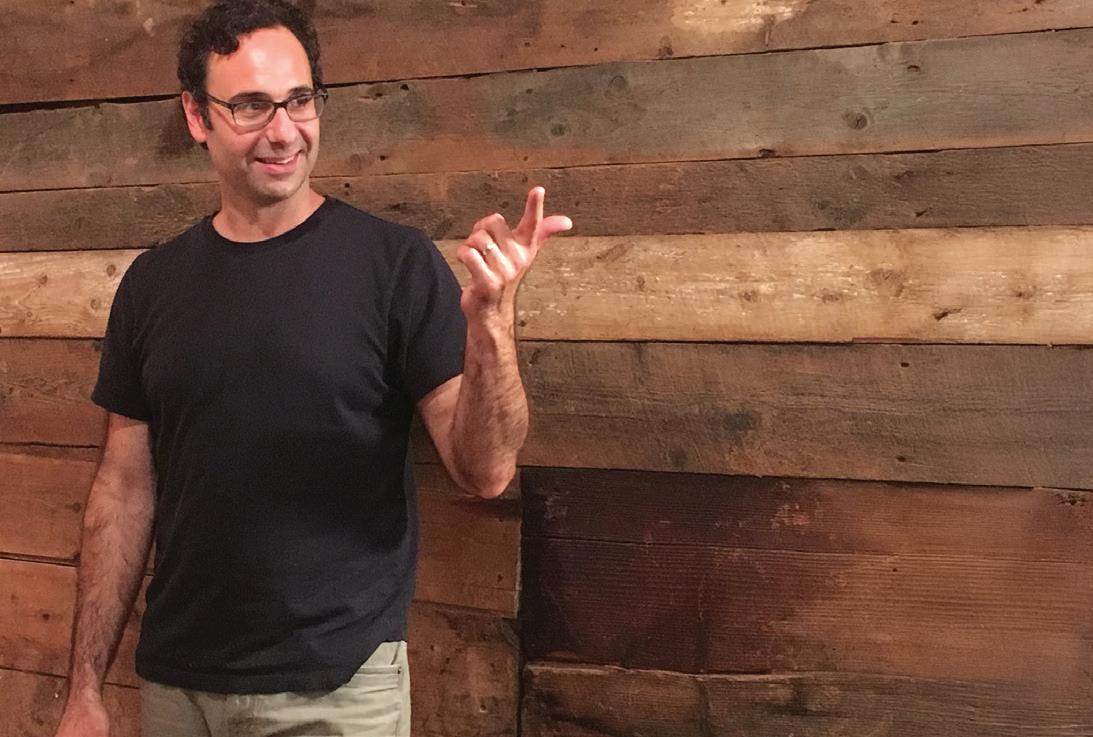
Open Sky is a skills-based acting program for New Hampshire’s incarcerated population designed to help individuals regain or acquire the skills needed to individually and socially rehabilitate, thrive and re-enter society as contributing citizens, family members, employees, parents and mentors. Open Sky’s actor training process engages participants in:
· creating and practicing collaborative socialization skills.
· navigating individual impulse control toward building empathic, pro-social skills.
· envisioning and engaging positive self-narratives toward individual and community outcomes.
· connecting with others through necessary ensemble-building, learning to give and accept support.
“In the various exercises, I found a compelling juxtaposition between looking within oneself while also getting beyond our inner world to be present in the worlds offered to us through the presence of an audience,” said another program participant.
Actor guides lessons in communication, self-awareness
The name Open Sky came to Lucci from his first day inside the prison.
“You can always see the sky from everywhere in the prison yard. There was a perfectly blue sky when we toured the facility and met some future participants, and if you tilt your head up just enough,
After receiving his B.A. in English/theater from the University of New Hampshire, Lucci went on to earn a certificate from the Royal Academy of Dramatic Art, London (U.K.) and an M.F.A. in acting from Yale School of Drama. He is a member of Actors Equity Association and the Screen Actors Guild.
“I think it (acting) serves a distinct social communicative purpose,” Lucci says. “In some sense we don’t really know how we are; theater puts us in touch with how we think and behave and asks us to consider it. Kind of exactly what prison does if you think about it. I believe anyone can act and open communal discourse with their work.”
“What’s wild about theater is you have one group communicating with another group, where that second group generally stays pretty quiet and takes it all in. Imagine if we could do that generally. Where two groups of human beings confront each other usually, they’re competitive and produce winners, losers and vengeance: sports, law, war. But theater produces delight, awe, questions, understanding and insight, all within the privacy of your attention as you sit in the dark with others looking at the smaller group over there in the light,” Lucci continued. “It’s a deeply communal space. Acting can become fundamental to how we’re evolving if we choose to engage it on those terms.”
Understanding the complexities of theater can help the program participants better handle communication upon their release.
“It’s an understanding of who you are. The rules are pretty simple: You play a part; you don’t play yourself. This makes some self-knowledge a requirement instead of an option,” Lucci said. “It takes a combination of humility, vulnerability and daring to learn this work. To value someone else’s point of view as if it is your own. ... In ancient Greece, the theater was a place of healing. There was
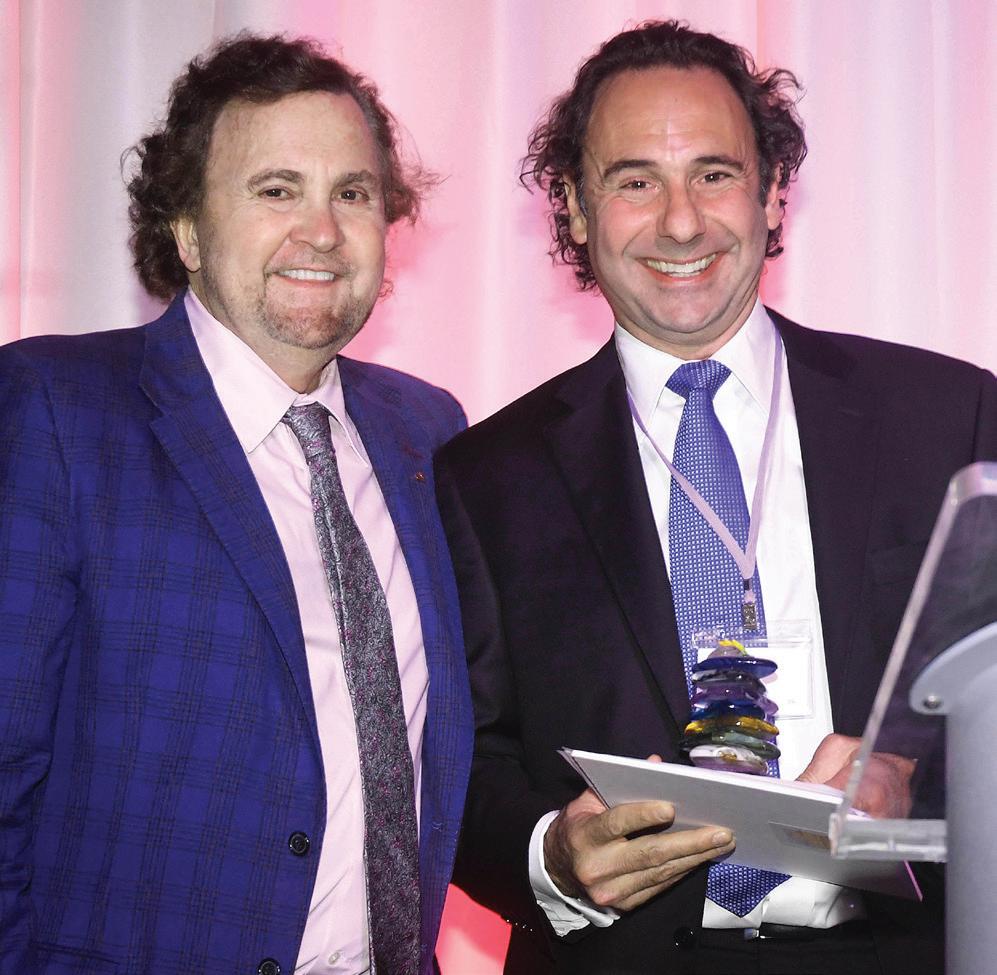
medicine and wisdom there that people traveled great distances to engage seeking their own good health, mental health and engagement with civil discourse. How did they do this? They told stories.”
“Derek is doing corrections work,” said John T. Broderick Jr., former chief justice of the NH Supreme Court and chair of Open Sky’s board of directors. A strong advocate of mental health reform, Broderick has been with Open Sky since its beginning.
“It’s one of the most ingenious things I’ve been involved in,” Broderick said. “I met Derek for breakfast at Blake’s Restaurant in Manchester, and it was one of the most inspiring meetings in my life. When he told me he wanted to get into the state prison to teach serious acting, I immediately sensed the impact his talent and passion could make there.”
Broderick and Lucci discussed the idea with Helen Hanks, New Hampshire Department of Corrections commissioner, who with her behavioral health background also saw the value in this innovative idea and classes began.
“I was there for the rehearsals and watched the process,” Broderick said. “What struck me was that Derek was affirming who they can be by engaging who they are. He gives them an array of possibilities and they engage!”
Broderick underlines the professional quality of the acting work due to the investment and hard work of the participants, “There is a modest set designed by residents. After five minutes, I forgot where I was — I was so riveted by the work these men are doing inside the play,” he said. “The invited audience of lay people all stood and applauded after. I thought what must this feel like to these actors — to live in a world of affirming moments. When these people get out, they will see themselves differently.”
Preliminary program data gathered by JSI Research and Training Institute for reports compiled in support of Open Sky’s programming for New Hampshire Service to Science and their expert panel suggests that participants develop creative problem-solving skills and increased empathy for others. Further, they report that taking on a role allows them access to who they are when there is no pretending, in a way that was not possible before.
Participants discover the consistency of an authentic self in a way
they were not able to understand so clearly before the work of actor training in the Open Sky program. Through the rehearsal process, participants developed skills enabling them to cope with conflict, criticism and anxiety. Participants also began to make connections between the negative consequences of past choices including how past behaviors had led to violence which affected their personal development and relationships.
“All training is about understanding how one chooses poorly and how one may choose otherwise. Art-making is the practice of conscious choice-making,” Lucci said. “Even starting in the first weeks, participants begin to unfold themselves to sit more upright, so they can see each other clearer, listen clearer and as a result see themselves for who they are and who they may become by making choices. Like everything else, it’s a process, and as participants start to engage, they find their contributions and discoveries necessary to not only their own growth but the pro-social growth of the ensemble.”
Broderick added that Open Sky is a program of fundamental necessity and that Lucci plans to train people to bring this program to other states.
“New Hampshire is unique in its interest and ability to uncover and lift innovative programs designed to address challenging public health like mental health and substance misuse,” said Rachel Kohn, senior associate at the JSI Research and Training Institute.
The Service to Science process is designed to do just that: identify innovative programs; help them define and demonstrate their promise to move the needle in the domains of mental health and substance use; and support them through the rigorous process of evaluating the program to demonstrate that it is evidence-based.
“Open Sky is still early in the evaluation process yet, based on preliminary findings, has been designated as an Innovative Program and has advanced to be recognized as a Promising Practice by the New Hampshire expert panel, which reviews applications for the Service to Science program,” Kohn said.
JSI is rigorously evaluating the program to determine if these changes result from participating in Open Sky or another reason.
“Participants in Open Sky are demonstrating positive change in protective factors such as self-awareness, self-control, empathy and thoughtfulness and self-esteem. This change is clear in the way they interact with each other, the way they communicate, their ability to find ‘comfort in the uncomfortable,’ and the way they treat and interact with others.”
Lucci was honored with the 2023 Bayberry Financial Services Artrepreneur Award by the NH Business Committee for the Arts for his work with Open Sky and was recognized as part of New Hampshire 200 as an influential business leader by NH Business Review in 2024. For more information, visit opensky.org. 603
We are proud to serve New Hampshire with branches in these communities:
Derry | Hudson | Londonderry
Nashua | Pelham | Salem | Windham

EnterpriseBanking.com/NewHampshire 877-671-2265
“She gave me my life back.”
“It started out as a normal outing. My wife and I had to run to the grocery store. We were driving down the road casually going over our shopping list when the car ahead of me started to slow down anticipating the yellow light. I started to move my foot from the gas to the brake as any normal person would do when they see brake lights in front of them, but I couldn’t. I couldn’t feel my foot. The car kept moving forward and I just couldn’t get my foot on the brake and CRUNCH! I finally came to a stop when I hit the car in front of me.”
This tragic story was shared with us by Mike S., a New Hampshire resident who has Peripheral Neuropathy. While no one was hurt in this accident, Mike S. had suffered almost every day of his life with tingling and burning in his feet until numbness set in, and he could no longer feel even the brake pedal beneath his foot.
That’s where Dr. Markwith and her staff at Trend come in.
“About 80% of our current patients come to us suffering from the same condition as Mike,” tells Dr. Markwith.
“They’re in constant pain from neuropathy and it prevents them from not only living their lives but more importantly, it prevents them from enjoying it. Depending on the severity of

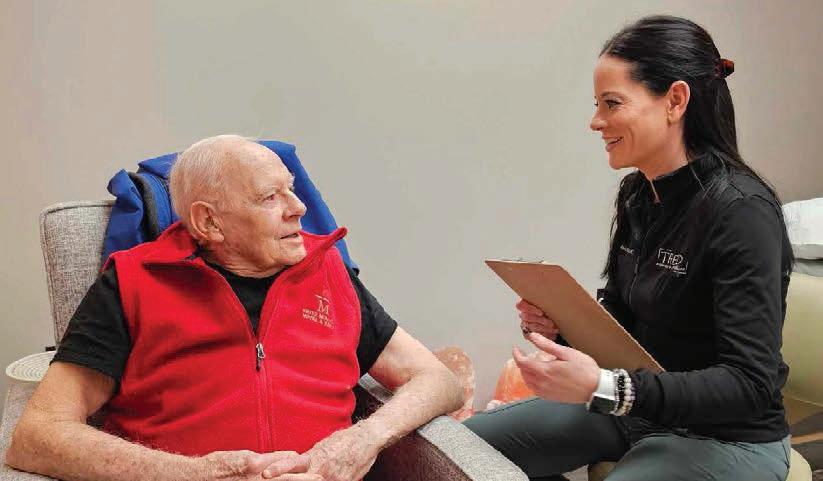
their nerve damage, we typically see tremendous progress in 3-4 months of treatment. I like to say we’re in the business of making your golden years golden.”
“I can’t lie,” confides Mike. “I was skeptical at first. So many specialists told me there was nothing that could be done and then there’s a doctor right here in Concord tells me she can help. Turns out she was right! About three months after treatment I was able to confidently drive myself to my appointments! My wife and I celebrated by buying ourselves a new car. It’s hard to put into words how incredible this is, quite frankly [Dr. Kristen] gave me my life back.”
You can learn more about Dr. Markwith and Trend by visiting TrendAcupuncture.com or call (603) 456-8294 to schedule a complimentary consultation.
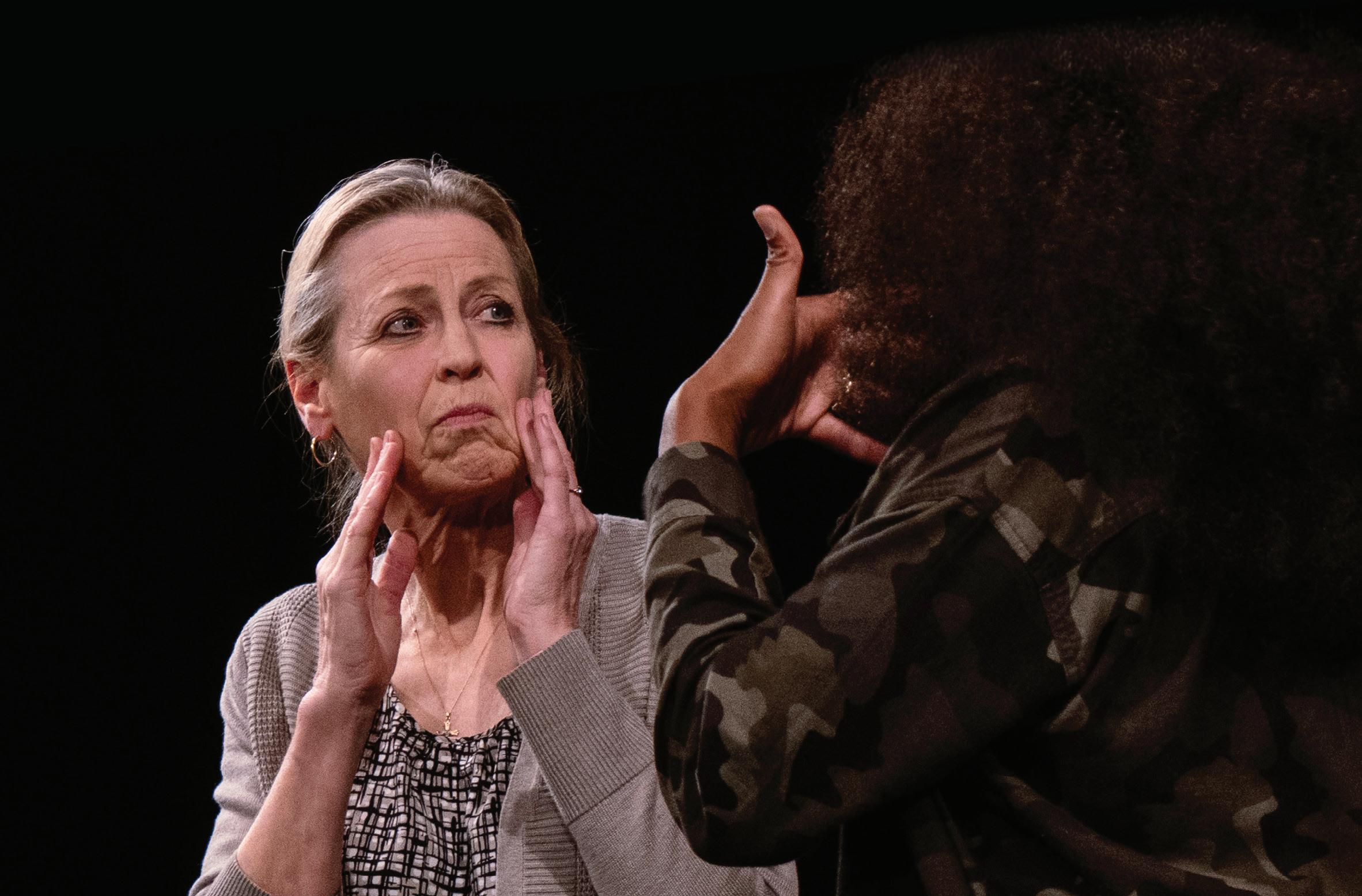
Imagine being given a prison sentence and being cut off from society. It would be a hopeless feeling and an end to life as one knew it. But then, imagine people who want to help and give you hope that you can get a fresh start with new skills.
The New Hampshire Correctional Facility for Women in Concord recently added a new program that uses theater to build interpersonal skills, called “Finding My Voice,” taught by Genevieve Aichele, the state’s 2024-26 Artist Laureate.
Funded by a New Hampshire Women’s Foundation grant, “Finding My Voice” is administered through Kimball Jenkins, a community cultural center in Concord. The organization is celebrating 40 years of creating strong relationships within
its local community through art, history and culture. Kimball Jenkins received the grant from the New Hampshire Women’s Foundation.
“Joan Goshgarian, the interim executive director, knew Genevieve and reached out to see if she might be interested in leading the project. Genevieve enthusiastically agreed,” said Martha Lemire, executive director of Kimball Jenkins. “I took over the oversight of the project and have been working with Genevieve, the Women’s Foundation and staff at the New Hampshire Women’s Correctional Facility to get all of the components in order to launch the program.”
The first five-week session began in November 2024 and the second in January. Participants are invited to engage in both performing and written activities, using techniques from theater, improvisation and storytelling.
Participants are encouraged to “find their own voice” to help them prepare to re-enter society, including practical techniques such as preparing for a job interview or navigating difficult situations in professional and personal relationships.
“The first session had 22 women signed up,” Aichele said. “There were three regulars and others in and out during the 90-minute classes offered once a week.”
Aichele said she worked with people who had experienced many “tough breaks in life.”
“There were a lot of poverty and drug issues,” she said. “They were very open to doing these activities. Acting is hard — so many different emotions come up. Theater allows you to express emotions in a safe way as you’re often speaking another character’s words, like getting into the role of an Alcott story from the 1800s, understanding how to walk and speak differently from today.”
Participants in the first session gave some positive feedback, which included learning to let go and get silly and step out of their comfort zones, risk-taking and being vulnerable, supporting each other as a group, stage presence and building con-
fidence, public speaking skills and feeling accomplished.
“We are pleased to support Kimball Jenkins and their “Finding My Voice” program because it aligns with the foundation’s vision for social and gender justice in New Hampshire,” said Lauren Wool, director of grantmaking for the New Hampshire Women’s Foundation.
“In addition to producing research about and advocating in support of services for Granite State women who are incarcerated, the foundation funds programs that provide services and opportunities for women currently incarcerated at the Women’s Prison to gain knowledge and skills that will help their transition back into their communities,” Wool said. “The ‘Finding My Voice’ program, led by Genevieve and Kimball Jenkins, uses expressive arts and improvisation workshops to help the women who are incarcerated heal from past traumas and rediscover their voice.”
Aichele has performed, directed and
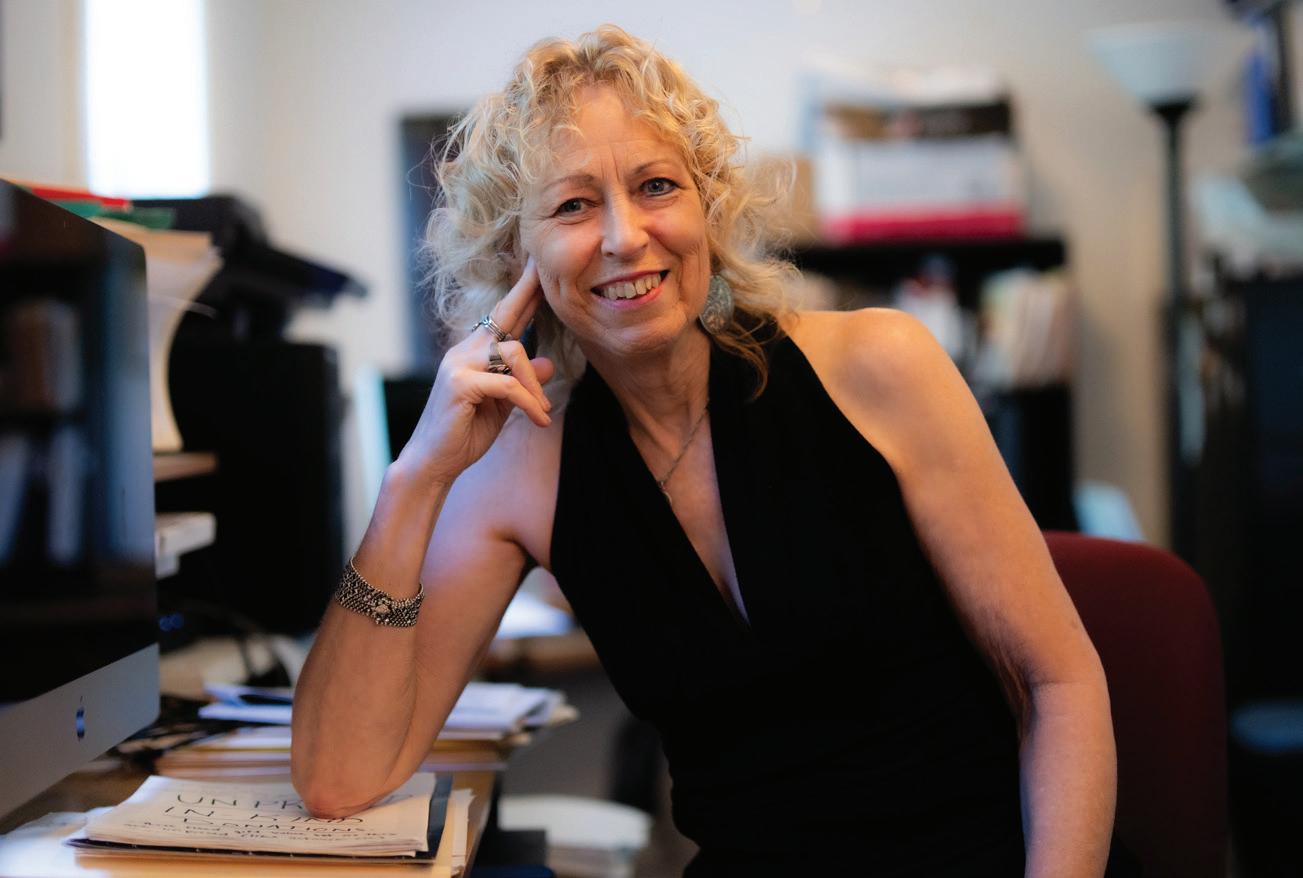
taught theater arts nationally and internationally for more than 40 years. She was the founder of New Hampshire Theatre Project, an applied theater company in Portsmouth, NH, and served as the executive director for 35 years. She recently stepped down as executive director and is now its development/ community projects director.
Among her many prestigious awards, NHTP’s Elephant-in-the-Room Series, which Aichele co-founded, received the 2021 NH Governors Award for Arts in Health. The program uses theater to bring difficult issues out into the open through healthy dialogue and community connections. 603
Understanding the circumstances and dynamics that create true belonging and inclusion is crucial to developing NH workplaces and communities that excel and thrive.
Create supportive workplace cultures. Understand patterns of exclusion or inclusion. Hear relevant stories and case studies.
Lead beyond the organization by taking collective action.

NH context to understand how to support this work.
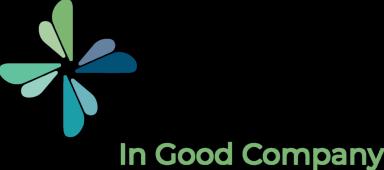
BY AMARA PHELPS

PHOTOS BY ROBERT ORTIZ
youth mentorship and court diversion program, founded and operated in partnership between Manchester Police Department and formerly incarcerated individuals, hopes to effect a cultural change in the city’s young people.
CHOICEs (Creating Hope, Opportunities, Inspiring Change, Excellence, & Success), co-facilitated by Evenor Pineda, seeks to prevent young Manchester residents from following dangerous paths through their adolescence into adulthood, which could potentially set their lives onto a negative course through incarceration.
The program’s inception was sparked as a reaction to increased reports of gang-related activity among teens in Manchester’s school district, where it became clear that direct intervention was necessary to uncover and untangle the roots of this systemic issue. In January 2023, just as the program was first gaining its legs, an explosive gang-related fight at Central High School referred a dozen kids to CHOICEs at once, launching the program rapidly.
CHOICEs expands upon the original state standards of youth diversion that merely require students to attend weekly group sessions for little more than 60 minutes. Instead, participants are exposed
to alternative concepts of growth, team building and skill development. Teens opting into the CHOICEs program are individually matched with community mentors whose journeys are similar to their own.
Employing the wisdom, knowledge and hindsight of their own lived experiences, the team of mentors come from diverse backgrounds, all of whom have experience moving through the correctional system at a point in their lives. Bolstering trust and positive adult relationships for youth at these critical stages in the prelude to their lives has shown to be a key piece in anchoring youth into their communities and growing maturity.
“These young people do not have positive role models in their lives. They don’t have those people that can really speak to them from shared experiences,” Pineda said previously to Manchester Ink Link.
Over the course of a one-year commitment, CHOICEs’ wraparound approach takes mentorship into the community, with Pineda and other mentors offering home visits, support at court appearances, and even casual meet-ups at the mall food court. Creating positive pillars for teens to rely on in times of trouble, call to for advice, and keep them on course before they falter, CHOICEs mentors provide a touchstone between two worlds for students feeling at odds in adolescence.
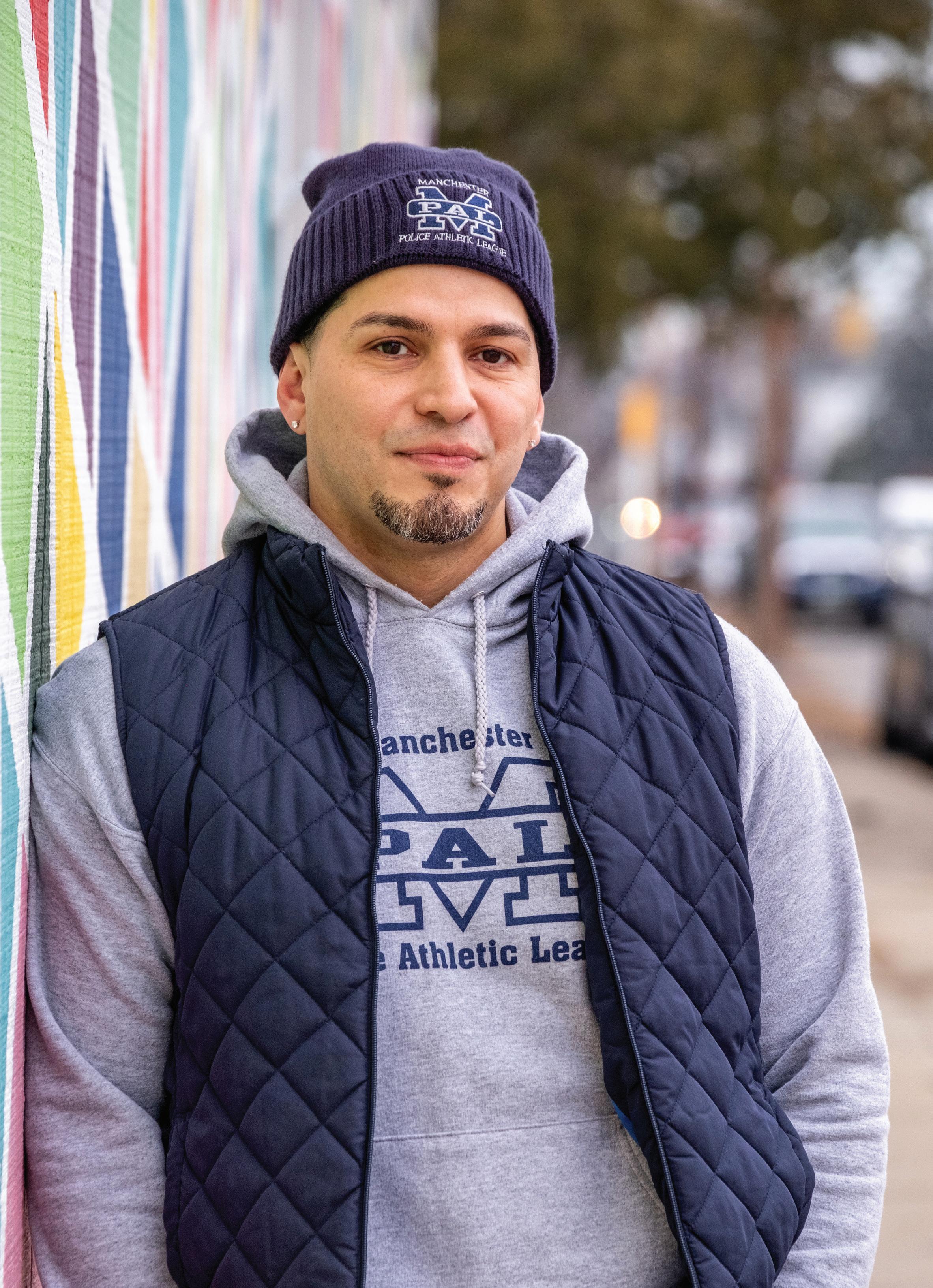
Evenor Pineda seeks to prevent young Manchester residents from following dangerous paths through their adolescence into adulthood.
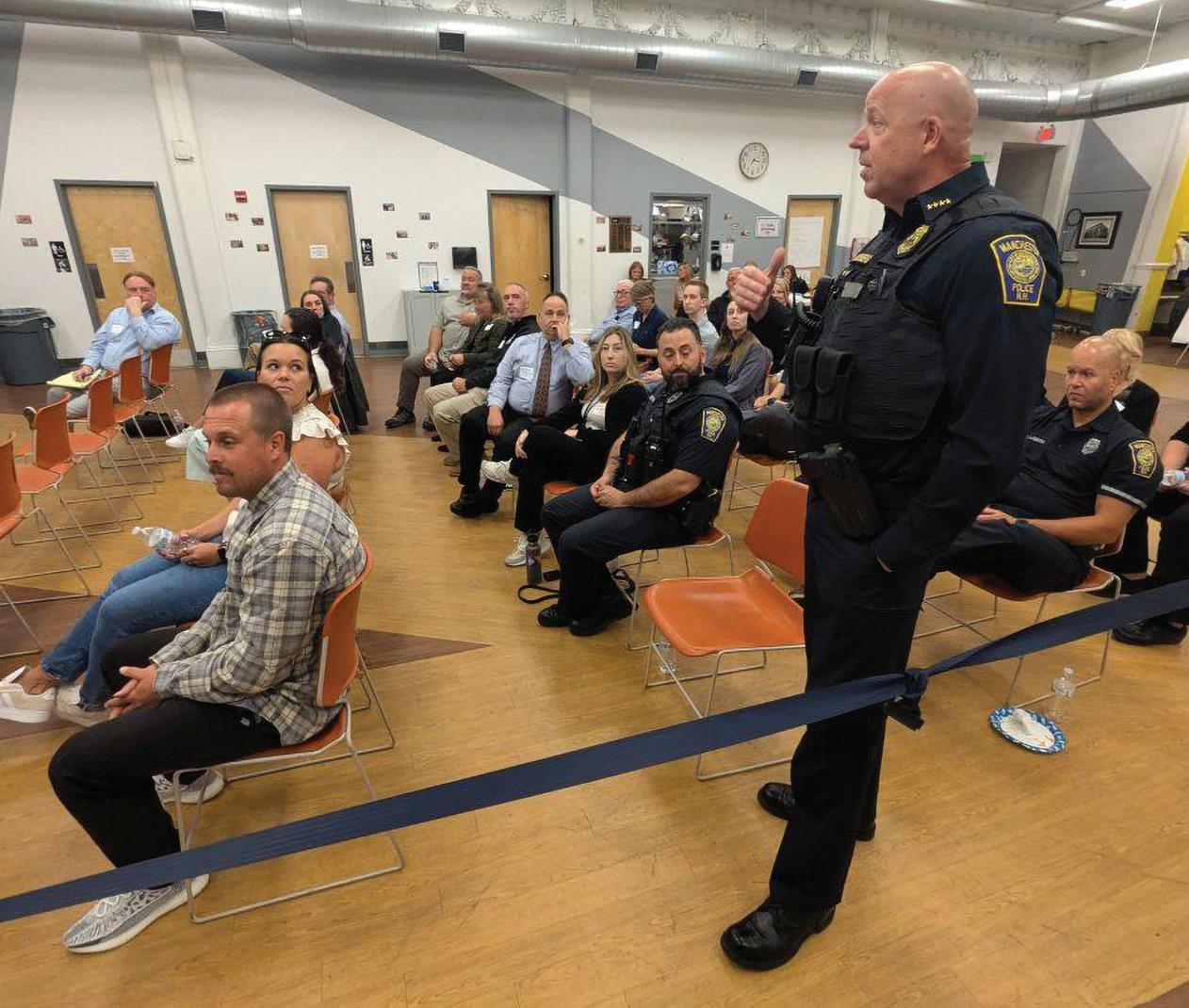

While the support systems CHOICEs carves out are predominantly meant to serve Manchester’s court-involved teens and young adults, the light the program shines spreads beyond just the kids. Pineda found peace and new growth through building similar connections and support systems in the community after beginning the release process from a prior conviction in 2019.
Growing up in Nashua, his early life mirrors that of the kids in his program — being involved in local gang culture and running the streets with friends between stints in correctional facilities. Arrested at 23 for manslaughter, Pineda served 15 years between Manchester’s Valley Street Jail and Concord’s men’s prison before his release.
Manchester Police Athletic League, who houses the CHOICEs program, had just taken over New Hampshire’s juvenile court diversion program of Manchester in 2018; an amorphous role in the city that had originally sought to intervene in the sentences of first-time, nonviolent offenders, but has grown in scope with the program’s changing oversight.
In 2020, as Pineda was beginning his transition out of the prison system, his
first experience with MPAL was as one of many guest speakers with lived experience brought in for a newly piloted concept called Futures, intended to be a once-aweek skills and mentoring program for court-involved teens and young adults.
The voice, support and advocacy of others, like his own mentor and CHOICEs co-facilitator Jayna Stevens, helped shape Pineda’s path following incarceration. His strong relationships and growth throughout his time in prison created a strong connection to corrections staff, who in turn advocated for and created pathways for him to shine. Recommended by his own correctional officers to Stevens, Pineda was highlighted as the perfect candidate to share his experiences with young adults in the school system.
The one-time invitation morphed over time, with Pineda invited to pop back in for continued visits until he found himself a part of the tapestry of the group.
“I just started showing up every Wednesday,” Pineda said. “I never even thought of it.” Originally stepping in only as a volunteer at Futures, Pineda even shaped his working schedule to accommodate visits to the program.
“It was a no-brainer,” he said.
As the fresh and nebulous idea continued to blossom in its early development, his increased involvement, passion and devotion earned him an offer for a full-time position within the MPAL team, where he now sits overseeing CHOICEs as the only full-time employee.
CHOICEs, alongside the rest of the Manchester Police Athletic League’s programming for students, places a focus on providing kids with an array of activity outlets and skill-building through volunteer-run groups. The facility boasts a full-scale boxing and martial arts gym in the basement hosting classes and intensives multiple times a week, alongside a halfpipe, full-size wrestling mats and more; all complete with all the equipment necessary for students of any age to participate, removing many barriers to entry.
Older students are given free reign in the gym facilities to create their own workout plan or are invited to tap into boxing drills and train up for matches. The boxing gym is also available for members of the Manchester police force to continue their training, providing students with interaction and positive connections with officers in their community. Police officers likewise build rapport and trust among the young people of the neighborhoods they are meant to serve.
The impact of Pineda and his team of mentors’ work with CHOICEs youth, alongside the swath of opportunities provided in all of MPAL’s programming, is apparent in the community. Former chief of police Allen Aldenberg attributed Manchester’s impressive statistic of zero gun deaths in 2024 to the immense load carried and eased by CHOICEs and other vital city programs.
With increased funding as they continue to search for grants, the team only hopes to expand into further cities, with Pineda hoping to bring the program home to the same streets he used to trap on in Nashua. The care, kindness and empathy CHOICEs and Pineda extend into the city has a cyclical impact that they hope will continue to grow and shape New Hampshire’s cities with generational change. 603
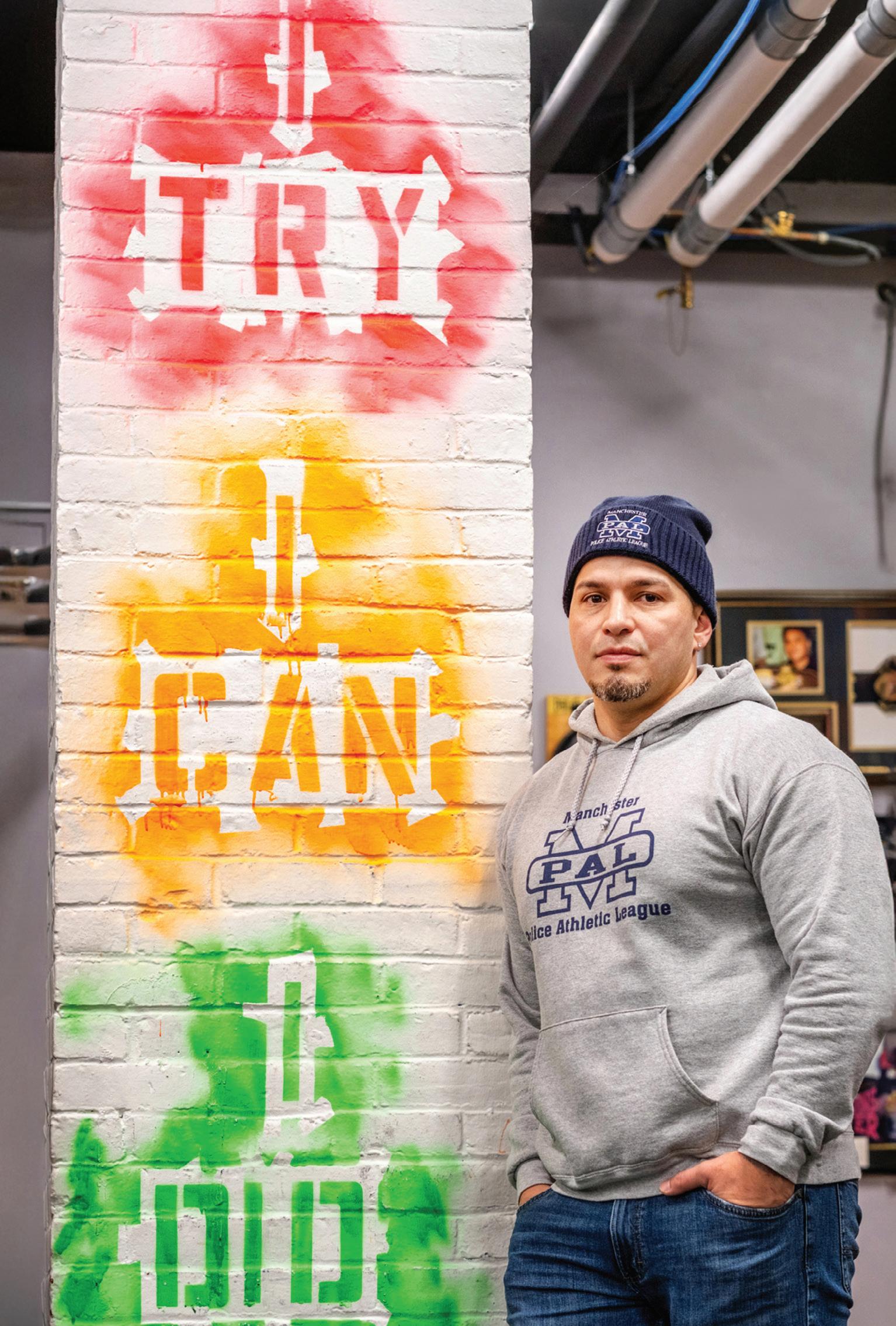
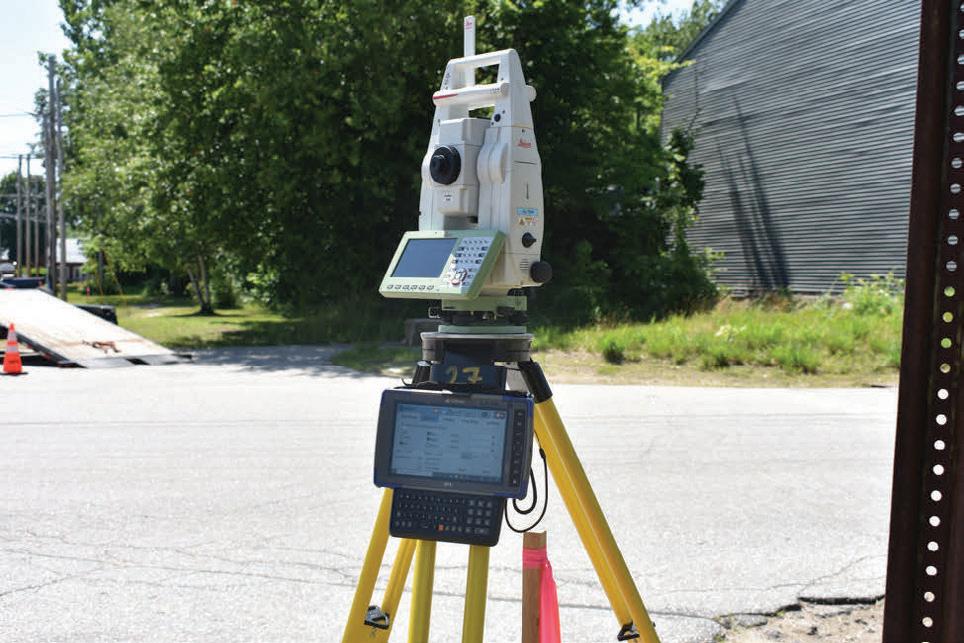



BY CAITLIN ANDREWS PHOTOS BY ROBERT ORTIZ
Saint Anselm College has long offered community services as part of its educational vision for students. For over a year, that mandate has included a more practical education for refugees and immigrants.
The Meelia Center for Community Engagement, a program of Saint Anselm’s, began offering adult education courses for English for speakers of other languages in October 2023 through a partnership with the International Institute of New England, a refugee and immigrant resources organization. The classes are focused on career readiness, college preparation and functional skills like how to fill out forms, make a medical appointment and read grocery prices when shopping.
Demand for the service was immediate and grew as the program expanded its outreach efforts, says Joseph Gilbert, the IINE’s associate director of ESOL. As of late December, the waitlist stood at 200 people despite the addition
of a second class last January.
“We thought we’d be able to expand with the Meelia Center and add some more seats to knock this out,” Gilbert says, referring to the waitlist. “But the opposite happened … we were tapping into a population of people who previously weren’t aware of or looking for services that are now looking for that.”
The rising interest comes as New Hampshire’s demographics change: 86,751 people identified as foreign-born residents in the U.S. Census Bureau’s 2022 American Community Survey, a nearly 50% increase from 2012. About 8% of New Hampshire residents speak a language other than English, with 36% speaking Spanish and 15% of those speaking French. The majority of non-English speakers live in Hillsborough County.
The majority of Meelia Center’s English language learners are Spanish and Ukrainian speakers, but a scattering of Haitians, Congolese and Central and South

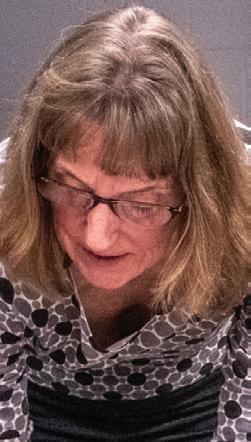
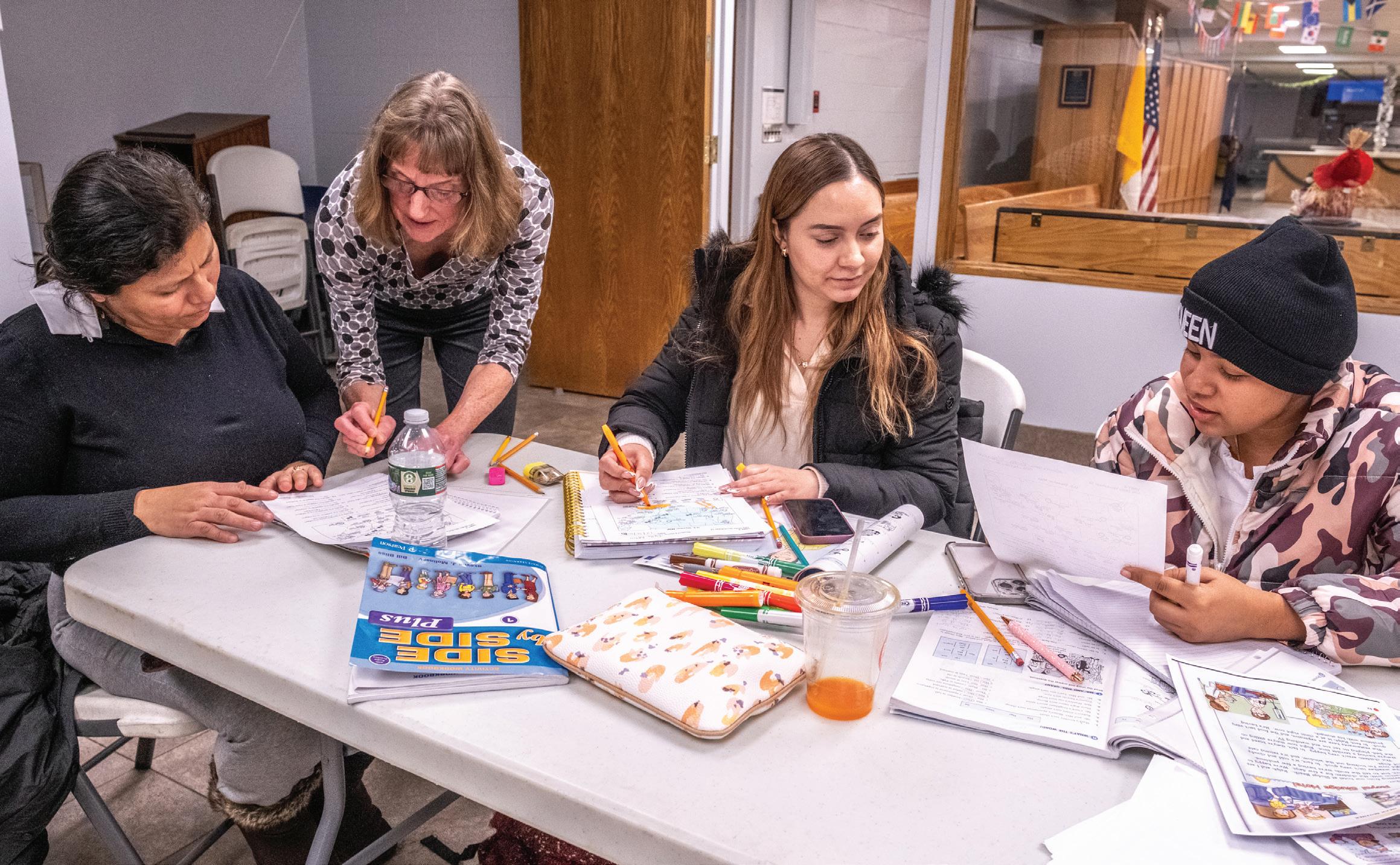
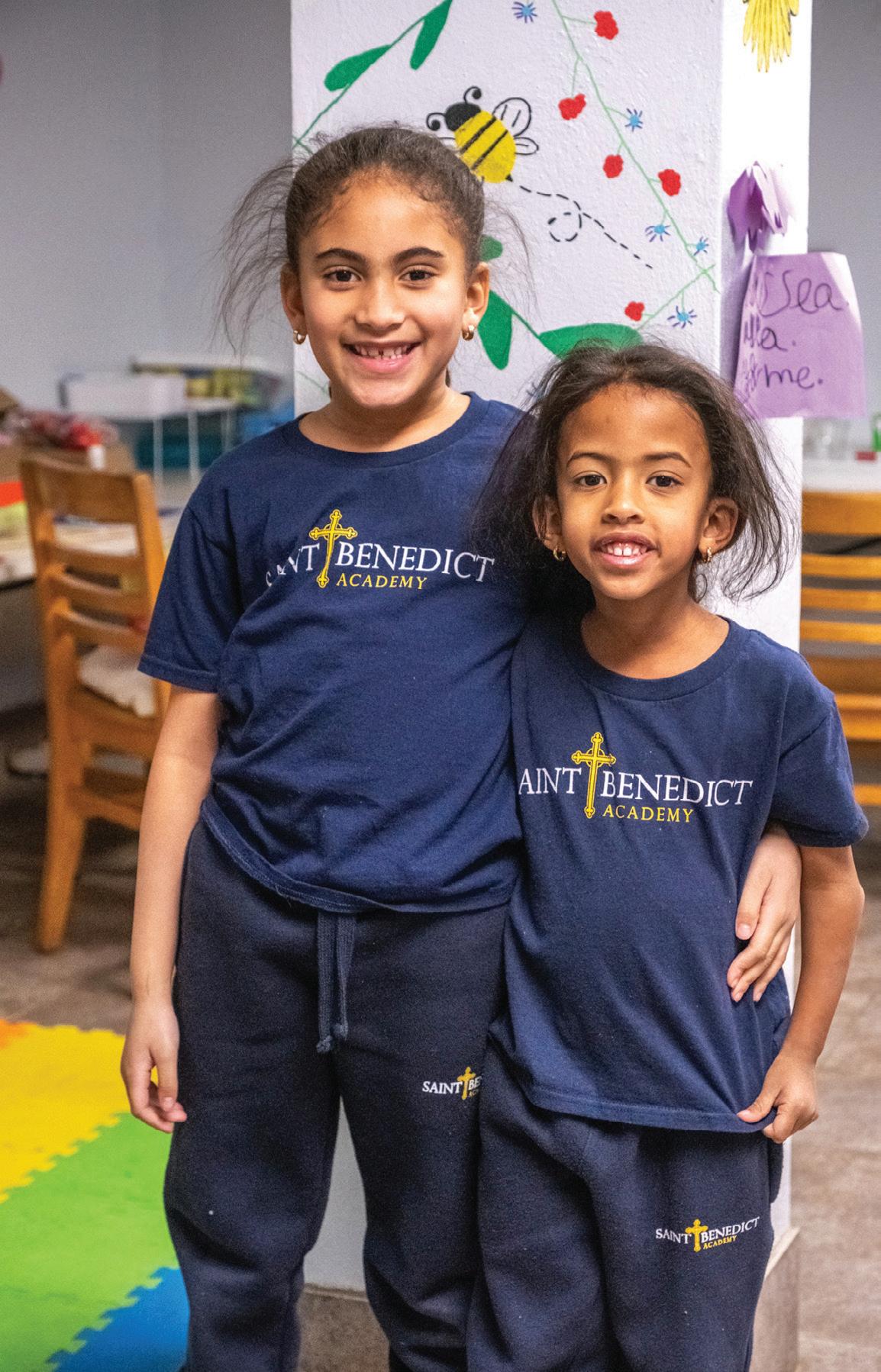
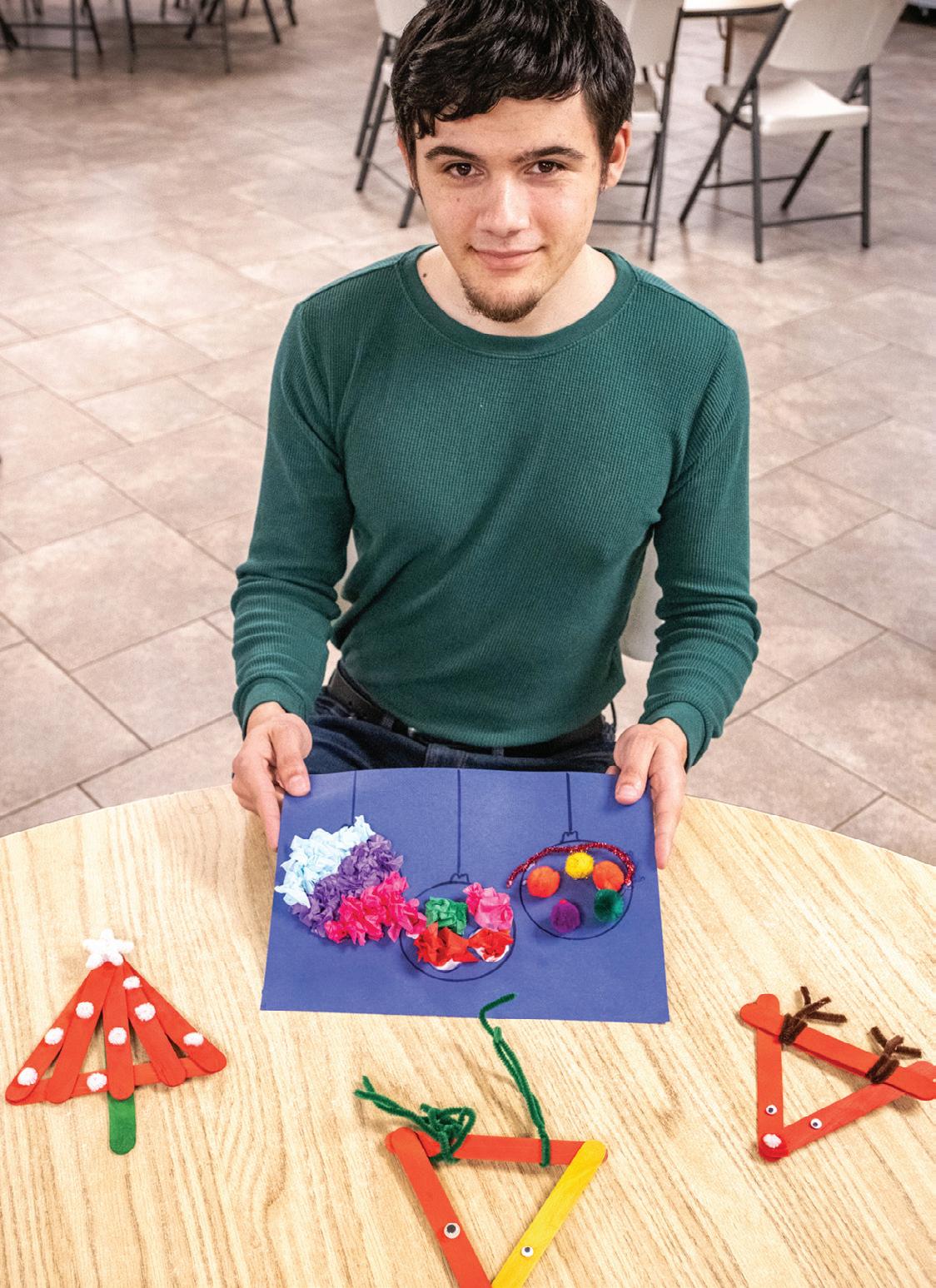
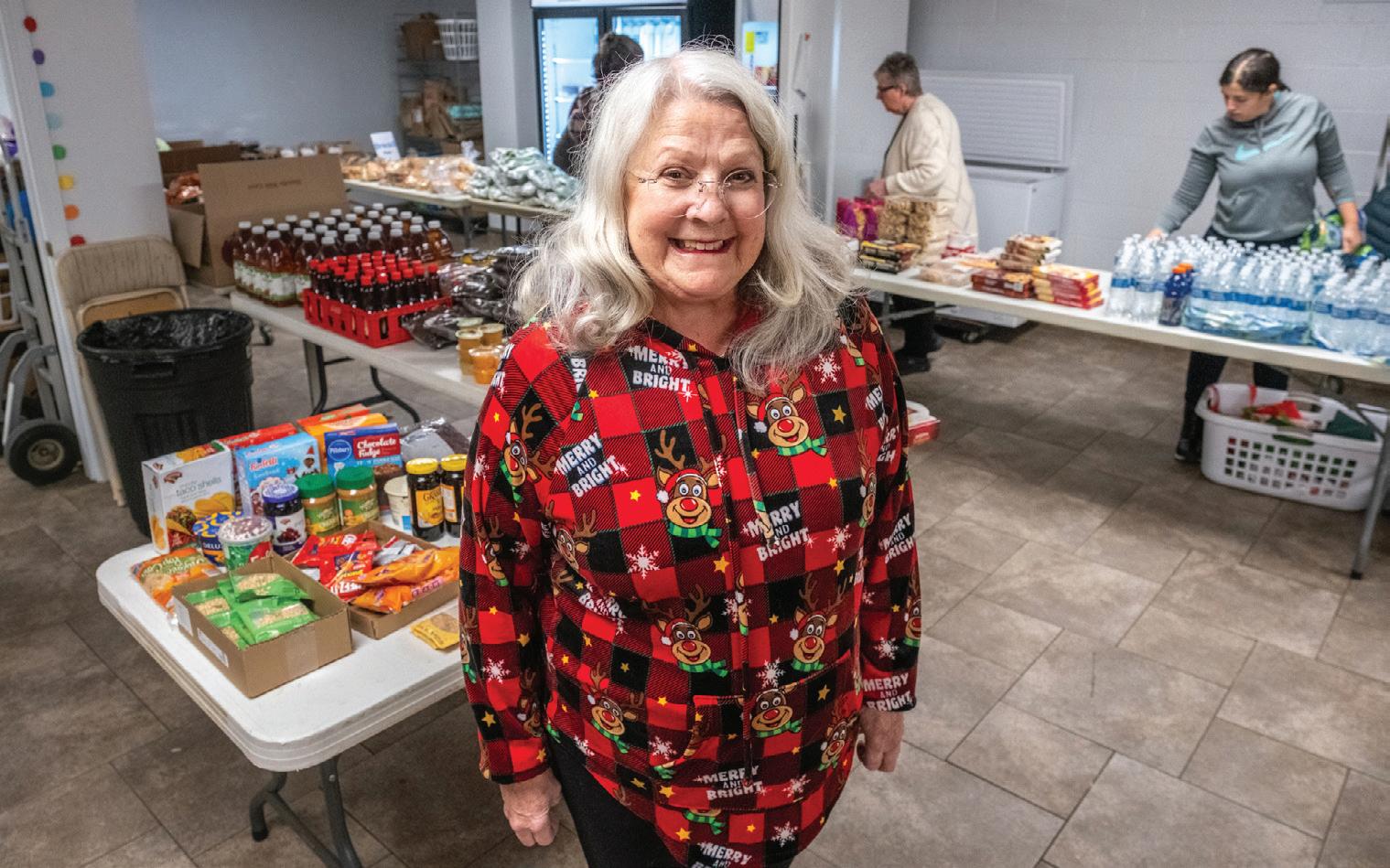
Americans also populate the classes, Gilbert said.
Classes are offered at two levels, depending on a student’s assessed English proficiency. That can pull in people from all walks of life, which creates a challenge for the teachers, Gilbert said.

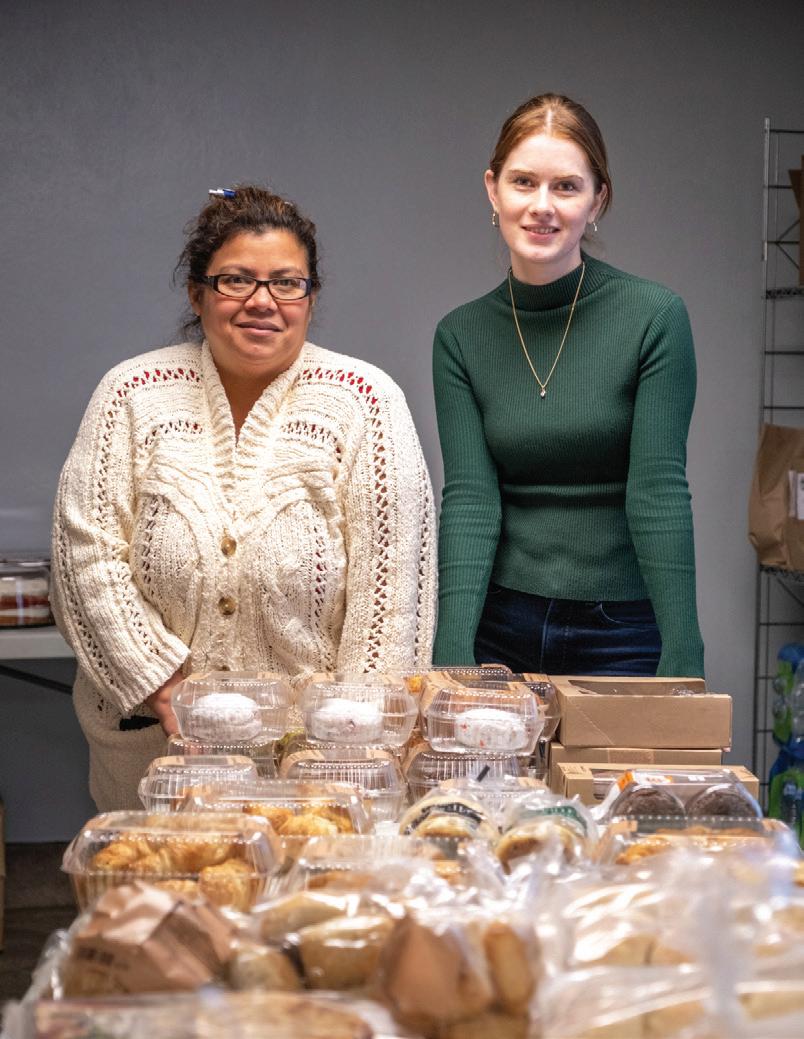
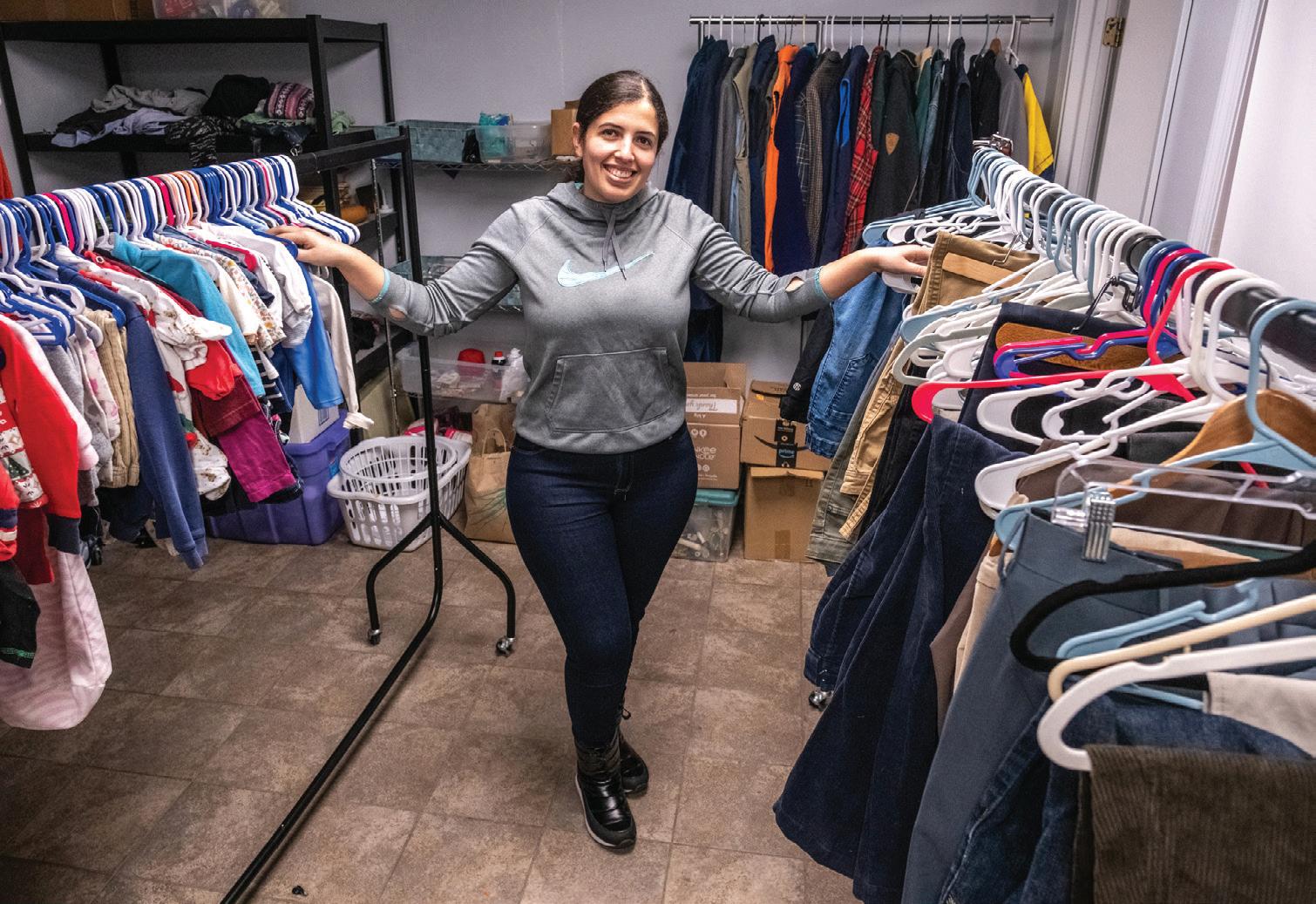
“Students are often at very different places in their educational path,” he said. “Sometimes we get someone who was a doctor in their home country; sometimes we get someone who had a third-grade education. But if they’re in the same ballpark in their English proficiency, they might end up in the same classes and progress differently.”
Gilbert said he knew the need for the program existed based on community outreach, but he could not name a specific reason why demand is high now. He estimated some students who attend an ESOL class and then get a job leave the program rather than continue, but will return when their proficiency hampers them from moving forward. Others are students who were resettled in Manchester — the classes take place at the West Side’s Saint Raphael Parish — and are seeking classes for the first time.
Providing the classes involved a lot of collaboration: The Meelia Center received a grant two years ago to fund the program, said executive director Nicole Lora, but needed the expertise and location to host it. Saint Anselm’s College students, as well as the center’s program specialists, provide child care for ESOL students who would not be able to attend the classes otherwise.
“We know that children will thrive also if their families are supported,” Lora said.
Lora said the center aims to not duplicate services when possible, and expanding available ESOL classes is just one part of the puzzle needed to help refugees and immigrants succeed in a new place. Child care, transportation and other services can be barriers to the services new Americans need to find housing or a job. Not knowing English makes those tasks much harder, she said.
“Being able to speak the language
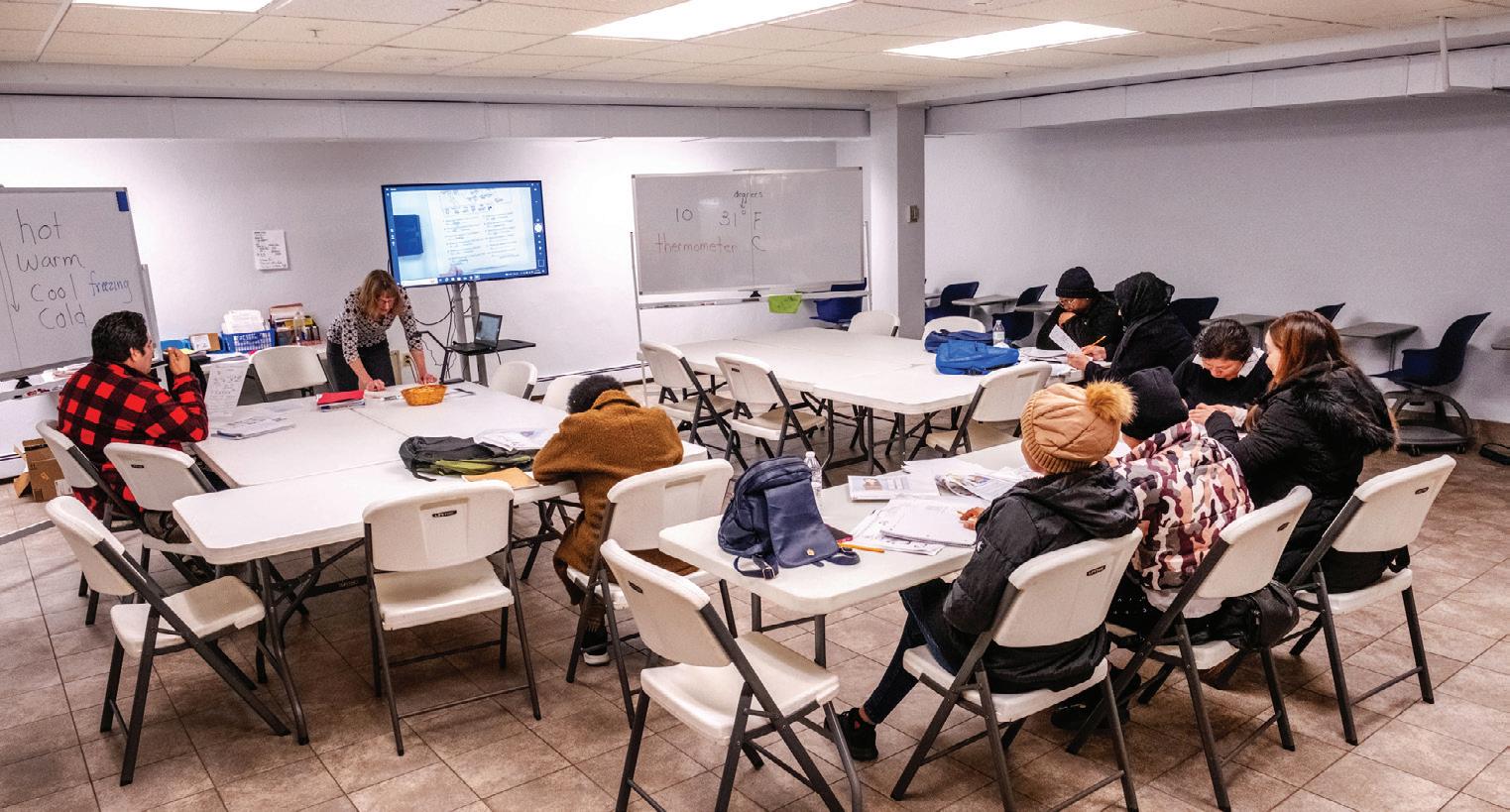
Southern New Hampshire Services
508 Union St., Manchester
Call or text 603-361-2649 or email ena@snhs.org for registration information.
17 Knight St., Concord
Registration form available at www.second-start.org/english-for-speakers-of-other-languages. Inquiries can be sent to Vigdis Dunn, 603-228-1341 ext. 4208.
Various locations
The program information form can be found at iine.org/what-we-do/education/english-for-speakers-of-other-languages-esol/. Call 603-647-1500 for more information.
Registration is by appointment only; contact Anya Vandiver at registration@nashuaalc.org or 603-921-9590, or Julia Stryzhenko at jstryzhenko@nashiaalc.org or 603-689-3539.
NH Adult Education has a list of other English as a Second Language programs that can be found at nhadulted.org/course-catalog.
impacts almost every aspect of your life, like navigating day to day or going to the grocery store,” Lora said. “Or if you have a child at school, not being able to read the report card or understand what they’re learning.”
“We’re not set up to have multilingual spaces; it’s not the norm,” she continued.
The value of learning English is apparent in who shows up to the classes, which are free of charge to the students, Gilbert said. Some students are people in their 70s who never had access to school, or
women who hail from countries where they were not allowed to learn.
He said he hopes to expand those opportunities in the future. Gilbert is part of a coalition working together to promote when and where ESOL classes are available. He hopes to find opportunities to create special workforce training where people can learn English while advancing in a stable career.
“We want to funnel people to things which will improve not just their income but their quality of life,” he said. 603

BYSARAH
Among the top barriers to Granite State business growth is staffing. The 2024 Business Leaders Survey by the Business Industry Association and the Center for Ethics in Society at Saint Anselm College polled 500 business owners, with 75% saying that New Hampshire’s worker shortage was keeping them from expanding their operations.
Since its founding, 603 Diversity has been supported by businesses and nonprofits that know investments in diversity, equity and inclusion pay off. At a time when companies may be struggling to fill roles, DEI practices
ensure that no candidate is overlooked because of their age, disability or identity. Those policies also help to retain staff and give them tools to succeed in their roles and work well with their colleagues.
The adoption of DEI practices can also bring in more customers. Surveys show that 60% to 75% of consumers say a business’s diversity and inclusion reputation is important to purchasing decisions.
DEI: A central part of company culture
In this new Inclusive Workplaces section, 603 Diversity will highlight
how New Hampshire businesses are putting diversity practices to work.
New Hampshire Mutual Bancorp is a shared services organization for a trio of banks — Meredith Village Savings Bank, Merrimack County Savings Bank and the Savings Bank of Walpole — and NH Trust, an investment management firm.
Tamara Richardson, senior vice president of human resources and DEI officer, has been with the company for 29 years, first as part of the Savings Bank of Walpole and then with NH Mutual Bancorp. She said that NH Mutual Bancorp had begun its DEI in 2019.
“Before the George Floyd murder happened, we were already working on it,” Richardson said. “Then, after that tragic injustice occurred, we started focusing our efforts even more on DEI.”
NH Mutual Bancorp has seven A+ Merits, or values, that the company has adopted as part of its culture. She said that they started with those merits in bringing DEI to the forefront.
“We feel that a company that embraces DEI was one that would not only prosper but would be resilient in the face of changes in the years that were coming,” Richardson said. “We felt, and we still feel, that when you ensure that you have diversity, equity and inclusion in your organization, it fosters a work environment where employees can come as who they truly are and feel welcomed coming to the workplace.”
These values encourage all employees to bring ideas to the table and work as a team for the betterment of the whole company.
“Our DEI program has always been fully supported by our senior leaders of the orga-
nization and also our board members,” Richardson said. “DEI is actually an initiative in our strategic plan at the organizations and the NHMB holding company level.”
DEI training is held regularly for all levels of employees, from newcomers to managers to senior leadership and board members. A DEI overview presentation is part of its new employee onboarding process.
“It really set them up with a solid foundation of just what it was, and how our organization supports a culture where everyone can come to work and feel welcomed,” Richardson said.
About three years ago, a DEI Advisory Committee formed comprised of volunteers from different positions and departments across NH Mutual Bancorp’s companies.
“It’s a very robust group,” Richardson said. “We’re very lucky to have such a dedicated group of employees.”
Two employee resource groups have come from the advisory committee’s efforts: one
603 Forward 603forward.org/careers
Big Brothers, Big Sisters bbbsnh.org/be-a-big
CASA of New Hampshire casanh.org/job-opportunities
Community Bridges communitybridgesnh.org/careers
Community College System of NH ccsnh.edu/human-resources/employment-opportunities
Enterprise Bank enterprisebanking.com/about-enterprise/careers
Granite State Independent Living gsil.org/careers
Granite YMCA graniteymca.org/about-us/careers
LNA Health Careers lnahealthcareers.com/career
Make-A-Wish NH wish.org/careers-local
Manchester NAACP naacpmanchesternh.com
McLane Middleton mclane.com/careers
New Hampshire Housing nhhfa.org/about/careers
NH Businesses for Social Responsibility nhbsr.org/careers
NH Charitable Foundation nhcf.org/about-us/careers
NH Mutual Bancorp nhmutual.com/careers
NH PBS nhpbs.org/about/jobs.asp
NH Public Radio nhpr.org/careers
Northeast Delta Dental nedelta.com/about/careers/jobs
TFMoran tfmoran.com/about/tfm-careers
Trend Acupuncture trendacupuncture.com/contact-us
Triangle Credit Union trianglecu.org/about-us/careers
Yankee Publishing Inc. ypi.com
Yankee Publishing is a 100% employee-owned company committed to ensuring everyone feels comfortable bringing their ideas to the table. We share our best stories when all voices are empowered to contribute.

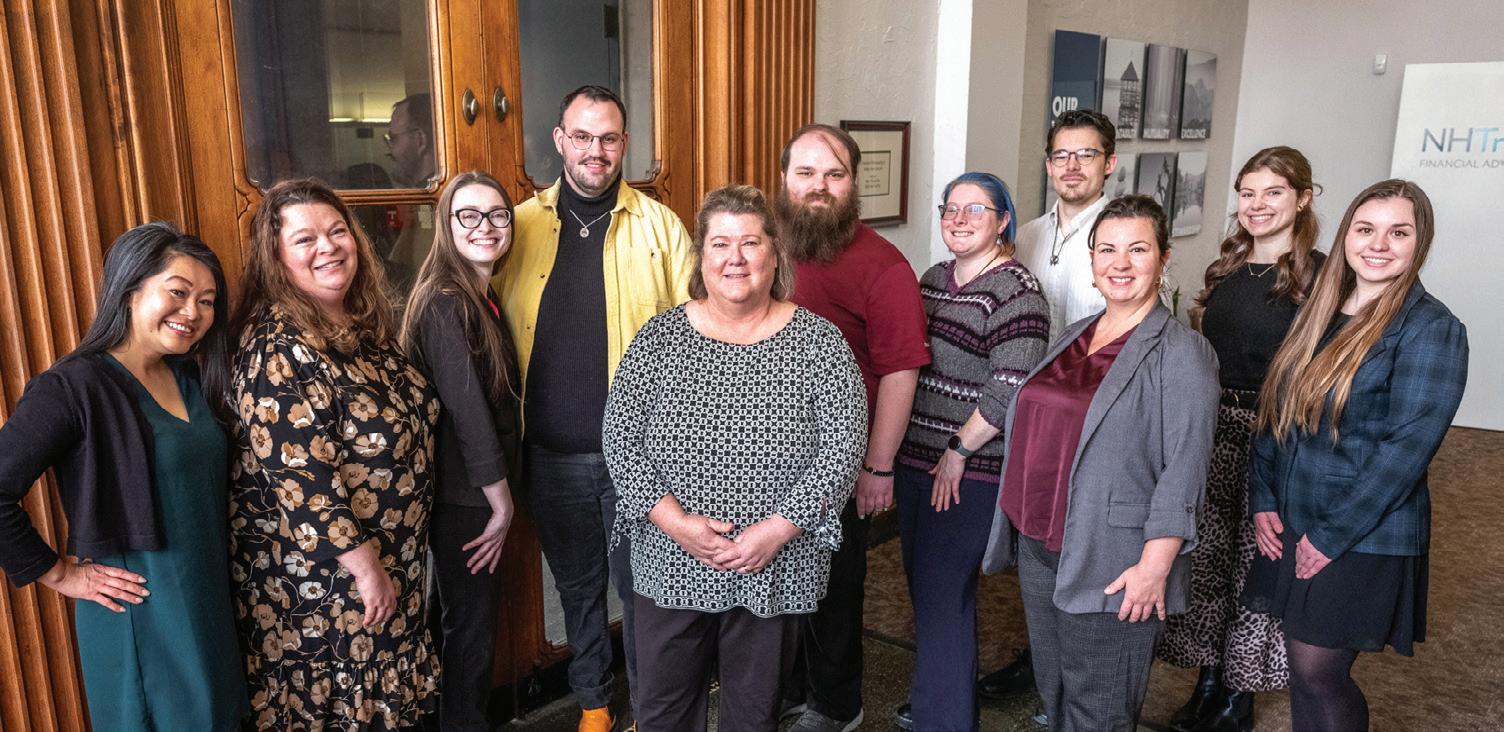


for caregivers and one for mental health and well-being.
“This allows employees within the organization to come to a place where they feel safe and they can get support from one another,” Richardson said. “They’re sharing the same experiences with each other, and so it’s very helpful to them. Those have been very popular.”
The company is planning to add a third group this year.
NH Mutual Bancorp’s companies have started a teller apprenticeship program that’s certified by the New Hampshire Department of Labor. It’s the first apprenticeship program in the state for a bank teller.
Richardson said they consider the apprenticeship part of the DEI efforts as it allows them to get out into the schools and colleges and help attract people from diverse backgrounds to work there.


Richardson herself completed a four-week inclusive workplace training through the Society for Human Resources Management.
“We explored techniques on how to measure an inclusive workplace and how to apply strategies that foster it,” she said. “It was very helpful. A lot of the things were things we were already doing and we already knew about, but it just reinforced what we thought we were doing. It confirmed that we were on the right track to make sure that inclusivity was at the forefront of our DEI program.”
Last year, NH Mutual Bancorp received recognition for its DEI efforts from the Workforce Diversity Coalition. At that point, 1.9% of its employees identified as
Hispanic or Latino, an underrepresented group. By the end of 2024, Richardson said that had risen to 2.4%.
“So not big, but it’s certainly moving in the right direction,” Richardson said.
New Hampshire’s overall state population is comprised of 4.8% Hispanic or Latino residents.
NH Mutual Bancorp does an annual DEI employee survey to measure progress and identify areas of success and improvement.
In the 2024 survey, she said there was an 81% favorability response to “workforce diversity is valued at our organization.”
“I would say that the employee survey is very important. It helps us to see where we are and where we need to go, where we need the extra help,” she said. “We can always strive to be better at including everyone.”
Richardson said that, while there’s been pushback nationally on DEI efforts, what she’s been hearing internally has been the opposite.
“We’ve had a handful of employees who have reached out and said, ‘What’s going to happen here? I love the diversity, equity, and inclusion efforts, and feeling like I belong here,’ ” Richardson said. “There are some employees who are worried we may go in a different direction, and that’s not the case.”
The overall goal is to create a shared sense of belonging for employees so that NH Mutual Bancorp and its companies are where people want to work.
“We really do listen to our employees,” Richardson said. “We recognize that diverse contributions are valued here.”
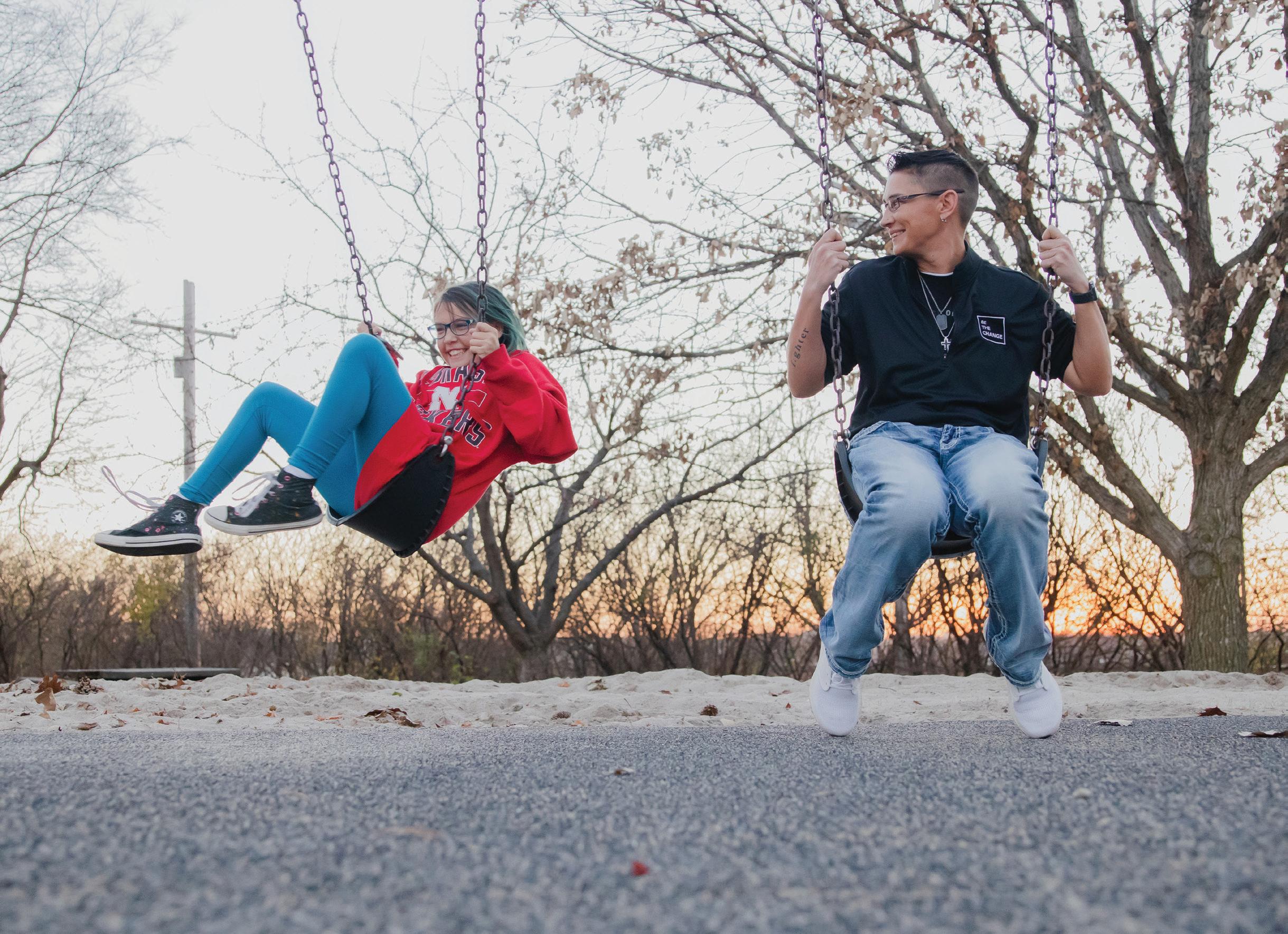
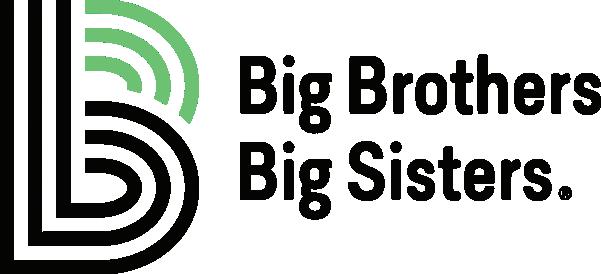
Supporting New Hampshire’s youth through one-toone mentoring relationships that ignite power and promise to help everyone reach their full potential. Big Brothers Big Sisters of New Hampshire is a 501(3)c nonprofit organization that provides youth mentoring services. We have several offices, but we are in most communities — we can interview and match in your community.
A journalistic look at our state of diversity from the reporters at the Granite State News
Collaborative.
A Republican lawmaker appears to have backed away from a proposal that would have required New Hampshire public schools to report students’ immigration status. But if such a proposal returns, advocates say it would almost certainly invite a court challenge.
In December, a proposal to require “public schools to collect and annually report data regarding the immigration status of enrolled students and the number of students enrolled in English language learner programs” was one of hundreds of legislative service requests published on the General Court website. Sen. Bill Gannon, who represents Sandown and has been a lead advocate in the Legislature for limiting the rights of undocumented individuals, was listed as the prime sponsor.
As of Dec. 10, however, the proposal was removed. James Vara, director of the state office that drafts legislation for lawmakers, confirmed that Gannon had withdrawn his bill.
Gannon did not return multiple messages from NHPR asking to discuss his plan, or whether he plans to bring this policy back in another form. He could introduce the legislation as a confidential bill, something only Senators can do. He could also amend another one of his immigration bills to include the reporting requirement.
The scope of Gannon’s initial proposal is unclear, because the full text of the bill had not been made public. Unknown is whether he intended to target students who are in the country legally, such as refugees and immigrant children of U.S. citizens, or only undocumented students. Also unclear is what Gannon wanted to do with the information and whether he was aware that using immigration status to deny undocumented students a public education is prohibited.

These articles are being shared by partners in The Granite State News Collaborative. For more information, visit collaborativenh.org.
Gannon’s draft legislation would have also required school districts to report the number of students enrolled in English language learner programs. The state already collects that data.
According to the Department of Education, there are nearly 5,500 students enrolled in “limited English proficiency” programs and nearly 1,600 being monitored for potential services. More than half of those 7,100 students are attending school in Manchester and Nashua. That count does not indicate how many undocumented students may be in those programs.
Should such a bill re-emerge and become law, New Hampshire would likely face a court fight, said Nicholas Espíritu, the law center’s deputy legal director with the National Immigration Law Center. Espíritu pointed to a 1982 U.S. Supreme Court decision.
While the ruling did not explicitly prohibit schools from asking about a student’s immigration status, it forbids states from doing anything that would interfere with a student’s access to that public education.
— ANNMARIE TIMMINS, NHPR
New Hampshire Indonesian Community Support, a nonprofit based in Dover that represents immigrants in the state, is among the immigrants’ rights organizations suing President Donald Trump and other government agencies over an executive order signed Jan. 20 that would end birthright citizenship for the children of some immigrants, arguing it’s unconstitutional.
Trump’s order — one of several he signed in the first hours of his second term — directs federal agencies to not issue citizenship documents to babies born to undocumented immigrants or parents with lawful but temporary status, starting Feb. 19.
More than a century of legal precedence has upheld that the 14th Amendment to the U.S. Constitution grants unrestricted citizenship to every child born in the United States.
The American Civil Liberties Union of New Hampshire, as well as the group’s affiliates in Maine and Massachusetts, are representing the plaintiffs in the lawsuit filed late Jan. 20 in the New Hampshire District Court. They argue that the executive order
would cut them off from accessing essential social services and essentially render them stateless.
“Birthright citizenship is guaranteed in our Constitution and is absolutely central to what America stands for,” said Cody Wofsy, deputy director of the ACLU’s Immigrants’ Rights Project and lead attorney in this case. “Denying citizenship to babies born on U.S. soil is illegal, profoundly cruel, and contrary to our values as a country.”
Trump’s order focuses on one clause of the 14th Amendment in particular that says that citizenship applies to babies born in the U.S. and “subject to the jurisdiction” of the U.S.
Until now, that phrase has been interpreted by Congress as applying to all babies born in the United States, with some exceptions for children born in the U.S. to foreign diplomats and a few other cases.
— LAU GUZMAN, NHPR
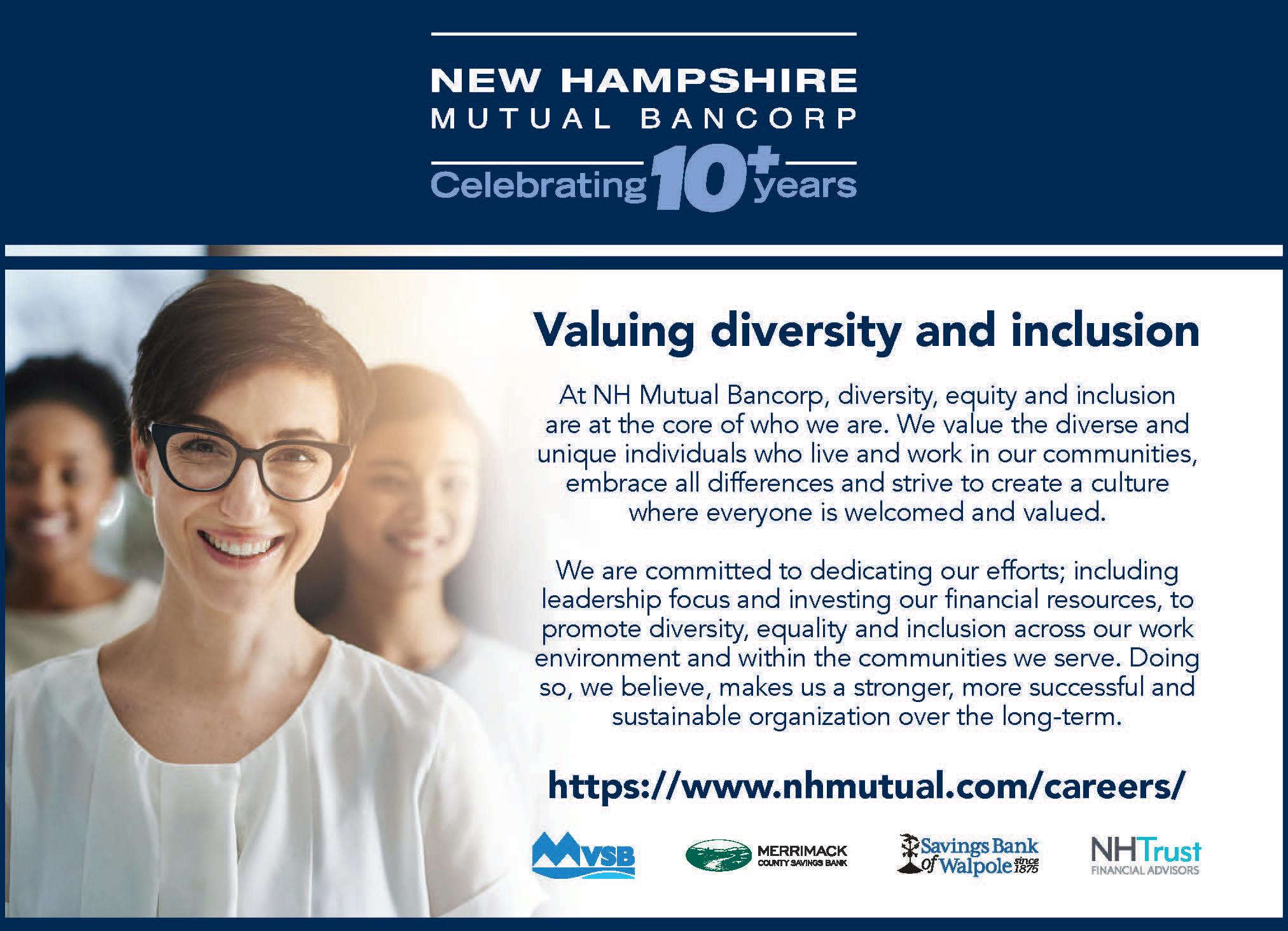
The Library of Congress has awarded a nearly $100,000 grant to Keene State College for a project to advance teaching disability history in rural communities.
The college and its partners will use the grant to host a conference in 2025 that brings together teachers, historians and advocates from across the U.S. to discuss ways to incorporate disability history into K-12 curricula, according to a news release from Keene State. The project will also involve local teachers to create a series of guides to conduct research on disability history in middle- and high-school classrooms. Topics will feature the experiences of people with disabilities, including rural people in New Hampshire, Iowa and Texas.
The guides will help teachers support students’ investigation of local stories of disability, the release said, including individuals and institutions in students’ communities. Students will be directed on how to search and use primary sources from the collections of the Library of Congress and other national and local archives and libraries.
Graham Warder, chair of the Keene State History Department, will direct the project. Warder served as lead historian in developing the nation’s most comprehensive K-12 disability history curriculum: Reform to Equal Rights, published online by the Emerging America program of the Collaborative for Educational Services, the release says.
The principal author of the curriculum, Rich Cairn from Emerging America, will collaborate with Keene State on the new project. Other Keene State faculty who will assist with the work are Lance Neeper, Nancy Peck and John Sturtz, all members of the education department, and Rodney Obien, head of special collections and archives for Keene State’s Mason Library.
The grant from the Library of Congress Teaching with Primary Sources (TPS) program provides one year of funding, with the possibility of two additional one-year grants.
Anyone interested in learning more about the project, joining the interest group or participating in the July conference can contact Graham Warder at gwarder@keene. edu, or Rich Cairn at rcairn@collaborative.org.
— JAMES RINKER, KEENE SENTINEL
As a retired Marine Corps troop commander, Loudon State Rep. Mike Moffett has seen veterans run into trouble with the law — something, he argues, is often directly related to their military service.
That’s why he sponsored a bill in the Legislature this year to establish a “veterans court” that will allow judges to prioritize care and recovery for veterans who’ve been convicted of a crime, rather than imprisonment.
“Some of the issues that veterans have, especially if they’ve been in harm’s way, contribute to their troubles when they’re back in a civilian venue,” said Moffett, who served 28 years with the Marines. “If someone is impacted physically or emotionally due to their service to their country, we want to factor that in when sentencing them for certain crimes.”
By “troubles,” Moffett said, he’s referring to substance abuse disorders and other struggles associated with post-traumatic stress disorder. According to the U.S. Department of Veterans Affairs, more than half of veterans who’ve come into contact with the criminal justice system have mental health problems or substance abuse disorders.
As of 2022, about 88,300 veterans lived in New Hampshire. Currently, the Department of Corrections has 171 incarcerated individuals who report having served in the military, according to spokesperson Jane Graham.
Similar to the state’s drug courts and mental health courts, this one isn’t necessarily a separate “court,” according to Windham Rep. Bob Lynn, the former chief justice of the New Hampshire Supreme Court, who co-sponsored the bill. Rather, it serves as a distinct track or docket within existing court systems. Gov. Chris Sununu signed the bill in August, and it’ll be implemented starting in July 2025.
Lynn said the upfront costs will be covered by saving money in the long run. However, Helen Hanks, the commissioner of the state’s Department of Corrections, said she doesn’t currently have the staffing to maintain her department’s role in this program.
During her budget requests for 2026-27, she said the department has seen success from drug courts and mental health courts in reducing the number of people in state prison facilities. Those “specialty courts,” as she called them, can overload the parole system.
Veterans who use this track are required to check in with parole officers, submit to drug testing and complete court-ordered treatments. Moffett emphasized that this bill doesn’t excuse or change any verdicts but said, at judges’ discretion, the state can impose a different kind of sentencing for veterans convicted of misdemeanors and felonies.
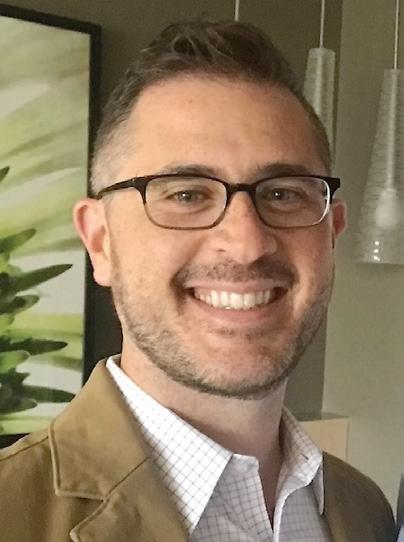
Yours in Health, The Care You Deserve
Empower Medical, based in New Hampshire, is Dr. Bobby Kelly’s virtual telemedicine company that enthusiastically welcomes new patients seeking compassionate care in a variety of areas, specializing in LGBTQ+ medicine and sexual health.
Bobby Kelly, MD, MPH, FAAFP empowermedpllc@gmail.com www.empowermedi.com 978-242-7799
Sanborn Solutions is your go-to source for LGBTQ+ diversity and inclusion support. Through training and consulting, we can help your organization enhance its LGBTQ+ cultural competency and best practices.
Sanborn Diversity Training Solutions www.sanbornsolutionsllc.com (603) 434-0068

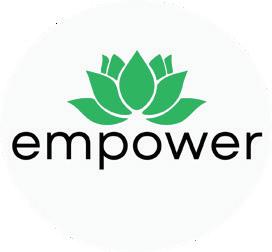
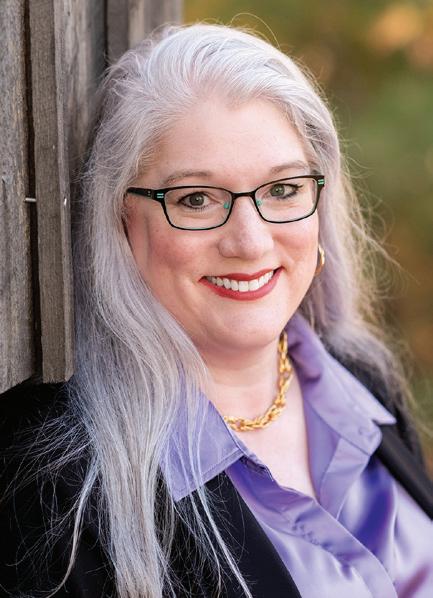
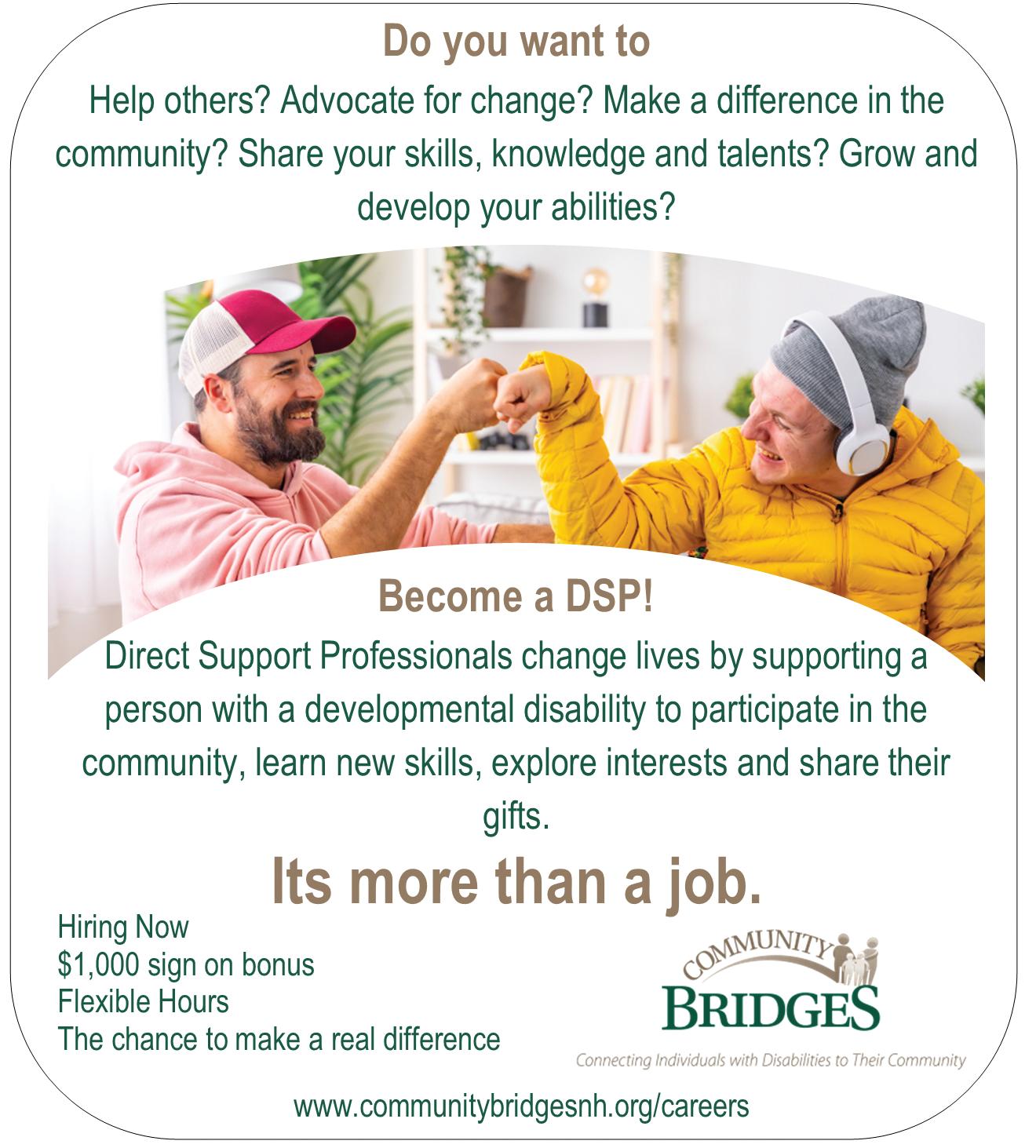
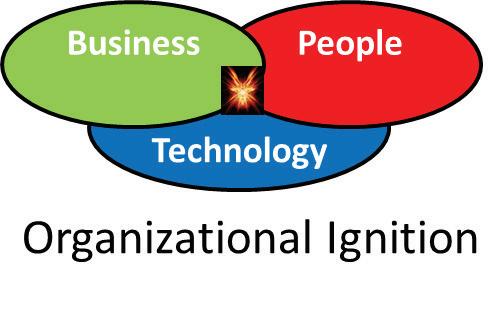
Organizational Ignition helps organizations reach and sustain their ignition point through the integration and alignment of business processes, people and technology. Work with senior management to implement efforts that leverage strengths, eliminate weaknesses, capitalize on opportunities and minimize threats.
Organizational Ignition, LLC www.organizationalignition.com (603) 540-3988
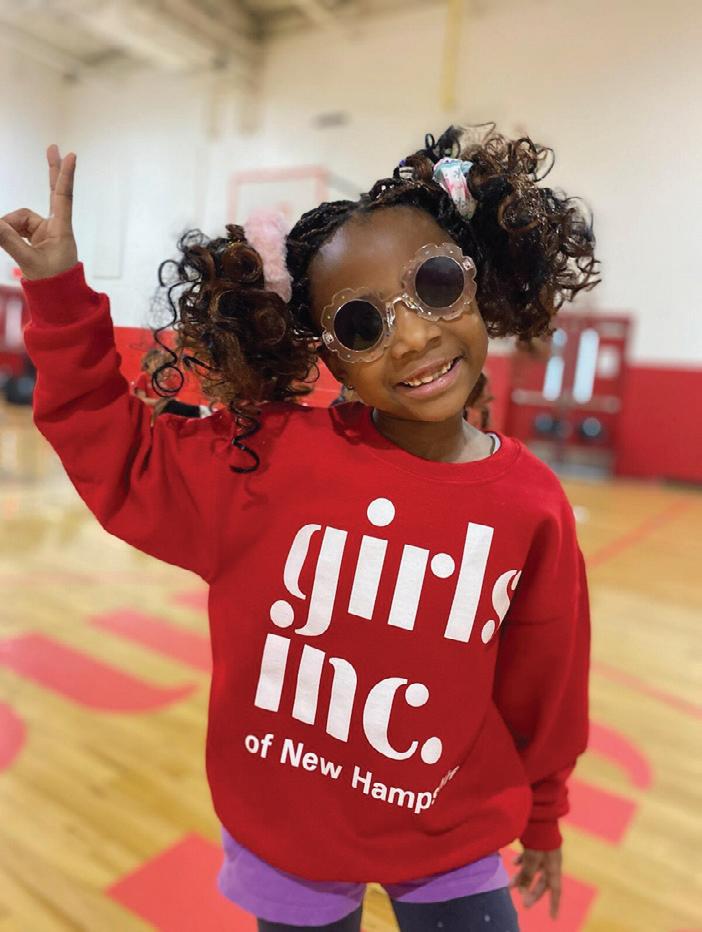

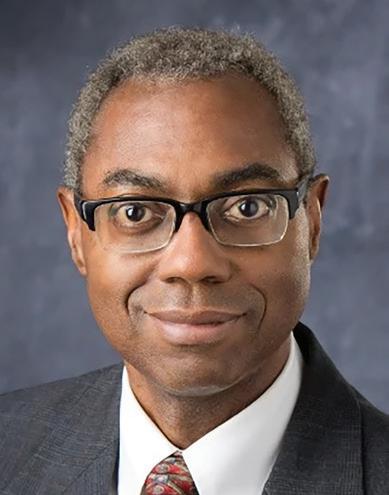
BY JAMES MCKIM
The year 2024 was one of growth, inclusivity and community engagement across various sectors in the Granite State. Many of the stories you have read in this magazine are evidence of that.
As we enter 2025, these initiatives provide a foundation for continued growth and inclusivity.
However, there are challenges to this growth and inclusivity, both at the interpersonal level and the societal level. At the interpersonal level, we must understand the unconscious biases that keep us from including people equitably. These biases often stem from unconscious attitudes and stereotypes that influence decision-making and behavior. Here are the most common:
• Gender bias — Favoring one gender over another or attaching stereotypes to gender expressions can lead to unequal opportunities in hiring, promotions and pay.
• Racial bias — Assumptions based on race or ethnicity can affect hiring practices, performance evaluations and workplace dynamics, reducing diversity and inclusion.
• Affinity bias — Favoring individuals with similar backgrounds, interests or experiences can hinder diversity by excluding those with different perspectives.
• Confirmation bias — Seeking information that aligns with existing beliefs can prevent openness to new ideas or diverse viewpoints, limiting collaboration and innovation.
• Ageism — Discriminating against individuals based on age can exclude older or younger workers from opportunities, perpetuating stereotypes.
• Beauty bias — Judging individuals based on physical appearance can lead to unfair treatment in hiring or promotions.
• Conformity bias (groupthink) — Adopting majority opinions without independent thought can suppress diverse perspectives and stifle creativity.
• Attribution bias — Judging others’ actions based on incomplete information or stereotypes can result in unfair assessments of their abilities or intentions.
• Name bias — Making assumptions about individuals based on their names can disadvantage those from certain cultural or ethnic backgrounds.
• Halo/horn effect — Allowing one positive (halo) or negative (horn) trait to overshadow other characteristics can lead to biased evaluations.
At the societal level, we seem to have moved into a time when decency and respect seem to be under systematic assault through efforts at the federal level such as Project 2025 and Agenda 47, and at the state level by legislation that seeks to exclude or curtail the rights of those not in the majority.
Why is this assault taking place? At the federal level, Project 2025 is designed to counter perceived liberal influence. Heritage Foundation president Kevin Roberts argues that “cultural Marxism” has infiltrated American institutions, necessitating a conservative response. That conservative response includes dismantling the structures that advance the causes of inclusion and equality.
At the state level, legislation has been put forth that threatens the freedom and dignity of those who are not melanin-challenged, cis-gender males. This seems to stem from a perceived fear of the other and a threat to traditional values such as gender norms and religious or personal beliefs.
For example, legislation has been proposed that would roll back anti-discrimination protections for transgender people that were passed in 2018. Legislation has been proposed that would impact how discrimination is addressed in educational settings.
These efforts seem to follow what Yuval Noah Harari in his recent book “Nexus: A Brief History of Information Networks from the Stone Age to AI” calls the “populist credo.” In this populist credo, there is the belief that “the people” is not a collection of
flesh-and-blood individuals with various interests and opinions, but rather a unified body that possesses a single will — “the will of the people.” My way or the highway.
Not a very inclusive or equitable philosophy in this increasingly diverse state.
Let me be clear that the challenges to increasing inclusion and equity are not only from those on the right of the political spectrum. Those on the left tend to over-emphasize diversity, which alienates other voters and is perceived as divisive. They pursue ideological purity — prioritizing ideological consistency over pragmatic solutions in ways that seem not to include those in the majority. Thus, the backlash against affirmative action and DEI.
So, how do we all ensure that our biases and this assault on decency and respect do not derail the progress our state has made?
First, we must ask ourselves “What are our values?” Do we believe in the “Live Free or Die” state motto? Do we believe in community — that we should be responsible not only for ourselves but also for helping those around us reach their highest potential? Do we believe in integrity and civility?
Then, we must each decide how to proceed in the coming year. Will we support legislation that prescribes how people should act? Will we support legislation that denies assistance to those in need? Will we support officials (and those in authority) who lie and call people names? Or will we stand up in private and in public for those not like us demanding dignity and respect for all?
By embracing our changing demographics and fostering understanding across all sectors of society, we can build a Granite State that is more vibrant and interconnected for all its residents. 603

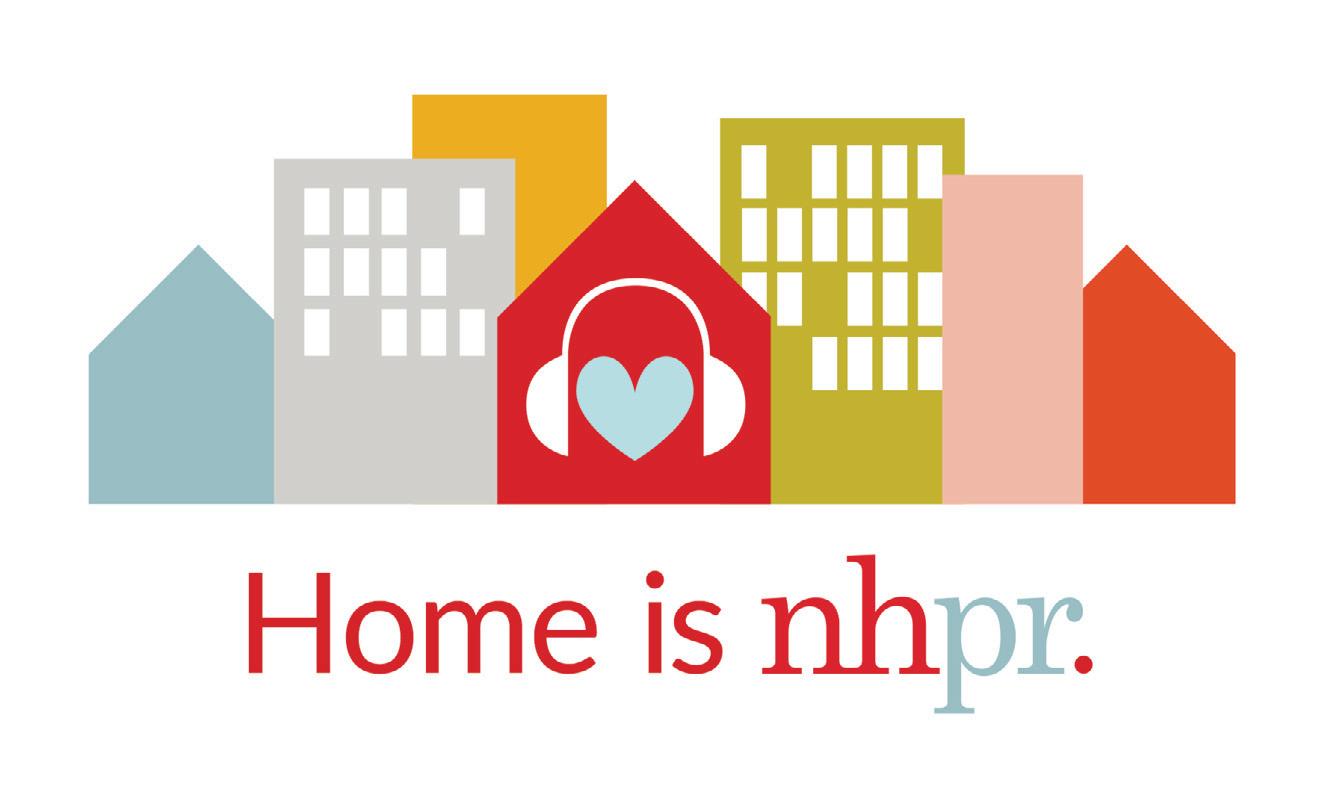

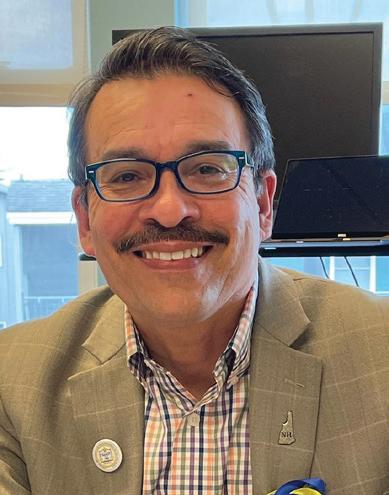
Ido not have a crystal ball to tell what will happen over the coming years. None of us do. But we can speculate based on several factors.
• We are divided as a nation, more than at any time most of us can remember. Fact: We have traversed many divisions over our history and somehow found ways to move on. In many ways, our current divisions mirror those old divisions dressed in new clothes.
• Bias against race, culture, poverty, religion, gender identity, sexual orientation and disability have been part of our landscape for far too long. In particular, bias and grievances against racial minorities (American Blacks mostly) and the poor are fully ingrained into the American psyche. So much so that many do not recognize this as a fault line or see it as one that needs to be addressed or corrected. While a nation of mostly immigrants (Native Americans/Indigenous Peoples being the exception), it is sad to note how we raged against every immigrant group that has graced the shores of the newly formed United States, be they Irish, Italian, German, Eastern European, Chinese or Japanese. Today that rage continues unabated against Blacks, Latinos, Asians, Muslims, Jews and the LGBTQ+ community. All peoples who have been integral to what America is ... the most successful nation on many fronts, but particularly within the economic and technological spheres.
• As in the past, our politics and politicians continue to stoke these divisions for their own narrow purposes or for something deeper and darker such as white nationalism/supremacy and/or repression of the poor, communities of color and religious minorities.
• Social media has allowed every racist, bigot and intolerant individual to express their views, lie and try to recreate history based on their distorted and narrow perception of reality. Even to the point of poisoning our political
discourse and those who represent us.
• According to FBI and U.S. Department of Justice reports, between 2016 and 2019 hate crimes increased by 20%, and between 2014 and 2022, by just over 100%. The U.S. Department of Justice reports that the 2023 numbers are slightly higher over 2022 and that the bulk of them were in the categories of race and ethnicity (52.5%), religion (22.5%) and sexual orientation (18.4%). Things are not expected to change soon. The divisions are too wide and, most importantly, many do not respect the contributions we all bring to make the whole (nation) better. Instead, many focus on skin color and cultural, religious and gender differences that make us unique but that scare others, even though such differences have always brought strength to the nation.
All of this leads me to believe that we better be on our toes as we enter another difficult period with leaders who do not care about our divisions and others who purposely stoke divisions. We will continue to struggle with difficult relations between Americans who believe in inclusiveness and tolerance and those who do not because of some unproven, ghost threat whipped up in their minds.
New Hampshire is not devoid of acts of racism and hate. Most recently, many have supported Mamadou Dembele, a banking professional who was attacked in Portsmouth in November 2023. His case was prominent because he would not let what happened to him be swept under the carpet, which could have easily happened had it not been for his courage and collective collaboration. His was the exception; I suspect that many cases go unreported to the detriment of and ability to deal with this issue more openly and appropriately. Those who get away with such acts only add to the belief that the law and public are on their side or are incapable of dealing with such matters.
What we must keep in mind is the following:
• Communities of color continue to grow in New Hampshire, and we are here to stay.
• We are building supportive organizations and coalitions that will benefit all of New Hampshire. Some include Black Lives Matter, NAACP, Business Alliance for People of Color, NH Center for Justice and Equity, the Black Heritage Trail and many others.
• The state is a willing partner that looks to work to protect our communities. In fact, it has a political, moral and social obligation to do so. If you experience an incident of bias or a violent attack based on racism, religious difference, sexual orientation, gender identity or disability, I encourage you to report it to your local authorities and to the state Attorney General’s Office. Additionally, organizations like the NH Center for Justice and Equity, your local NAACP (Portsmouth, Manchester, Nashua), and the American Civil Liberties Union (ACLU) are resources.
I wish to be wrong that we will continue to see increases in incidents of hate based on our racial, religious, cultural, gender identity, sexual orientation and disability identifiers, but given where we are as a nation, I do not see it being otherwise. If we build coalitions, report these incidents, and work with state and local authorities when these incidents occur, we will make progress. Justice rendered in a timely and appropriate way will send the message that we all belong and are here to make New Hampshire better. Stay vigilant my friends. Stay vigilant. 603

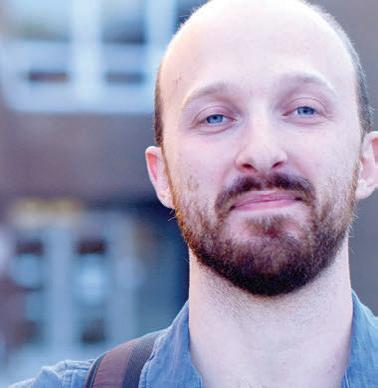

TUESDAYS 9 PM STREAM ONLINE

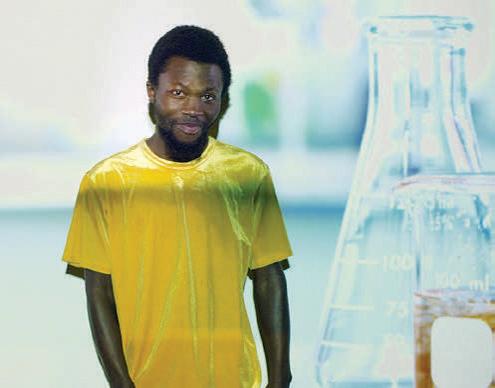
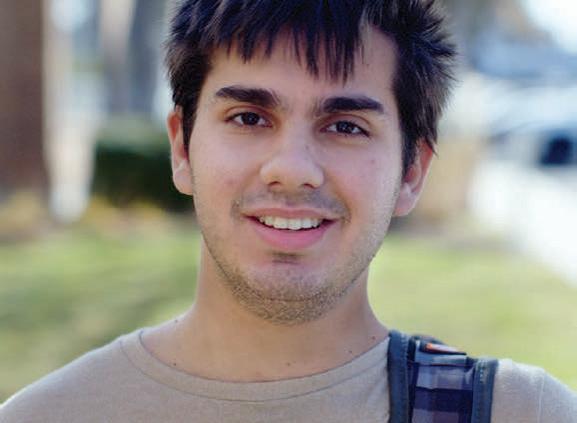
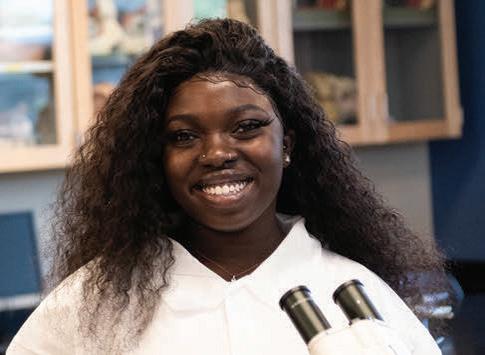

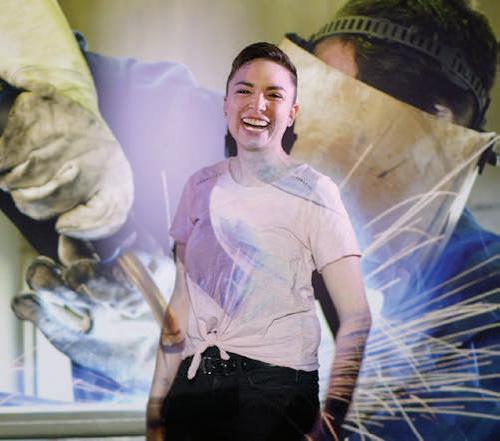
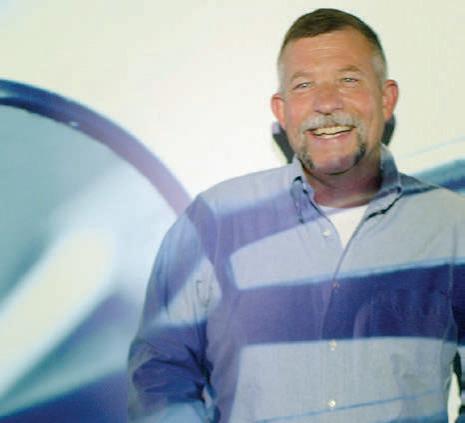

With 12 locations across the state, New Hampshire’s community colleges are committed to helping our students thrive.
CCSNH.edu
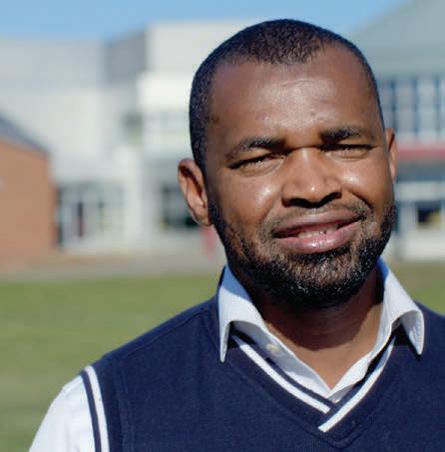
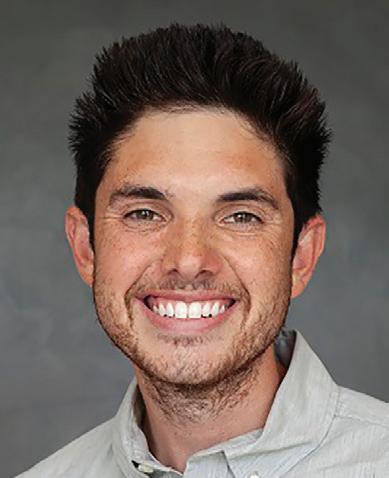
BY ALBERTO RAMOS
We should replace the term “cultural competence” with “cultural humility.” Cultural competence is a term frequently used in diversity, equity and inclusion training, but it is inherently flawed.
At the IDEA Center at Plymouth State University, where I serve as director, we’ve already made an effort to avoid using cultural competence in our language. I feel strongly about this, and I’ll tell you why.
Cultural competence is generally meant to signify that someone has obtained enough knowledge about a culture to respectfully navigate its myriad idiosyncrasies and interact with people from that culture. It’s like saying you’ve earned a driver’s license, but the car is North African Bedouin culture, for example. The implication is you can now drive their car, which is as problematic as it sounds. Essentially, it promotes the idea that when one eventually arrives at a certain level of knowledge, personal growth and accountability are no longer needed.
Cultural humility, on the other hand, promotes the idea that the more we learn about another person’s experience, the humbler we become. It’s a concept that embraces lifelong learning and seeks to avoid any misplaced confidence or false sense of superiority. The more we learn about someone else’s culture, we might begin to recognize that we still have a lot more to learn.
I can speak from personal experience. Several years ago, after graduating from college, I had the opportunity to live in Montevideo, Uruguay, for a full year as a student leader with a nonprofit organization. Uruguayan culture is very different from American culture, and while I identify as Latino, I am still very much an American, having grown up in the United States.
That said, this was not my first time in Uruguay. Before I had the opportunity to volunteer with this nonprofit organization fulltime, I had the opportunity to live and work for this same organization for six weeks during one of my summers in college. During that experience, my entire team was in the cultural “honeymoon” phase. The Uruguayans loved us, and we loved them. Everyone in our organizations got along well, and we had no issues working together.
When I returned a year later for a full-time student leadership program, the story was completely different. I came back with the expectation that I had a significant amount of knowledge to provide the Uruguayans about how to run their organization. I also thought that, because I had traveled to the country before, I was an expert on their culture. I also had a bachelor’s degree while most of them were still working toward theirs. I had been a leader in my organization in the U.S., so I assumed my leadership skills would translate seamlessly into the organization in Uruguay.
Unfortunately, having a bachelor’s degree and visiting the country for a summer didn’t make me an expert on Uruguayan leadership styles. To Uruguayans, my leadership skills were viewed as authoritarian and not collaborative. They had expected us to come to serve and partner with them in their work.
We also viewed time very differently from one another. As Americans, we were used to scheduling our days full of meetings for 30 minutes, maybe up to one hour. I had been used to scheduling four to five meetings a day. In Uruguay, if you plan to meet with someone, there is a good chance that they are the only person you will be meeting with that day. If you cut a meeting short to get to another meeting, that would be considered rude.
Uruguay is generally a people-oriented culture, while the United States is generally more of a time-oriented culture. I had heard about people-oriented cultures versus time-oriented cultures during an Intercultural Communication class in college. I honestly thought that people-oriented cultures sounded much nicer than time-oriented cultures, but I also harbored the biased notion that countries with time-oriented cultures were superior.
When I experienced living in a people-oriented culture firsthand, however, my task-driven brain was challenged tremendously because I felt like I couldn’t get anything done. Ultimately, I learned it’s not about which culture is better than another, but it is about appreciating and respecting another’s culture without judgment.
The IDEA Center at Plymouth State University recently hosted a wonderful week of programming in honor of International Education Week to promote this idea of cultural humility. We started the week off with our annual Parade of Flags. This event allows students, faculty and staff to proudly display the flags of their home countries while parading around our campus.
Next, we featured a study abroad film festival hosted by our
Global Education Office. This new office on campus promotes study-abroad opportunities for PSU students in partnership with the University of New Hampshire.
During the week, we hosted our largest event of the year, PSU’s third annual Multicultural Fair, which represented nearly 25 different cultures. The college community showcases their cultures. Many people provide food, give presentations and display significant items that are meaningful to them. Attendees often remark about how they weren’t aware of how many different cultures exist on our campus.
One of our political science faculty members, Dr. Filiz Ruhm, gave a presentation about her home country, Turkey. Dr. Ruhm’s presentation was eye-opening and engaging. That same day, we hosted a celebration for our many international employees at PSU. The week ended with a Circassian dinner hosted by a student of Circassian descent and one of our IDEA ambassadors, Laylah Tsay, who is graduating with an Adventure Education degree in May 2025. The Circassian people are an indigenous peoples group from Russia who were displaced during the Circassian Genocide in the 19th century.
These activities serve to introduce our students to intercultural perspectives and produce more graduates who will be working cross-culturally, with the mentality of our university motto “Ut Prosim,” That I May Serve.
To truly prepare our students and community for an increasingly interconnected and diverse world, we must move beyond the static concept of cultural competence. Cultural humility calls us to engage in a lifelong journey of learning, unlearning and co-creation with others — one that resists assumptions of expertise and embraces vulnerability and growth. By adopting this mindset, our campus reaffirms that respect for other cultures is not an endpoint but an enduring commitment. 603



Area culture contributors Positive Street Art are continuing their legacy of bringing a variety of exciting events to southern New Hampshire. Their spring exhibitions are to include a presentation of a private collection of art and culture keeping a prominent local Armenian family at the Greater Manchester Chamber of Commerce documenting the Armenian genocide and experience, alongside a colorful and impressive youth fashion show. Stay tuned to its social media for upcoming dates and details.
Instagram: @positivestreetart —
Facebook: Positive Street Art

FEB 15 AT 4 P.M.
Join Jezmina in a Romani-style tea ritual complete with tea leaf reading, or tasseomancy, to soothe the heart and draw in love of any and all kinds: self-love, romantic-love, platonic-love, spiritual-love and so on. Whether you are tending to heartbreak or embracing healing, this ritual is geared toward opening your heart to love in its purest form, and connecting with ancestors, spirit guides, deities, angels, and/or the universe for guidance on your healing journey. Located at Deadwick’s Mercantile, 19 Sheafe St., Portsmouth. Visit pickwicksmercantile.com for more information.
To submit multicultural or changemaker events for the next issue, send them to editors@603diversity.com.
COMPILED BY YASAMIN SAFARZADEH / COURTESY PHOTOS
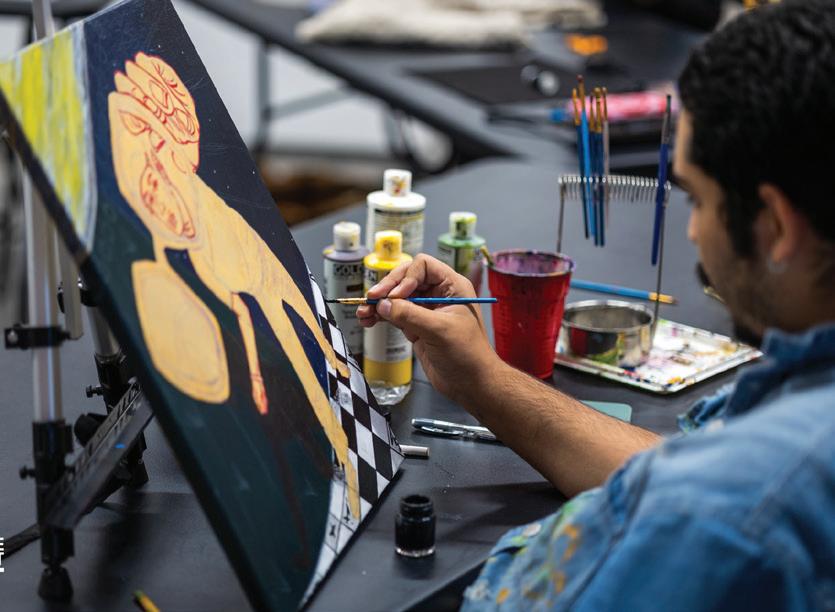
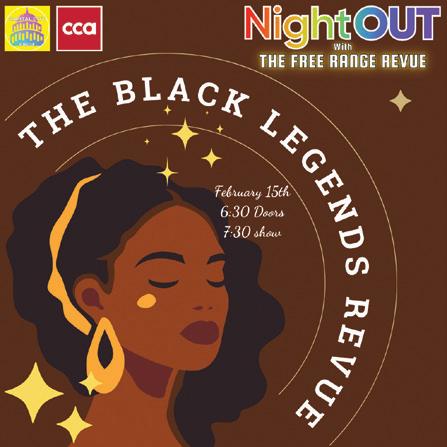
In an epic, all-out benefit performance night for Capital City Pride, the Free Range Revue presents their NightOUT extravaganza at the Bank of NH Stage in Concord. February’s show celebrates Black History Month with the Black Legends Revue. The event’s pay-what-you-want format gives all proceeds to Capital City Pride, an organization working toward an equitable future for New Hampshire by fostering events to celebrate and promote a positive image of the LGBTQIA+ community. Starting at 7 p.m., tickets start at $20, with a VIP tier available for just $10 more with swag and preferred seating. Tickets available at ccanh.com
The NAACP holds monthly meetings for Education, Air Monitoring, Healing Circles for Adults and Teens, Economic Climate Justice Committee in the evening both virtually and in person on an ongoing basis. The Manchester Neighbors Welcome Meeting takes place 4 to 5 p.m., Feb. 24, March 10 and March 24, virtually.
Check out naacpmanchesternh.com for more information.
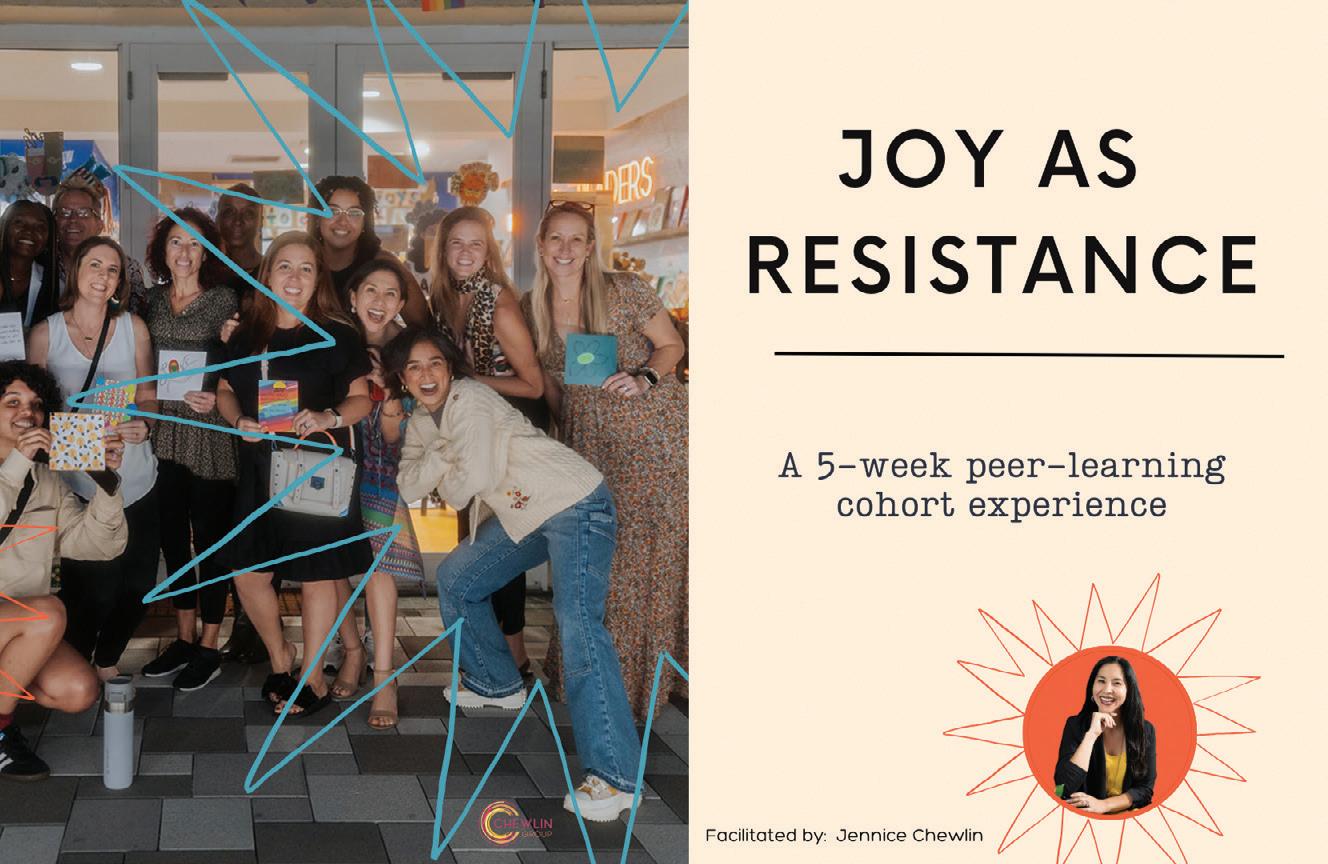
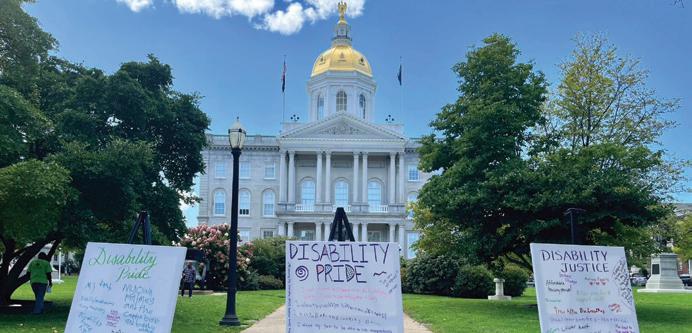
Join ABLE NH, 2 ½ Beacon Street, Concord, for monthly meetings, virtually, to uplift efforts with the Advocacy Committees, Rainbow Connections Workgroup, Oral Health Taskforce, Housing Taskforce and the Transportation Equity Taskforce. Become a member today to access educational content and engage with the ABLE disability justice movement directly. Ablenh.org

Joy as Resistance is a five-week, online peer-learning program, particularly for BIPOC leaders, focusing on collective care, fostering resilience and nurturing emotional well-being in a collaborative setting. This program exists to remind us we are not alone in our efforts to foster change and self-care. Our cohort of up to 12 participants will meet online weekly for 90 minutes and use creative modalities like art, writing, storytelling and movement to work through each week’s theme, leveraging the collective wisdom, experiences and support of participants. Thanks to the generosity of United Way of Greater Nashua, we are able to offer this program at no cost to participants.
Local nonprofit Queerlective, which creates and promotes events and environments for queer, BIPOC and other underserved communities, host a variety of ongoing digital social events. A biweekly queer book club meets on Mondays over Zoom at 6 p.m. Queerlective’s Queer Dungeons and Dragons group is also accepting rolling applications and is in particular need of dungeon masters. Newsletter signups and further information on queerlective.com/pages/events.

The 11th annual Waypoint NH SleepOut is set to take place on March 21 in Manchester to raise donations for Waypoint’s services and facilities. With a goal to end youth homelessness in New Hampshire, SleepOut is a night spent outside each March to raise awareness and funds to address critical needs and transform lives. The experiential event supports New Hampshire’s only low-barrier emergency youth shelter and safe space located in Manchester, youth drop-in centers in Manchester and Rochester, and a range of support services that help lead to long-term stability. Learn more at waypointnh.org.
BY SARAH PEARSON
In December, Seacoast Outright announced it would change its name to New Hampshire Outright to more accurately represent the expansion and reach of its work.
The organization was founded in 1993 by parents and adults concerned with the limited supports for LGBTQ+ youth. NH Outright offers youth peer groups, mentorship and resource connections. It also hosts a parent support group and conducts education training for community organizations, schools and businesses.
“Our kids, as all kids do, have a fundamental want to be seen, be heard and be themselves and be supported for who they are,” says Executive Director Heidi Carrington Heath. “This announcement, we are hopeful, will pave a clear path to help communities have more resources to help our kids do just that.”
Outright holds programming in Portsmouth and Manchester at present, with more locations in the works. It also gets requests to partner with other organizations across the state, something it sees as a growing part of its outreach.
“What has been increasingly true over the last two to three years, in particular, is we are no longer a regionally specific organization. We are helping to support care for and train organizations to help care for and support our kids and our families all over the state of New Hampshire,” Carrington Heath says. “As we really thought about
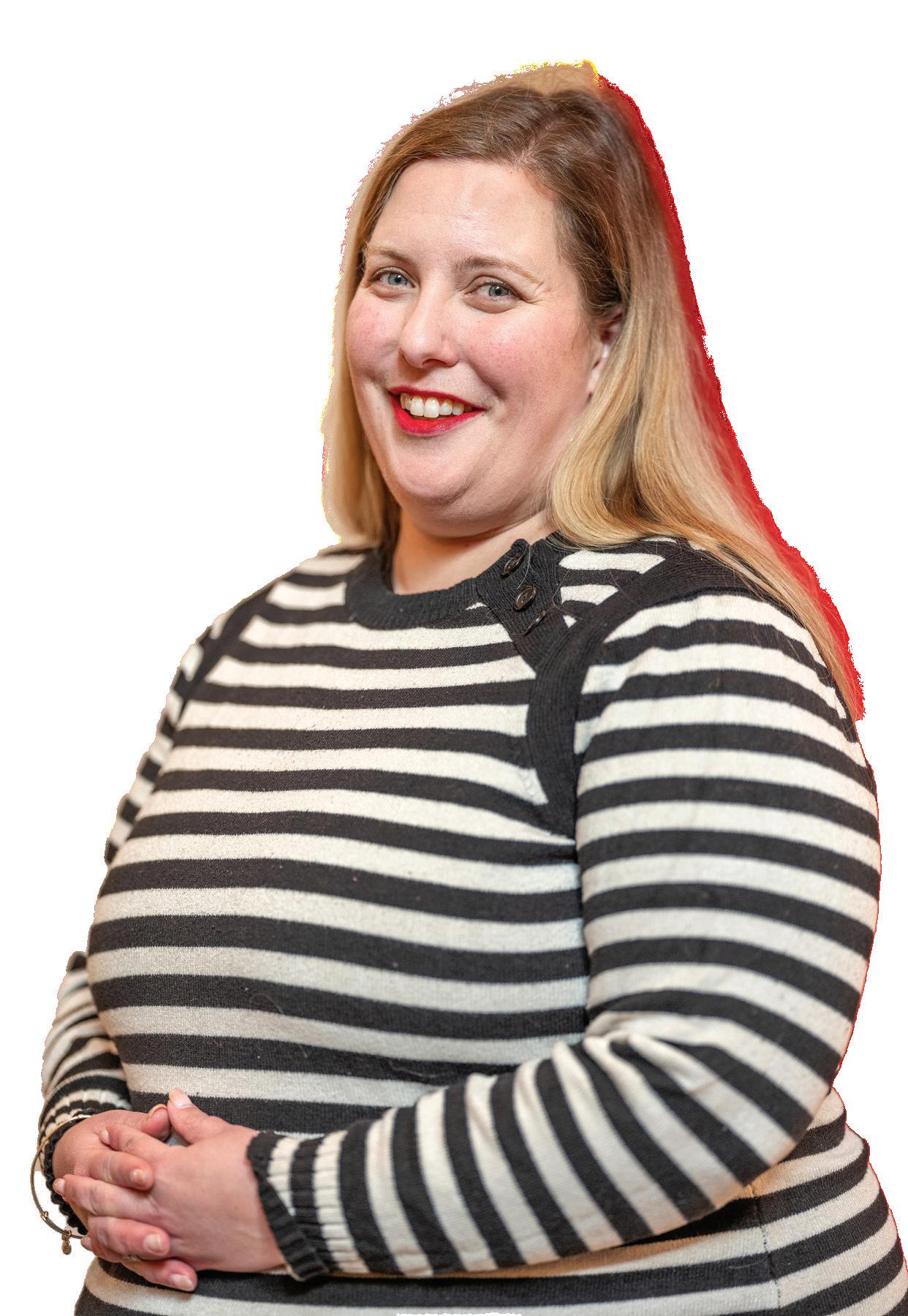
‘what does this moment in the world and in our state require of us,’ we felt it was increasingly clear, and our stakeholders were asking for us to think about a broader scope and a broader focus.”
She said New Hampshire queer and trans youth, and their families, are facing attacks and challenges that are unprecedented in the state.
“It is critically important for communities
to speak up and speak out in support of LGBTQ+ youth. Help communicate to our kids that you see them, you hear them and you stand with them,” she says. “And if we can help you do that, or you have questions about how to do that and want support, please be in touch.”
For more information, visit seacoastoutright.org, or email email@seacoastoutright.org. 603














